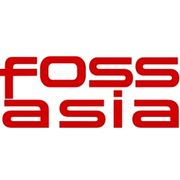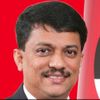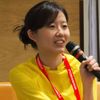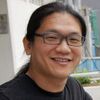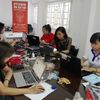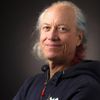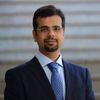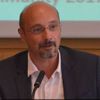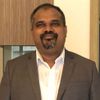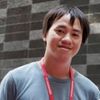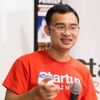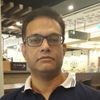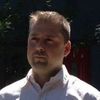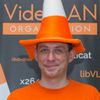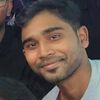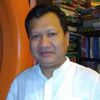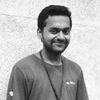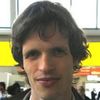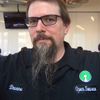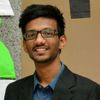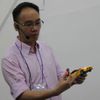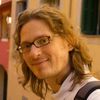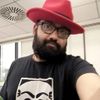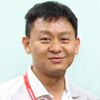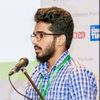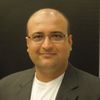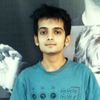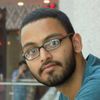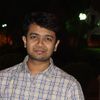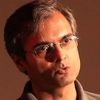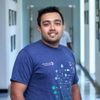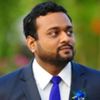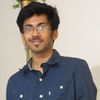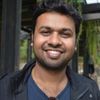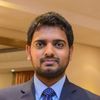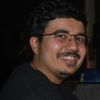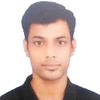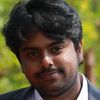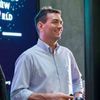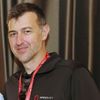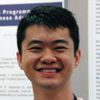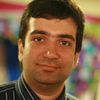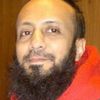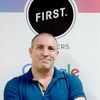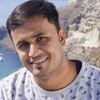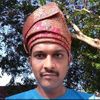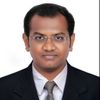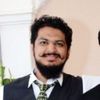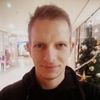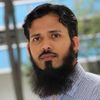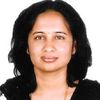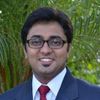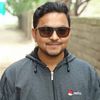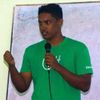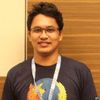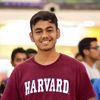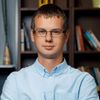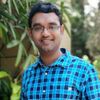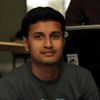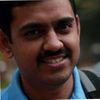Schedule
Thursday, 14th Mar
The FOSSASIA OpenTechSummit![]()
Thorsten Neumann (龚拓思) (Chief Technical Officer & Co-Founder SmartPesa)
Talk
- Thorsten Neumann (龚拓思) (Chief Technical Officer & Co-Founder SmartPesa)
- Talk
Welcome at the FOSSASIA Summit 2019!
Thorsten has extensive experience in ICT domain with both strong academic and professional experience, and a strong competence for systems, architecture and integration.
Lecture Theatre
Thursday, 14th Mar, 09:00 - 09:05
- Open Data, Internet, Community
Lifelong Learning in Singapore with SkillsFuture![]()
Dr Koh Tat Suan (Director Lifelong Learning Institute)
Keynote
- Dr Koh Tat Suan (Director Lifelong Learning Institute)
- Keynote
The Lifelong Learning institute and council promote lifelong learning mindset among Singaporeans under the SkillsFuture.
Dr Koh Tat Suan is the Director, Lifelong Learning. He oversees the management of the Lifelong Learning Institute and supports the Lifelong Learning Council to promote lifelong learning mindset among Singaporeans under the SkillsFuture. He has been a public service officer for nearly 38 years, of which 22 years serving the Singapore Armed Force; 3 years at the Ministry of Education; and currently serving the then Workforce Development Agency, and now SkillsFuture Singapore, since 2016. He is an Engineer by training. He completed his Bachelor in Electrical and Electronics Engineering from the National University of Singapore, Masters in Education Management from University of Western Australia and Education Doctorate from Institute of Education, University of College London.
Lecture Theatre
Thursday, 14th Mar, 09:05 - 09:15
- Open Data, Internet, Community
10 years and back to the future![]()
Harish Pillay (Community Architecture and Leadership Red Hat)
Talk
- Harish Pillay (Community Architecture and Leadership Red Hat)
- Talk
10 years and back to the future! A lot has happened in 10 years and a new generation of technologists and developers is growing up and participating in the community. What are the challenges today and how do we connect them to the previous generations of FOSS developers?
Harish Pillay serves as Head of Community Architecture and Leadership at Red Hat, Inc. and served as its Chief Technology Architect of South Asia since September 29, 2003. Harish co-founded the Linux Users' Group Singapore in 1993. He served as President of the Internet Society Singapore Chapter from 2013 to 2015. He has been a Trustee of Internet Society since June 18, 2016. He is a senior member of the Singapore Computer Society and a member of the Institute of Electrical and Electronic Engineers.
Lecture Theatre
Thursday, 14th Mar, 09:15 - 09:30
- Open Data, Internet, Community
10 years FOSSASIA![]()
Hong Phuc (Founder FOSSASIA)
Talk
- Hong Phuc (Founder FOSSASIA)
- Talk
10 years FOSSASIA
Hong Phuc Dang co-founded FOSSASIA in 2009 as a community devoted to improving people’s lives through sharing Open Technologies and knowledge and fostering global connections. She especially wanted to encourage developers from Asia to participate in the Free and Open Source Software (FOSS) movement.
Lecture Theatre
Thursday, 14th Mar, 09:30 - 09:50
- Open Data, Internet, Community
State of Open Tech![]()
Mario Behling (CEO OpnTec)
Talk
- Mario Behling (CEO OpnTec)
- Talk
State of Open Tech
Mario Behling is the CEO of OpnTec. He is a technologist with 15 years of experience in leading international development teams in Europe, Asia and India. He helped to get FOSSASIA started and works with the community on SUSI.AI and Open Hardware solutions like Pocket Science Lab. Mario also steers the development of the eventyay project. He is fascinated about drums and global music and has an interest in architecture. In Vietnam he designed and build a seven storey eco-hotel and in Afghanistan he setup mesh networks in Afghan schools.
Lecture Theatre
Thursday, 14th Mar, 09:50 - 10:05
- Open Data, Internet, Community
For Your Eyes Only: Betrusted & the Case for Trusted I/O![]()
Bunnie Huang (CTO Chibitronics)
Talk
- Bunnie Huang (CTO Chibitronics)
- Talk
Security vulnerabilities are almost a fact of life. This is why system vendors are increasingly relying on physically separate chips to handle sensitive data. Unfortunately, private keys are not the same as your private matters. Exploits on your local device still have the potential to grant bad actors access to your screen and keyboard. This talk introduces the Betrusted device as a possible remedy. Betrusted is a physically separate, trustable display and keyboard directly connected to a secure enclave. This talk concludes with a brief exploration of some of Betrusted's goals and design features.Project page: https://betrusted.ioSocial media: https://twitter.com/bunniestudios
Bunnie is best known for his work hacking the Microsoft Xbox, as well as for his efforts in designing and manufacturing open source hardware, including the chumby (app-playing alarm clock), chibitronics (teaching electronics through arts and crafts), and Novena (DIY laptop).
Lecture Theatre
Thursday, 14th Mar, 10:05 - 10:25
- Hardware & Design
Open Science, Open Mind![]()
Lim Tit Meng (CEO Science Centre Singapore)
Talk
- Lim Tit Meng (CEO Science Centre Singapore)
- Talk
As scientific endeavours require an open mind, science is to be shared openly. The mission of a science centre is about science communication with the purpose of opening the mind of people with evidence based information. Scientific information, discoveries, and inventions should be treated as an open source to benefit as many people and sectors as possible. In my sharing, I will give a general reflection on how SCS started supporting FOSSASIA and the event has grown over the years to not just open minds but also open eyes for people to see possibilities otherwise untapped if the initiative was only for a closed community.
As the CEO of Science Centre and Vice Dean of NUS Mr Lim Tit Meng promotes STEM as an engine for knowledge-based innovation economy; engages stake holders to share the mission and champions creative science communication. His goal is to inspire youth to see STEM as a powerful means to create their own future as well as solutions for the future.
Lecture Theatre
Thursday, 14th Mar, 10:25 - 10:40
- Science & Education
The Open Source Industrial AI Capabilities with IBM![]()
Rahul Akolkar (Worldwide Technical Sales Leader, Data Science and AI IBM)
Talk
- Rahul Akolkar (Worldwide Technical Sales Leader, Data Science and AI IBM)
- Talk
Technological advances in the last decade have led to a resurgence of interest in AI for solving critical business problems and enabling new & transformative business models. Along have come common fallacies in the implementations of AI systems leading to mounting technical debt and infrequent, unsustainable deployments. IBM has brought together a set of industrial AI capabilities and tools that provide a robust open AI platform for the enterprise, built to consistently leverage a wide choice of open source libraries and data science runtime environments. Do not miss this session on the latest IBM announcements bringing AI capabilities to the data -- wherever it may exist in hybrid and multi-cloud data estates -- and infusing the trust and transparency needed from industrial AI into any business processes with confidence.
Rahul Akolkar leads the Worldwide Data Science and AI Technical Sales organization at IBM. In his previous roles, he has worked in AI Expert Services and IBM Research. His work has been featured in a US Super Bowl advertisement, has helped Olympic athletes and has helped numerous clients infuse AI into their business processes. Rahul first got involved in open source communities more than 15 years ago and has contributed to numerous open source projects and industry standards. He is an elected Member of the Apache Software Foundation. In a related space, Rahul has done standards work at the World Wide Web Consortium (W3C) representing IBM in multiple Working Groups. He is an Open Group Certified Distinguished Architect and also an IBM Master Inventor with dozens of research papers and issued patents.
Lecture Theatre
Thursday, 14th Mar, 11:00 - 11:15
- Artificial Intelligence
Open Source Hardware and Education![]()
Mitch Altman (CEO Open Hardware Creator)
Talk
- Mitch Altman (CEO Open Hardware Creator)
- Talk
Open Source Hardware and Education
Mitch Altman is a San Francisco-based hacker and inventor, best known for inventing TV-B-Gone, as featured speaker at hacker conferences, as international expert on the hackerspace movement, and for teaching introductory electronics workshops. He is also Chief Scientist and CEO of Cornfield Electronics.
Lecture Theatre
Thursday, 14th Mar, 11:15 - 11:30
- Hardware & Design
Open Source Culture and Community![]()
Martin Michlmayr (Developer Debian)
Talk
- Martin Michlmayr (Developer Debian)
- Talk
People often speak about THE open source community but there are actually many open source communities which differ in a number of ways, including aspects related to technology, processes, governance and philosophy. Each open source community has its own culture and norms. In this talk, we'll talk about open source culture and community norms and discuss how to get started contributing to open source. I'll use Debian as an example of one open source community but the lessons learned will be applicable to other projects.
Martin Michlmayr is a free and open-source software advocate and Debian developer, currently president of Software in the Public Interest. Michlmayr was elected as Debian Project Leader in 2003. He contributed to Debian's New Member process, participating in the recruitment of over 120 new members. Michlmayr completed a doctorate in technology management at the University of Cambridge in 2007. The focus of this research was on quality improvement in free software and open source projects, and particularly on release management processes and practices. In 2013, O'Reilly awarded an open source award to Michlmayr, putting him in "the 'unsung heroes' category—the people who devote themselves to the important but not always glorious jobs that keep open source healthy". Between 2008 and 2014 Michlmayr served on the board of directors of the Open Source Initiative, acting as the organization's secretary.
Lecture Theatre
Thursday, 14th Mar, 11:30 - 11:40
- Open Data, Internet, Community
Business, Government, Science - What Opportunities Does "Open" Bring to Society?![]()
![]()
![]()
![]()
![]()
![]()
Mario Behling (CEO OpnTec), Bunnie Huang (CTO Chibitronics), Hong Phuc (Founder FOSSASIA), Shanker V Selvadurai (Vice President & CTO of Cloud and Cognitive Software IBM), Dr. Graham Williams (Director of Data Science Director of Data Science, Microsoft), Carsten Haitzler (Technical Director Arm Holdings)
Panel
- Mario Behling (CEO OpnTec), Bunnie Huang (CTO Chibitronics), Hong Phuc (Founder FOSSASIA), Shanker V Selvadurai (Vice President & CTO of Cloud and Cognitive Software IBM), Dr. Graham Williams (Director of Data Science Director of Data Science, Microsoft), Carsten Haitzler (Technical Director Arm Holdings)
- Panel
2009 Obama promised a New Era of Openness. The idea was that openness prevails. Talking about the Freedom of Information Act at that time Obama said that openness "means more than simply informing the American people how decisions are made." It also means recognizing that the government doesn’t have all the answers. To that end, he directed members of his administration to "find new ways of tapping the knowledge of ordinary Americans" — scientists, educators, entrepreneurs — to find ways to solve the problems of our times. While his message as the US president was directed towards Americans, for the FOSS community, developers, designers, content creators, makers, entrepreneurs and of course companies active in our community “openness prevails” has always been true. Openness for us is not just an idea to access information, it is the basis for amazing collaboration models in the FOSS community.
At FOSSASIA developers work across time zones, countries, and continents and anyone can join development. Imagine how difficult it would be to develop our products if we had to get everyone to sign NDAs and Copyright agreements. This would cause a huge overhead, but there are different models and possibilities to how what extend openness can prevail and in this panel we would like to get insights into how open development, open communication, open tools and technologies, open knowledge and open collaboration has benefited organizations and work of our panelists.
In the second part of the panel we would like to talk about the future. What are plans of panelists for the future in their organization in regards to opening up and creating new opportunities? And in the bigger picture how will society change and open up and what opportunities and challenges lie in opening up areas of society? Panelists will answer these questions from their specific point of view as managers of a large tech corporation, successful Open Hardware makers, representatives of a community driven Open Tech company, or a manager in a computer processor company.
Mario Behling is the CEO of OpnTec. He is a technologist with 15 years of experience in leading international development teams in Europe, Asia and India. He helped to get FOSSASIA started and works with the community on SUSI.AI and Open Hardware solutions like Pocket Science Lab. Mario also steers the development of the eventyay project. He is fascinated about drums and global music and has an interest in architecture. In Vietnam he designed and build a seven storey eco-hotel and in Afghanistan he setup mesh networks in Afghan schools.
Bunnie is best known for his work hacking the Microsoft Xbox, as well as for his efforts in designing and manufacturing open source hardware, including the chumby (app-playing alarm clock), chibitronics (teaching electronics through arts and crafts), and Novena (DIY laptop).
Hong Phuc Dang co-founded FOSSASIA in 2009 as a community devoted to improving people’s lives through sharing Open Technologies and knowledge and fostering global connections. She especially wanted to encourage developers from Asia to participate in the Free and Open Source Software (FOSS) movement.
Shanker V Selvadurai is currently the Vice President & CTO of Cloud and Cognitive Software for IBM Asia Pacific where he leads the technical organization that helps clients across Asia Pacific to explore and co-create cloud based solutions that leverage data, analytics and artificial intelligence (AI) capabilities to deliver better decisions and outcomes. Prior to joining IBM in 2006, Shanker held key leadership positions in areas of research, development, consulting, sales and marketing with technology companies like AT&T, NCR and Fujitsu as well as start-up BlueGill Technologies. While leading teams varying in size from 6 to over 1,000 based in North America, Europe and Asia, he amassed extensive experience and honed deep skills in building and applying technology enabled capabilities that transform businesses and organizations. Shanker holds a Bachelor of Science and a Master of Business Administration. He is also an Open Group Certified Distinguished Architect. Besides having published international patents/papers, Shanker actively contributed in international technology standards committees that include the IFX Forum, OFX Consortium and the Microsoft Advisory Council. As adjunct lecturer at the Singapore Management University, he taught courses related to Services Science and Advanced Business Technology.
Graham has been an open source developer since the 1980's, with early contributions to emacs, TeX, Debian, R, and is the developer of various Machine Learning toolkits. He remains a strong advocate for open source and is a practitioner, researcher, and educator in artificial intelligence. In his current role with Microsoft he leads a team of data scientists working with business to implement machine learning solutions and to drive open source product development. As Adjunct Professor/Fellow with ANU and UC in Canberra, Australia, he maintains an active role in research. He is the author of a number of books on machine learning and Mentor for AI Singapore. His open source software is used in teaching data science worldwide and for building solutions in business. He was previously Lead Data Scientist with the Australian Government.
Worked in the Linux and open source world industries for 20 years in several countries on all sides of the globe, has contributed to several open source projects and is best known for founding the Enlightenment window manager project and having written lots of graphics related code for X11. That's 20 years of programming mostly in C and assembly on top of Linux, shipping in 100+ million devices around the globe.
Lecture Theatre
Thursday, 14th Mar, 11:40 - 12:25
- Open Data, Internet, Community
Newsroom for the Future![]()
Sanjeev Kumar Biswas (Chief Architect Singapore Press Holdings)
Talk
- Sanjeev Kumar Biswas (Chief Architect Singapore Press Holdings)
- Talk
Sanjeev has over 19 years of experience in the software industry. He did his BTech in Computer Science and Engineering from IIT Kharagpur. He has been at Adobe Systems for 13 years and has worked as a Lead Architect for many initiatives like Creative Cloud Subscription Platform, Desktop Licensing, Software Anti-Piracy and Enterprise Subscription. He was an Adobe Distinguished Inventor and Adobe Founders Award Winner. He has 23 issued USA Patents and more than 30 filed in the USA Patent office. His patents are around Image/Audio processing, Machine Learning, Vector Graphics, Identity and Digital Rights Management.
Lecture Theatre
Thursday, 14th Mar, 13:30 - 13:55
- Web Technologies
Microsoft’s Commitment to Openness and Collaboration![]()
Sindhu Chengad (OSS Lead Microsoft)
Talk
- Sindhu Chengad (OSS Lead Microsoft)
- Talk
Microsoft’s commitment to openness and collaboration is ingrained in our day-to-day approach to doing business alongside open source industry partners as well as communities around the world. Microsoft not only releases key innovations as open source for others to use and build upon, it also contributes code and thought leadership to open source communities.
Surprised to hear that? Come learn more from Sindhu Chengad, OSS Lead at Microsoft
Sindhu Chengad heads the open source business for Microsoft's Asia Pacific region, and has been with Microsoft since 4 years. She is responsible for defining Microsoft’s open source strategy and for growing the cloud business in the APAC region through key partnerships. She has a B2B background across process consulting, marketing and strategy in the cloud, IT services and computer hardware industries, spanning the US, UK and Asia.
Lecture Theatre
Thursday, 14th Mar, 14:00 - 14:25
- Open Data, Internet, Community
What would you build next with Blockchain?![]()
Ong Khai Wei (Cloud Solution Specialist IBM)
Talk
- Ong Khai Wei (Cloud Solution Specialist IBM)
- Talk
Blockchain can do for business what the internet did for communication. Powering that transformation is Hyperledger, hosted by The Linux Foundation. Innovators in finance, banking, healthcare, IoT, supply chain, manufacturing and technology are creating open, standardized and enterprise-grade distributed ledger blockchain frameworks and code bases to produce tangible business results. In this session, we will discuss IBM's Blockchain strategy, from its ongoing contributions to the Linux Foundation Hyperledger project to how it is helping clients build, grow and accelerate Blockchain networks.
Khai Wei focuses on helping both start-ups and enterprise in technical solution architect and design of applications towards cloud via IBM Cloud platform across multiple technologies - Blockchain, Kubernetes, DevOps and so on. With his years of experience in software development and solution architecture, Khai Wei leverages past experiences to support enterprises in adopting open source technology such as Hyperledger Fabric and maximize what the technology can benefits in long term towards the industry. Before joining IBM, Khai Wei has worked as application developer in Malaysia. He joined IBM as Technical Specialist in Malaysia at year 2008, transitioned to Singapore in year 2013 to better support ASEAN Region.
Lecture Theatre
Thursday, 14th Mar, 14:30 - 14:55
- Blockchain
Flowchain/IPFS - Distributed Storage using Blockchain Technology![]()
Jollen Chen (Founder & CEO Flowchain Foundation)
Talk
- Jollen Chen (Founder & CEO Flowchain Foundation)
- Talk
Flowchain aims to implement a blockchain that can provide a distributed ledger technology for the IoT and AI. And Flowchain already proposed the virtual blocks technology that can ensure chunked data (data streams) transactions in a near-instant manner. Furthermore, the virtual block technology can integrate with IPFS, an emerging distributed storage blockchain and can work as an off-chain mechanism to transfer your digital assets from one trusted party to another. In this presentation, Jollen will show the implementation of a distributed storage using Flowchain and IPFS open source technologies.
Jollen Chen is the creator and lead developer of Flowchain, an open source based IoT blockchain solutions. Before Flowchain, he has been working on embedded software and full-stack web development for many years. His research interests are the Distributed Ledger Technology (DLT) and IoT data security. Jollen holds a Master's degree in Manufacturing Information and Systems from the National Cheng Kung University, Taiwan. You can find him online at http://jollen.org.
Lecture Theatre
Thursday, 14th Mar, 14:55 - 15:20
- Blockchain
Serverless with Knative![]()
Mete Atamel (Developer Advocate Google)
Talk
- Mete Atamel (Developer Advocate Google)
- Talk
When you build a serverless app, you either tie yourself to a cloud provider, or you end up building your own serverless stack. Knative provides a better choice. Knative extends Kubernetes to provide a set of middleware components (build, serving, events) for modern, source-centric, and container-based apps that can run anywhere. In this talk, we’ll see how we can use Knative primitives to build a serverless app that utilizes the Machine Learning magic of the cloud.
Mete is a Developer Advocate at Google, focused on helping developers with Google Cloud. As a long-time Java and C# developer, he likes to compare the two ecosystems. Prior to Google, he worked at Microsoft, Skype, Adobe, EMC, and Nokia building apps and services on various web, mobile and cloud platforms. Originally from the island of Cyprus, he currently lives in Greenwich of London, not too far away from the prime meridian.
Lecture Theatre
Thursday, 14th Mar, 15:40 - 16:05
- Cloud, Containers, DevOps
Open Source Quantum Computing![]()
Matthew Treinish (Senior Software Engineer IBM Research)
Talk
- Matthew Treinish (Senior Software Engineer IBM Research)
- Talk
Quantum computers are not just science fiction anymore, with many companies building increasingly more powerful quantum computers. While, concepts in quantum computing have been around for over 30 years, but it hasn't been generally accessible until recently. Despite this quantum computing is still very much in its infancy and there are physical limitations preventing them from being generally usable. But the machines that are available today are useful for experimentation and showcasing certain applications where they will be useful.
Open source software for quantum computing has started being developed as these new machines are being built. Learning the lessons from the history of developing classical computers, there are already several open source SDKs, languages, and libraries being developed for quantum computers despite the current limitations of quantum computers. This means as the technology matures and becomes more practical there will already be an open source ecosystem for using quantum computing.
This talk will provide an introduction to the basics of quantum information theory, look at some of the quantum computers out there, explore the open source tooling available for quantum computing, and show how you can use that to write your own quantum programs and run them on simulators and actual quantum computers.
Matthew has been working on and contributing to Open Source software for most of his career. Matthew currently works for IBM Research developing open source software for quantum computing. He is also a long time OpenStack contributor and a former member of the OpenStack TC (Technical Committee) and was previously the PTL (project technical lead) of the OpenStack community's QA program. He has previously been a speaker at linux.conf.au, OpenStack summits, LinuxCons Japan, China, and North America, Open Source Summit Europe, SeaGL, OpenWest, and FOSSASIA.
Lecture Theatre
Thursday, 14th Mar, 16:05 - 16:30
- Open Data, Internet, Community
The Integration of DevOps and Cybersecurity![]()
Sachin Shridhar (Vice President, Customer Success Organization, Asia Pacific and Japan Pivotal Software, Inc)
Talk
- Sachin Shridhar (Vice President, Customer Success Organization, Asia Pacific and Japan Pivotal Software, Inc)
- Talk
With the introduction of DevOps, organisations have become more agile. Given the scale and velocity imposed by processes and today’s threat landscape, this also means that organisations can no longer depend on the existing approaches – especially for cybersecurity.
Organisations need to look beyond the current practices and enable a ‘secure by default’ posture. This can be achieved in two ways: by distributing more responsibilities to development and operations teams, and by embracing continuous delivery of applications on newer platforms. Some security practices include:
- Permeate security across the organisation. A prudent security posture, including processes and tooling, will permeate the organisation. An adoption of company-wide initiatives, for instance, could be enabled by security teams, but may not be necessarily manned by them.
- Bring in the developers. The inclusion of security practices and guidance within the application development lifecycle is key. What this means for businesses is to make that inclusion without a significant cognitive overload to the developers themselves.
- Use automation to improve defense posture. To reduce cyber risks, organisations will need to repair vulnerable software through automation – this means that patches are applied as soon as they are released. Repaving servers and applications will also help organisations remove any malware that has already gained access to their systems and prevent them from penetrating the same systems in the future.
In today’s DevOps era, cybersecurity should no longer be at the back burner of any business. Relooking at cybersecurity approaches will enable organisations to reap positive outcomes such as faster responses to business needs and crises caused by incidents or disclosures, and prevention of cyberattacks.
Sachin Shridhar is Vice President, Customer Success Organization, Asia Pacific and Japan, at Pivotal Software, Inc. The CSO group is responsible for all technical services in the region including Solution Architecture, Implementation, Delivery, Consulting and Education.
In his role he is driving Pivotal's offerings to assist customers make the transitions to the software driven world, making software development a core competency and an advantage for businesses.
Sachin has spent over 2 decades in the industry and over a decade in markets across Asia Pacific and Japan. His experiences are in Services and Solutions in technology companies, helping customers and partners be successful with the technology offerings.
Prior to Pivotal, Sachin was the Vice President for APJ Services, Red Hat for over 5 years driving the pre-sales, consulting and education business for them.
Lecture Theatre
Thursday, 14th Mar, 16:30 - 16:55
- Cybersecurity
UNESCO and FOSS![]()
Davide Storti (FOSS Programme Manager UNESCO)
Talk
- Davide Storti (FOSS Programme Manager UNESCO)
- Talk
What does the UNESCO do with FOSS? What is the interest and goal of the UNESCO to support FOSS?
Davide works as a FOSS Programme Manager at UNESCO Headquarters in Paris. He leads the YouthMobile initiative, which aims at inspiring young girls and boys to drive technological innovation by acquiring the skills and confidence to code and develop mobile apps for sustainable development.
Lecture Theatre
Thursday, 14th Mar, 17:00 - 17:10
- Open Data, Internet, Community
The Future Is FOSS!/?![]()
![]()
![]()
![]()
![]()
![]()
Davide Storti (FOSS Programme Manager UNESCO), Michael Ducy (Director of Open Source Sysdig), Jonas von Malottki (Senior Manager Finance Daimler), Michael Downey (Director of Community United Nations Foundation), Marian Marinov (Head System Architect SiteGround), Anjali Curic (CEO Sciencer)
Panel
- Davide Storti (FOSS Programme Manager UNESCO), Michael Ducy (Director of Open Source Sysdig), Jonas von Malottki (Senior Manager Finance Daimler), Michael Downey (Director of Community United Nations Foundation), Marian Marinov (Head System Architect SiteGround), Anjali Curic (CEO Sciencer)
- Panel
The theme of the FOSSASIA Summit 2019 is "The Future is FOSS". FOSS - Free and Open Source Software stands more and more for Free and Open Source Solutions. At FOSSASIA we are not only developing software, but also hardware, content and complete solutions following a model of free and open development. But, is the Future indeed FOSS? Is FOSS mainstream already in many areas and does it mean it will be also mainstream in other areas? Is it possible that trends also go in another direction where developers follow a more closed source approach in some areas again? What opportunities do really exist in other areas like hardware? In this panel we hope to get ideas for answers from our panelists.
Davide works as a FOSS Programme Manager at UNESCO Headquarters in Paris. He leads the YouthMobile initiative, which aims at inspiring young girls and boys to drive technological innovation by acquiring the skills and confidence to code and develop mobile apps for sustainable development.
Michael Ducy currently works as Director of Community & Evangelism for Sysdig where he is responsible for growing adoption of Sysdig’s open source solutions. Previously, Michael worked at Chef where we held a variety of roles helping customers and community members leverage Chef’s open source and paid solutions, as well as implement the ideas and practices of DevOps. Michael has also worked in a variety of roles in his career including Cloud Architecture, Systems Engineering, and Performance Engineering. Michael holds a Masters in Computer Science from the University of Chicago and an MBA from The Ohio State University.
Jonas is shaping the Blockchain and DLT activities from the technology perspective within Daimler. He holds a Diploma in Computer Science and Japanese Studies from University of Bonn. Main focus topics were Metadata and Data Quality as well as Neural Networks. He is a member of the Governing Board of Hyperledger.
Michael Downey is the Director of Community for the Digital Impact Alliance (DIAL) Open Source Center, an initiative of the United Nations Foundation. The Center is a collaborative community promoting knowledge sharing, collaboration, and co-investment in technology and human capacity to support positive social change in FOSS communities around the world.
Marian is a system administrator by heart. He is working with Linux for almost 20 years. Currently he is Head System Architect of Siteground.com. He is a big fan of FOSS and regularly speaks at different FOSS conferences around the world. Marian also helps with the organization of OpenFest - Bulgaria's biggest FOSS conferences. In his spare time he teaches Linux system administration and Network security courses in Sofia University and SoftUni.
A student/entrepreneur who loves experimenting, discovering and creating.
Lecture Theatre
Thursday, 14th Mar, 17:10 - 18:00
- Open Data, Internet, Community
Friday, 15th Mar
Using Kubernetes and Knative to Deploy & Secure Containerized Applications![]()
![]()
![]()
![]()
![]()
![]()
![]()
Sai Vennam (Lead Developer Advocate Cloud IBM), Ng Meng Cher (Cloud Expert IBM), Nicole Chua (Cloud Expert IBM), Sudesh K Krishnamoorthy (Cloud Expert IBM), Purushothama Shenoy (Cloud Expert IBM), Flik Fok (Cloud Expert IBM), Zack Yeo (Cloud Expert IBM)
Workshop
- Sai Vennam (Lead Developer Advocate Cloud IBM), Ng Meng Cher (Cloud Expert IBM), Nicole Chua (Cloud Expert IBM), Sudesh K Krishnamoorthy (Cloud Expert IBM), Purushothama Shenoy (Cloud Expert IBM), Flik Fok (Cloud Expert IBM), Zack Yeo (Cloud Expert IBM)
- Workshop
Get hands-on with Kubernetes and learn to effectively manage networking, security, user access, maintenance, performance and scale. This workshop is perfect for developers who are already using Kubernetes and those that want to learn from the pros. Join this workshop led by Kubernetes experts to create and deploy your own cloud-native microservices application to IBM Cloud Kubernetes Service.In addition, we will discuss how Knative provides developers with the building blocks for serverless platforms to run on Kubernetes.
* Audience: Developers
* Keywords: Knative, Kubernetes, Open Source, Containers, Serverless
* Prep Videos:
* Kubernetes: https://www.youtube.com/watch?v=2vMEQ5zs1ko
* Knative: https://www.youtube.com/watch?v=69OfdJ5BIzs
Requirements
* Bring a laptop wit full access. The installation of software is required for this workshop.* Sign up for IBM Cloud before the workshop: http://ibm.biz/FOSSASIAIBM
Sai Vennam is a Developer Advocate at IBM with expertise on managed Kubernetes, Serverless, Hybrid Cloud, App Modernization, Node.js, Go and API Management. He creates developer-friendly content, videos, and samples to showcase the latest and greatest cloud technology. He’s passionate about connecting developers with technology that allows them to be successful. As a hobby, he works on his home automation using Raspberry Pis and serverless technology.
Sharing how the cloud works at IBM.
Working on making the cloud work.
Let's make it the cloud way at IBM.
Making cloud things usable for admins and developers.
Event Hall 2-1
Friday, 15th Mar, 09:00 - 10:55
- Cloud, Containers, DevOps
Don’t have Huge Computing Power? Hack Free Online Tools to Automatically Build Your Linux OS with Meilix Scripts![]()
Tarun Kumar (Student FOSSASIA)
Talk
- Tarun Kumar (Student FOSSASIA)
- Talk
An internet kiosk is a special use case. A single computer is shared by an indefinite number of users. Lots of security concerns arise. In Asia and elsewhere multiple non-latin languages have to be supported. We decided to create a custom lightweight distribution, Meilix and a generator web app that allows you to preconfigure an ISO with the wallpaper and desktop settings in place.
I'm an enthusiast open source software developer. Being an electrical engineer, I've knowledge about electronic related stuffs which makes me interested in open source hardwares too. I believes in working with the community and sharing ideas. I believe one's idea can be better if shared with other people. People should know to create solutions rather than finding the solutions. I encourage developers to implement new changes in the system and will be much happier if I am a part of that change.
Theatre Lounge
Friday, 15th Mar, 10:00 - 10:25
- Kernel & Platform
An infrastructure on containers to build your own Debian based distro![]()
Andrew Lee (Software Engineer Collabora)
Talk
- Andrew Lee (Software Engineer Collabora)
- Talk
It is impressive how much time and resources a team can save by using the OBS infrastructure to manages their packages creation and distribution. OBS is a generic system to build and distribute packages from sources in an automatic, consistent and reproducible way.
Andrew Lee will cover the benefits of using OBS, explain some of it features and workflow for all your packaging and releasing needs, like automatically build package from scratch on multiple target distros and architectures, and show you how to setup OBS infrastructure to build your own Debian based distro easily.
Andrew Lee (Hualian, Taiwan) – an active Open Source Liaison focusing on the Debian and LXDE Projects. He worked on localization efforts of various kinds of local dialects and aborigines languages in Taiwan. He created various localization related packages in Red Hat, Mandrake, and Debian distros, and also creates and maintains packages in Debian for LXDE project.
Andrew Lee works as a software developer in the Build and Infrastructure team at Collabora and has 5 years of experience working with the Open Build Service(OBS) building both rpm and deb format packages and distribution creations for many different projects and clients. He is now making an efforts on packaging OBS in Debian distro.
Theatre Lounge
Friday, 15th Mar, 10:30 - 10:55
- Kernel & Platform
Customize Debian for Raspberry Pi and BeagleBone![]()
Nguyễn Hồng Quân (CTO AgriConnect)
Extended Talk
- Nguyễn Hồng Quân (CTO AgriConnect)
- Extended Talk
Guide on customising Debian image to use in your project with Raspberry Pi and BeagleBone.
- FOSS enthusiast
- IoT in Agriculture
Theatre Lounge
Friday, 15th Mar, 11:00 - 11:35
- Kernel & Platform
Bringing Trust and Transparency in AI![]()
![]()
![]()
![]()
Anup Kumar (Big Data and Analytics Technical Leader IBM), Son Le Thanh (Cognitive Solutions Engineer IBM Watson), Anindyo Sarkar (Cloud Expert IBM), Zhidong Wang (Data Expert IBM)
Workshop
- Anup Kumar (Big Data and Analytics Technical Leader IBM), Son Le Thanh (Cognitive Solutions Engineer IBM Watson), Anindyo Sarkar (Cloud Expert IBM), Zhidong Wang (Data Expert IBM)
- Workshop
In this workshop participants will learn how they can understand the data they have, apply this information to build and run optimal machine learning models, and then operationalizing AI to continuously understand, improve, and explain outcomes. In the hands on lab we will be using data science workbench to explore, model and deploy a machine learning model and then monitor the model for performance, accuracy, and fairness.
* Audience: Data Scientists, Application Developers, Domain Experts
* Keywords: Python, Jupyter Notebooks, Python, Rest API, Machine Learning, Trust and Transparency, Object Storage, Watson, Studio, Watson Openscale, AI
Requirements
* Bring a laptop wit full access. The installation of software is required for this workshop.* Sign up for IBM Cloud before the workshop: http://ibm.biz/FOSSASIAIBM
Anup Kumar is a Distinguished Information Architect (Open Group) at IBM Singapore with significant experience in deploying large distributed big data platforms and data warehouses across telco, banking, and other sectors. He also brings software lab development experience building Industry data models, search & unstructured data analytics products. In current role, his major contribution is architecting modern analytical application leveraging Hadoop, spark & open source stacks. Currently, he is championing a new "architecture for modern Information Fabric". The architecture leverages advancement in technology such as HTAP and needs for real-time event-driven applications, data science & deep machine learning in a hybrid cloud deployment model.
I am just another Vietnamese software engineer with a background in computer science (National University of Vietnam) and software engineering (National University of Singapore). I started my career in April 2003 in Saigon, Vietnam and moved to Singapore in July 2006 after being jobless for 4 months.
I have a curious mind in pursuing what I want to do next and learning new skills. In April 2012, I landed in the Valley without knowing anyone. I was offered by Derek Andersen to start StartupGrind in Singapore. I made to be the Chapter Director of the Year in 2013.
Since April 2016, I was building my foray into machine learning with the role at IBM Watson.
Currently, I am pursuing my hobby with painting, reading, writing and mentoring Vietnamese youths.
Working with big data at IBM.
Let's make big data work with IBM Cloud in Singapore!
Event Hall 2-1
Friday, 15th Mar, 11:05 - 13:30
- Artificial Intelligence
BuildStream - The all purpose build and integration tool![]()
Tristan Van Berkom (Lead Software Engineer Codethink)
Talk
- Tristan Van Berkom (Lead Software Engineer Codethink)
- Talk
This talk will begin with a brief introduction to the problems which revolve around the software build space from the perspective of the developer and the perspective of the system integrator. Then we will present the solutions we've come up with in the BuildStream project; which is now used to build the base Flatpak runtimes and GNOME releases. As this will be a brief session, we will try to discuss the build space in the abstract and hope to raise awareness through the Q&A session.
Application and platform developer experienced in product and application design, implementation and management of project life cycles on small distributed teams.
Experienced building products with embedded linux systems, developing cross platform libraries and desktop applications, mobile applications and creating RESTful services with JavaScript web application frontends.
Contributor and maintainer of free and open source software projects and especially familiar with GTK+ and GNOME technologies.
Theatre Lounge
Friday, 15th Mar, 11:40 - 12:05
- Kernel & Platform
VLC 4.0![]()
François Cartegnie (Developer VideoLAN)
Talk
- François Cartegnie (Developer VideoLAN)
- Talk
After 3.0 release, an overview of current achievements and ongoing work at VideoLAN on the most popular multimedia player.
Joined VideoLAN in 2009 and became one of the main VLC developers.Working on demuxers and codecs (most media formats that goes in or out) side of VLC media player.Has an academical background in usability, wireless networks and owned his own web shopbot company.
Theatre Lounge
Friday, 15th Mar, 12:10 - 12:35
- Kernel & Platform
Dockerizing Nodejs application - A dev to prod journey .![]()
Kumar Rishav (Software Engineer PayPal)
Talk
- Kumar Rishav (Software Engineer PayPal)
- Talk
As PayPal has transitioned to a cloud-native environment, Web Engineering team has led the Node.js Docker effort in revamping the deployment architecture for all applications built on Node.js.
Using Docker allows for immutable, composable Node.js deployments in a nice declarative fashion. In this session, we'll cover Docker image best practices, container startup and process management, signal handling, and mounting files .
The presentation will focus on how the Docker can help soften some of the rugged parts, while maintaining great Developer Experiences.
Kumar Rishav sees himself as an enthusiastic software developer, specializing in web application architectures, build tools, and product development.
He is a Software engineer at PayPal, working out of Chennai, India, on the Web engineering platform team, where he works on the Nodejs application and Docker. You can find him giving talks internally at PayPal and in various meetups. He has been an open source contributor to Mozilla Firefox OS project.
Lecture Theatre
Friday, 15th Mar, 13:00 - 13:25
- Cloud, Containers, DevOps
Year of Indigenous Languages![]()
![]()
![]()
![]()
![]()
Davide Storti (FOSS Programme Manager UNESCO), Mathura Bikash Tripura (Executive Director Zabarang), Misako Ito (Programme Specialist UNESCO), Oranee Jariyapotngam (Indigenous Languages UNESCO Expert), Dorn Bouttasing (Founder Green Laos Community Volunteers)
Panel
- Davide Storti (FOSS Programme Manager UNESCO), Mathura Bikash Tripura (Executive Director Zabarang), Misako Ito (Programme Specialist UNESCO), Oranee Jariyapotngam (Indigenous Languages UNESCO Expert), Dorn Bouttasing (Founder Green Laos Community Volunteers)
- Panel
This panel discussion is convened by UNESCO under the umbrella of the United Nations 2019 International Year of Indigenous Languages. It will bring together indigenous young activists, specialists of languages and FOSS to raise awareness on the challenges affecting indigenous people in the region, in particular their languages, and to discuss the importance of technology and FOSS for preserving and developing indigenous languages.
It is our goal to engage the developer community to develop innovative applications as open source by leveraging open data and knowledge-sharing. With the hackathon we support the dissemination of good practices with regard to indigenous languages and increase access to multilingual information and knowledge.
"Languages play a crucial role in the daily lives of people, not only as a tool for communication, education, social integration and development, but also as a repository for each person's unique identity, cultural history, traditions and memory. But despite their immense value, languages around the world continue to disappear at an alarming rate. With this in mind, the United Nations declared 2019 The Year of Indigenous Languages (IY2019) in order to raise awareness of them, not only to benefit the people who speak these languages, but also for others to appreciate the important contribution they make to our world's rich cultural diversity." (en.iyil2019.org)
Davide works as a FOSS Programme Manager at UNESCO Headquarters in Paris. He leads the YouthMobile initiative, which aims at inspiring young girls and boys to drive technological innovation by acquiring the skills and confidence to code and develop mobile apps for sustainable development.
Mathura Bikash Tripura is the Executive Director of Zabarang (a local NGO in CHT, Bangladesh). Currently he is leading a group of young professionals in carrying out different programs on the issues of community empowerment, quality education, good governance and sustainable development, as well as support to mother tongue-based multilingual education.
Mr. Tripura has a long experience working with indigenous peoples’ organizations and the government as well as in various civic movements at national level. He is the National Convener of the Committee on Celebrating 2019 International Year of Indigenous Languages, Bangladesh.
Misako Ito works as Advisor for Communication and Information at UNESCO Regional Office in Bangkok. She is responsible for UNESCO’s Communication and Information programme in the Mekong countries and coordinates the UNESCO Memory of the World programme for safeguarding the documentary heritage in Asia and the Pacific. Before joining Bangkok, she spent six years at UNESCO Office in Rabat, Morocco, in providing advisory services for media development, its legislation on freedom of information as well as for the media and information literacy policies in Algeria, Morocco, Mauritania and Tunisia.
@page { margin: 0.79in } p { margin-bottom: 0.1in; direction: ltr; line-height: 115%; text-align: left; orphans: 2; widows: 2 }
Oranee works as a project coordinator for the Foundation for Applied Linguistics (FAL). FAL supports the education of indigenous children in Thailand by promoting the use of the indigenous language in school along with the national language. This is known as ‘Mother Tongue Based Multilingual Education (MTBMLE)’.
@page { margin: 0.79in } p { margin-bottom: 0.1in; direction: ltr; line-height: 115%; text-align: left; orphans: 2; widows: 2 }
Dorn Bouttasing is the founder and director of Green Laos Community Volunteers, a not-for-profit community-based research group, and a freelance consultant working on community development and environment. Experience in research, surveys, training, and fact-finding. She is a self-taught, freelance filmmaker and community organizer working on preserving indigenous culture, language and women’s empowerment in remote areas of Laos since 2009.
Event Hall 2-2 (Hack Stage)
Friday, 15th Mar, 13:00 - 13:55
- Hackathon
Unleashing the power of kubectl![]()
Suraj Narwade (Software Engineer Red Hat)
Talk
- Suraj Narwade (Software Engineer Red Hat)
- Talk
Do you use kubectl ? How efficiently you use kubernetes? In this talk, I will give you the tour of some of the most powerful, interesting and less-known features of kubernetes command line i.e kubectl. While preparing for CKA(Certified Kubernetes Administrator), I found some of the commands very interesting and worth to share with wider audience. This will not just unleash the power but, these tricks will help audience to learn new things about kubectl which will improve there productivity with kubectl. Talk will involve things like how you can set editor of your choice for kubectl, how to learn about kubernetes resources using kubectl only and lot more cool stuff. This will also useful for the people who deal with OpenShift CLI (oc).
Suraj Narwade is an open source enthusiast who contributes to the ODO, Kompose and the Kedge projects. He occasionally contributes to Kubernetes and Libcompose too. He is an active member of the local container-centric meetups in Bangalore and Pune, India. He is also one of the organizer of Kubernetes Bangalore Meetup.
As a software engineer at Red Hat, he works on tools that help developers build and deploy containerized applications. He presented his work at the FOSSASIA 2018, DevOps Day 2017.
When not hacking containers, he can be seen hacking Alexa.
Lecture Theatre
Friday, 15th Mar, 13:30 - 13:55
- Cloud, Containers, DevOps
Improving the FreeBSD security advisory process![]()
Philip Paeps (Developer FreeBSD Foundation)
Extended Talk
- Philip Paeps (Developer FreeBSD Foundation)
- Extended Talk
The FreeBSD Project is an old and well-established open source community. With volunteer developers around the world, handling security advisories in a timely manner while respecting third-party embargoes poses unique challenges. This presentation introduces the FreeBSD security officer team and the processes in place for handling security advisories affecting the FreeBSD open source operating system itself and the third-party components the project distributes.
Philip Paeps (“Trouble”) is an independent consultant and contractor based in Belgium. He provides research and development on low-level software and operating systems, particularly in an embedded or real-time context. His main interests are bootloaders, device drivers and high-performance networking. He can also be convinced to teach courses and workshops on a variety of networking-related topics.
In his so-called free time, Philip is a FreeBSD committer contributing mainly to the kernel and a member of the FreeBSD security team. He was one of the main organisers of FOSDEM, the largest annual open source software conference in Europe, from the early 2000s until 2015. He denies having any involvement with amateur radio or tabletop role playing games.
Theatre Lounge
Friday, 15th Mar, 13:30 - 13:55
- Kernel & Platform
Cross Platform Distribution of Software - the TeX Live distribution![]()
Norbert Preining (Developer TeX Live Team, FOSSASIA)
Talk
- Norbert Preining (Developer TeX Live Team, FOSSASIA)
- Talk
The TeX environment has grown slowly but steadily to a huge collection of programs, fonts, macro packages, support packages. Current TeX Live ships about 4Gb in more than 3500 different "TeX Live packages". As teTeX stopped to be developed and supported several years ago, TeX Live has taken over as the main TeX distribution in practical all areas, not only on Unix, but also Mac (MacTeX is based on TeX Live) and is also gaining on Windows (where MikTeX is still strong).
In this talk we recall shortly the history of TeX Live, its transition from CD/DVD based distribution to net based distribution, and the difficulties one faces when distributing a considerable piece of software to a variety of operating systems and hardware combinations. Topics touched are cross-platform distribution, security, release management etc.
Furthermore, we shortly will touch the topic of re-distributing TeX Live into Linux distributions like Debian, Red Hat, SuSE. Integrating TeX Live into any distribution is a non-trivial task due to big amount of post installation tasks that have to be performed. Although over the last years the quality of packages has improved, we (TeX Live development list) still get often bug reports that stem from incorrect packaging.
Mathematician and Logician by education who after working at various universities (TU Wien, Universita di SIena, Japan Advanced Institute of Science and Technology) is now working in the Research and Development lab of Accelia, Inc, Tokyo. His core interests are mathematical logic, computer science, machine learning, AI, security, software verification and specification. He got involved with TeX Live around 2003. In 2005 he packaged for the first time TeX Live for Debian (up to that time all distributions used teTeX).
Over the years Norbert became involved in TeX Live development, and after rewriting the whole TeX Live infrastructure in Perl, and providing the TeX Live Manager for online updates, he is now the responsible maintainer for most of the core support programs of TeX Live.
Since some years Norbert is also member of the board of directors of the international TeX User Group.
Theatre Lounge
Friday, 15th Mar, 14:00 - 14:25
- Kernel & Platform
Open Source at Scale: Building Operation in a large company![]()
Jonathan Le Lous (Field CTO Capgemini)
Talk
- Jonathan Le Lous (Field CTO Capgemini)
- Talk
No doubt Open Sources technologies are leading the IT business. Every day we hear about Open Source implementations successes but also fails. For what reasons? Mostly because companies were unable to build a sustainable Operation Model including 24/7 support, upgrading strategy and so on. The reality is: not everyone can be an Open Source Technical Leader and Operation Manager have to deal with people with different skillset from different places and cultures. In this topic, I will share my experience building Operation Support teams in large international companies. How we filled the gap between high-level expertise needs, real-life people and a... tight budget of course! We will see why OS Model is so valuable by leveraging partners and communities inside and outside the company.
Jonathan is Field CTO, Cloud Infrastructure Services team, @ Capgemini. He helps French Fortune 40 (CAC 40) companies implementing Cloud-native Open Source technologies as Kubernetes, Cloud Foundry, OpenStack... Previously he was Director of Engineering Engagement and Release Platforms at Manulife/John Hancock in Canada. For 15 years, Jonathan has been passionate open source technologies. As a pragmatic leader he is used to work with partners and technologies from everywhere (Microsoft, Red Hat, IBM, Cisco...) and build bridges between traditional IT and new approaches. As a community member he's been engaged in different non-profit communities to contribute and promote open source and help users.
Lecture Theatre
Friday, 15th Mar, 14:00 - 14:25
- Cloud, Containers, DevOps
Codeheat Awards![]()
![]()
Hong Phuc (Founder FOSSASIA), Mario Behling (CEO OpnTec)
Talk
- Hong Phuc (Founder FOSSASIA), Mario Behling (CEO OpnTec)
- Talk
Join us for the Codeheat Awards
Hong Phuc Dang co-founded FOSSASIA in 2009 as a community devoted to improving people’s lives through sharing Open Technologies and knowledge and fostering global connections. She especially wanted to encourage developers from Asia to participate in the Free and Open Source Software (FOSS) movement.
Mario Behling is the CEO of OpnTec. He is a technologist with 15 years of experience in leading international development teams in Europe, Asia and India. He helped to get FOSSASIA started and works with the community on SUSI.AI and Open Hardware solutions like Pocket Science Lab. Mario also steers the development of the eventyay project. He is fascinated about drums and global music and has an interest in architecture. In Vietnam he designed and build a seven storey eco-hotel and in Afghanistan he setup mesh networks in Afghan schools.
Event Hall 2-2 (Hack Stage)
Friday, 15th Mar, 14:00 - 14:25
- Open Data, Internet, Community
Will AI Replace Developers?![]()
Kitman Cheung (Chief Technology Officer, IBM Data & AI , Asia Pacific IBM)
Talk
- Kitman Cheung (Chief Technology Officer, IBM Data & AI , Asia Pacific IBM)
- Talk
Will AI Replace Developers?
Kitman Cheung is the CTO, IBM Data & AI for IBM Asia Pacific. Throughout his 17 year career with IBM, Kitman has focused his attention on analytics related technologies, and has served in many technical roles within development, product management, partner ecosystem and technical pre-sales organizations. In his current role, his responsibilities include working with key IBM customers in various industry segments to transform their information infrastructure for the Big Data and Analytics era.
@page { margin: 0.79in } p { margin-bottom: 0.1in; direction: ltr; line-height: 115%; text-align: left; orphans: 2; widows: 2 }Event Hall 2-1
Friday, 15th Mar, 14:00 - 14:25
- Artificial Intelligence
Experience in porting to Wayland (VLC media player)![]()
Remi Denis-Courmont (Lead SW Architect VideoLAN)
Talk
- Remi Denis-Courmont (Lead SW Architect VideoLAN)
- Talk
The upcoming VLC 4.0 will finally have support for the next-generation open-source Wayland display protocol. We will discuss the key points to consider when porting a native application to Wayland through the example of VLC.
Long-time open-source developer, and largest contributor to the VLC media player project
Theatre Lounge
Friday, 15th Mar, 14:30 - 14:55
- Kernel & Platform
Scalable IT Workload Automation![]()
Dieter Stubler (Executive Director independIT Integrative Technolgies GmbH)
Talk
- Dieter Stubler (Executive Director independIT Integrative Technolgies GmbH)
- Talk
Born 1963 in Schrobenhausen Germany. Diploma in Computer Science at Fachhochschule Augsburg in 1987. Software Development at PCS GmbH in Munich, responsible for porting Oracle RDBMS Software to PCS CADMUS (Munix) Hardware. Developer, Trainer and Consultant for the Ingres RDBMS. Consulting and Traing in large scale RDBMS Projects as freelancer. Since 1997 founder and executive director of independIT Integrative Technologies GmbH. Focus on large Data Warehouse projects and IT Workload Automation since 2002 and deeply involved in the design and development of the schedulix Enterprise Job Scheduling System.
Lecture Theatre
Friday, 15th Mar, 14:30 - 14:55
- Cloud, Containers, DevOps
Sustaining FOSS Projects By Democratizing The Sponsorship Process![]()
Duane O'Brien (Head of Open Source Indeed.com)
Extended Talk
- Duane O'Brien (Head of Open Source Indeed.com)
- Extended Talk
Within a given company, there are typically only a few people involved in deciding which FOSS projects and initiatives to support financially. This year we decided to change all that and democratize the decision making process. We set up an internal FOSS Sustainability Fund, and invited everyone to participate in the process. This talk will examine how we got executive buy in for the fund, how the fund was set up, how we encouraged participation, and what the impact has been so far.
Duane O'Brien is the Head of Open Source at Indeed.com, the world's #1 jobs site. He is passionate about enabling smart and meaningful contributions to the open source ecosystem by both developers and corporations. Duane navigates the path between engineering and management, drawing on both his experience as a developer and program manager at companies such as Autodesk, Adobe, and PayPal, as well as his experience supporting Agile transformations.
Event Hall 2-2 (Hack Stage)
Friday, 15th Mar, 14:30 - 14:55
- Open Data, Internet, Community
Developing the features to track and analyse skill metrics of the CMS![]()
Anshuman Verma (Developer FOSSASIA)
Talk
- Anshuman Verma (Developer FOSSASIA)
- Talk
This talk is about how the analytical features of the CMS are implemented and thus talks about the different metrics provided by the CMS Webapp. This also explains how the entire UI of the Webapp was revamped for the powerful use of various filters that were implemented and the search functionality to easily search for the required skills.
This also gives an insight about the enhanced power to the skill creators about the rating their skill is receiving so they can improve it and correspondingly act according to the user feedback.
Anshuman is a pre-final year undergrad. from IIIT Vadodara pursuing Computer Science. He is a full stack web developer specializing in JavaScript and is an active open source contributor.
Training room 2-1
Friday, 15th Mar, 14:30 - 14:55
- Web Technologies
Machine Learning Landscape Today![]()
Aiko Klostermann (Consultant/Developer ThoughtWorks)
Extended Talk
- Aiko Klostermann (Consultant/Developer ThoughtWorks)
- Extended Talk
When you have a data-centric problem to solve and you look for a technology to support you with this: The machine intelligence landscape can be overwhelming.
I analysed the landscape using a data-driven approach and condensed the outcome into a consumable form.
Additionally, I came to the conclusion that there is a set of questions you have to ask yourself to make the best possible choice for your situation.
This talk will cover these questions and present the analysis results on the basis of these.
TL;DR: With this simple talk you will know which framework / toolkit / library is best suited for your problem. Machine Learning Consultants hate him!
Aiko works as a consultant and developer for ThoughtWorks. He is passionate about software craftsmanship, clean code, and software development methodologies. While working with clients he focusses on improving the development process and code quality of the teams he's working with. Lately, he has worked with clients to deliver large-scale machine learning solutions.
Event Hall 2-1
Friday, 15th Mar, 14:30 - 15:15
- Artificial Intelligence
How to make your website WCAG Compliant![]()
Aayush Arora (Web Developer Coding Blocks)
Extended Talk
- Aayush Arora (Web Developer Coding Blocks)
- Extended Talk
Coding a WCAG-compliant website is achievable with minimal expense & minimal impact on usability with some basic guidelines and strategies. In this talk, Aayush will highlight the entry barriers to accessibility, helping you with the tools required to analyze your website to make it WCAG compliant.
Aayush is a field Marshal of Frontend Applications, thriving to innovate frontend with accessible Interfaces. An innovation strategist and Massachusetts Institute of Technology Bootcamper graduate, he brings 4+ years of experience in Web Development, Accessibility with his expertise in Angular Framework. Since, 2+ years, he has mentored around 1 lakh students across the globe for Udacity under Google Scholarship programmes and 20+ startups under Pluralsight. Aayush has always been a prominent voice for FOSSASIA during GSoC and has been contributing continuously to the growth of the communities such as FOSSASIA, NASA and CloudCV.He has a passion for solving Accessibility issues and is working as an Instructor & Product Engineer at Coding Blocks, New Delhi.
Training room 2-2
Friday, 15th Mar, 14:30 - 15:15
- Web Technologies
Hackathon Opening![]()
![]()
Hong Phuc (Founder FOSSASIA), Misako Ito (Programme Specialist UNESCO)
Talk
- Hong Phuc (Founder FOSSASIA), Misako Ito (Programme Specialist UNESCO)
- Talk
Join the FOSSASIA Hackathon at the FOSSASIA OpenTechSummit with UNESCO, build awesome apps, games and personal assistants improving people's lives and tackling sustainable development challenges for indigenous people, and win awesome prizes! As part of the celebrations of the International Year of Indigenous Languages the hackathon takes place from Friday 15 March to Sunday 17 March 2019 at the Lifelong Learning Institute in Singapore.
We are specifically interested in applications and games, that tackle questions of indigenous people and their languages and solutions which could be replicated in other countries solving challenges for indigenous populations such as:
- Localization, geolocation, Internationalization and multi-language search features of existing software, e.g. Open Event, Badgeyay, Badge Magic or any other FOSSASIA app
- Implementation of new skills in different languages in voice applications and smart speakers
- Solutions, apps or skills to increase cooperation around indigenous languages, e.g. implementing a website bot
- Apps for learning or reading in indigenous languages using chat interfaces
- Implementing translation tools, glossaries, e-dictionaries in a personal assistant
- Solutions for providing greater access to scientific apps in indigenous languages, e.g. for Open Science apps like PSLab.io
- Apps and experiments for promoting scientific knowledge in indigenous languages using different media, images, voice, audio, videos etc., e.g. using PSLab.io
- Games solving questions and challenges related languages, indigenous topics, cultures and science
It is our goal to engage the developer community to develop innovative applications as open source by leveraging open data and knowledge-sharing. With the hackathon we support the dissemination of good practices with regard to indigenous languages and increase access to multilingual information and knowledge.
"Languages play a crucial role in the daily lives of people, not only as a tool for communication, education, social integration and development, but also as a repository for each person's unique identity, cultural history, traditions and memory. But despite their immense value, languages around the world continue to disappear at an alarming rate. With this in mind, the United Nations declared 2019 The Year of Indigenous Languages (IY2019) in order to raise awareness of them, not only to benefit the people who speak these languages, but also for others to appreciate the important contribution they make to our world's rich cultural diversity." (en.iyil2019.org)
We are inviting developers, designers, open source contributors, bloggers, journalists and all FOSSASIAcommunity members to be part of the Hackathon. The hackathon is open for all and awesome prizes are waiting for you!
Hong Phuc Dang co-founded FOSSASIA in 2009 as a community devoted to improving people’s lives through sharing Open Technologies and knowledge and fostering global connections. She especially wanted to encourage developers from Asia to participate in the Free and Open Source Software (FOSS) movement.
Misako Ito works as Advisor for Communication and Information at UNESCO Regional Office in Bangkok. She is responsible for UNESCO’s Communication and Information programme in the Mekong countries and coordinates the UNESCO Memory of the World programme for safeguarding the documentary heritage in Asia and the Pacific. Before joining Bangkok, she spent six years at UNESCO Office in Rabat, Morocco, in providing advisory services for media development, its legislation on freedom of information as well as for the media and information literacy policies in Algeria, Morocco, Mauritania and Tunisia.
Event Hall 2-2 (Hack Stage)
Friday, 15th Mar, 15:00 - 15:10
- Hackathon
Bare-metal provisioning in data center, including network switches![]()
Steven Shiau (Researcher NCHC, Taiwan | Clonezilla project)
Talk
- Steven Shiau (Researcher NCHC, Taiwan | Clonezilla project)
- Talk
Bare-metal provisioning in data center normally covers the server, computing, and storage nodes. Open Network Install Environment (ONIE) is an open source initiative that defines an open “install environment” for bare metal network switches [1]. ONIE allows users to have a choice among different network operating systems, and also to keep the network configurations. In this talk we introduce the way to use Clonezilla [2] to deploy the systems for the whole cabinet, including the ONIE network switches. This presentation will give you a picture about how to fast deploy the system environment you need.
[1] http://onie.org/
Steven Shiau is a researcher at the NCHC (National Center for High-performance Computing), Taiwan. While there he developed parallel and distributed program to simulate plasma. This program formed the basic idea for the future development of the free software DRBL (Diskless Remote Boot in Linux), a rapid deployment software for distributed PC cluster and education environment. With Kuo-Lien Huang, Ceasar Sun, Jazz Wang and Thomas Tsai, he developed another free software "Clonezilla", a cloning and imaging tool. He is the project leader of the file system imaging tool “Partclone”, and the maintainer of GParted live. The project DRBL won first place in 'Public Sector Applications' category at the Free Software Contest in France in 2007. He is the deputy division leader of software development technology division at NCHC now, and spends most of his time in the development of DRBL, Clonezilla and promoting the use of free software and high-performance computing.
Theatre Lounge
Friday, 15th Mar, 15:00 - 15:25
- Kernel & Platform
Creating Ubuntu and Debian container base images, the old and simple way![]()
Hamish Coleman (Member Dim Sum Labs)
Talk
- Hamish Coleman (Member Dim Sum Labs)
- Talk
Containers are everywhere, but do you know how to create the rootfilesystems that they use? There are simple tools available to createyour own custom Ubuntu or Debian root filesystem. By using these tools to build environments matching your needs, you will end up with a better understanding of how containers are built - and how to debugthem - as well as gain access to more options that can speed up your own builds and testing.
In this presentation, I will show the debootstrap and multistrap tools and provide worked examples on how to avoid their gotchas and end up with a bootable root filesystem.
Hamish has always liked to bend hardware to his will, which led to a career as a Sys Admin and means that he is always trying to understand what is inside the black box.His quest to make computers do his bidding (and not theirs) has continued to drive his tinkering with software and hardware at home and at work. He believes in empowering others to also bend technology along with him!Hamish currently lives in Hong Kong - tiny living with his many tiny computers.
Lecture Theatre
Friday, 15th Mar, 15:00 - 15:25
- Cloud, Containers, DevOps
Powering SUSI.AI Web Clients with React + Redux![]()
Akshat Garg (Developer FOSSASIA)
Talk
- Akshat Garg (Developer FOSSASIA)
- Talk
The talk will focus on SUSI.AI Web Clients and the migration to Redux from conventional Flux architecture based stores, alongside ReactJs. I am hoping to cover the following points -
- Introduce the SUSI.AI architecture in brief and begin by introducing the SUSI.AI Web Clients and the purpose of each of them.
- The current stack and implementation of the web clients.
- State the reason and advantages for the migration, and how would it be the best-fit.
- The directory structure and coding pattern that we use for this implementation and how it is scalable.
- Discussion about the middle-wares used while setting up the Redux store and the helpers used for making API calls.
- How Redux solves the problem of carrying out actions asynchronously and update the UI state of the application.
- Briefly mention about the slight differences in the implementation in the chat application and CMS would then be followed.
- Will conclude the talk about the future plans that we are trying to implement for the SUSI.AI Web clients, that would include setting up a common repository for making the UI components for SUSI.AI to be built using styled-components.
- Also mention the channels through which the developers can reach out and start contributing.
Akshat Garg is a passionate developer and enthusiast, who loves to build products and technology. He has a demonstrated history of working in the startup industry and is very keen to learn new technologies that pushes human race forward. He has worked on developing web applications, with an expertise in front-end development with React & Redux. He believes that language and frameworks should never be a barrier for building awesome products . He has been actively contributing to various open source organisations like FOSSASIA, Mozilla, etc. Apart from technology, he loves travelling and enjoys his hobby of photography.
Training room 2-1
Friday, 15th Mar, 15:00 - 15:25
- Web Technologies
Intro of Background, Rules and Prizes of the FOSSASIA Hackathon![]()
William Tan (Head/Technology Projects ITE College West)
Talk
- William Tan (Head/Technology Projects ITE College West)
- Talk
REQUIREMENTS
For the expected outcome of the hack, the applications or games shall help to provide greater access to multilingual information and knowledge and enable knowledge-sharing and dissemination of good practices, specifically with regard to indigenous languages. All work shall be FOSS/Open Source and use or connect to FOSSASIA projects (APIs) and technologies to improve people's lives and tackle sustainable development challenges.
FUNCTIONING APP
An important point is, is the prototype or showcase functioning? We prefer real code and design implementations over mockups.
WHAT TO ENTER
Please submit a link to the app, a Github repo link and a short presentation as a download or on Google drive (ensure it is set to public sharing). You can also share anything else to demonstrate your work and let us test it.
- Video: The platform accepts links to YouTube, Vimeo or Youku. If you like you can post a short video to demonstrate your work.
- File Upload: There is also an option to upload a file. The platform allows submitters to upload one file, though they can combine files into a single ZIP file.
- Other: The platform requires contestants to enter an entry name and description. Please also accept the the conditions of the contest including sharing your work under certified Open Source license.
PLATFORM
Share information about what operating systems or devices can your hack run on.
Resources
Include information about API, SDK, or data set, that are required to run the app.
NEW VS. EXISTING
Any work done need to be new for the competition. Existing apps are not eligible. However the specific details what is acceptable and what is not will be determined by the jury. For example existing apps that have been modified substantially and include entirely new functionality would still be eligible.
JUDGING CRITERIA
Technical ImplementationThe solution implements and uses technologies in an innovative way. Code is made available as FOSS/Open Source during the hackathon.
- Relevance and ContributionThe solution is using technologies developed at FOSSASIA and improves a project. Parts of the code are submitted to a FOSSASIA repository or project website/service.
- Open Data and Open KnowledgeThe solution is using open and accessible data and open knowledge in an innovative way to improve FOSSASIA projects and benefit the society.
- Usability and UXThe hack is an easy-to-use prototype and an intuitive application with a clear and easy to use UI.
- Benefit to Society and Market OpportunityThe solution has the potential to engage with a wide range of actors in the society for sustainable development.
- Scalability and ReplicabilityIt is possible to scale the solution and replicate it in different contexts in Asia and elsewhere.
- Indigenous Topics/LanguagesThe solution is related to languages, culture, science and issues advancing society and has relations to indigenous topics and languages.
I am passionate about Technical Education: impart Engineering and Technical skills to our next generation. I hope to make engineering and technical education as engaging as possible to Generation Z and beyond.
Event Hall 2-2 (Hack Stage)
Friday, 15th Mar, 15:10 - 15:20
- Hackathon
Call for Code![]()
Andrea Frittoli (Open Source Developer Advocate IBM)
Talk
- Andrea Frittoli (Open Source Developer Advocate IBM)
- Talk
100,000 developers from 156 nations accepted the challenge and built over 2,500 applications in 2018. Over 60 organizations amplified the Call as supporters last year. Will you answer the call in 2019? https://callforcode.org
Commit to the Cause. Push for Change. Answer the Call.
Developers have revolutionized the way people live and interact with virtually everyone and everything. Where most people see challenges, developers see possibilities. That’s why David Clark Cause launched Call for Code in 2018 alongside Founding Partner IBM. This multi-year global initiative is a rallying cry to developers to use their skills and mastery of the latest technologies, and to create new ones, to drive positive and long-lasting change across the world with their code. The second annual Call for Code Challenge theme is natural disaster preparedness and relief in the context of community health and well-being.
Andrea Frittoli is a Developer Advocate at IBM and an open source enthusiast.He has contributed to OpenStack for several years, with focus in Quality Engineering and CI/CD, with the role of Project Technical Lead of the QA Program for one year. He's a strong advocate for transparency in open source. He likes working on IaaS projects as well as machine learning, trying to combines the two worlds.Before joining IBM he was QA Technical Lead at HP/HPE for the Helion Public Cloud and OpenStack Distribution. Earlier he worked as integration engineer and architect, delivering IT projects for Telcos for several years.
Event Hall 2-2 (Hack Stage)
Friday, 15th Mar, 15:20 - 15:35
- Hackathon
SUSI AI Web Bot![]()
Divyanshu N Singh (Full Stack Web Developer Fossasia)
Talk
- Divyanshu N Singh (Full Stack Web Developer Fossasia)
- Talk
SUSI AI Web bot builder is a service I created as a part of my GSoC 2018 project. This allows the users to create SUSI.AI chatbots very easily. Basic theme settings and custom replies to specific user texts are currently allowed in this chatbot. Many other features like preview of the chatbot, saving its draft, allowing bot only on specific sites etc are in initial stage and many more features are yet to build. This bot builder is built using ReactJS.
I am a sophomore pursuing bachelors of technology in Computer Science and Engineering at Indian Institute of Technology Patna. I am a full stack web developer and an iOS developer.
Training room 2-1
Friday, 15th Mar, 15:30 - 15:55
- Web Technologies
Introduction of Mentors at FOSSASIA Hackathon![]()
Hong Phuc (Founder FOSSASIA)
Talk
- Hong Phuc (Founder FOSSASIA)
- Talk
Who are the mentors of the hackathon supporting participants?
Hong Phuc Dang co-founded FOSSASIA in 2009 as a community devoted to improving people’s lives through sharing Open Technologies and knowledge and fostering global connections. She especially wanted to encourage developers from Asia to participate in the Free and Open Source Software (FOSS) movement.
Event Hall 2-2 (Hack Stage)
Friday, 15th Mar, 15:35 - 15:40
- Hackathon
Emotional Firewalls: Protecting users with unbiased Personal Assistants.![]()
Jean F. Queralt (Founder & CEO The IO Foundation)
Talk
- Jean F. Queralt (Founder & CEO The IO Foundation)
- Talk
The IO Foundation is working on a project intersecting a Digital Rights SDK (aimed at providing infrastructure for a Human Rights centered software design) and community-based, open source Personal Assistants, called Sidekick.
FOSSASIA’s Susi.ai has been identified as a potential element of Sidekick.
We wish to bring the attention to the audience upon:
- The importance of concentration of information;
- The importance of emotions and how user profiling is used to trigger reactions aligned with third-parties interests/agendas and not necessarily the user’s;
- How the right approach to Personal Assistants can help mitigating these issues;
- Launch the questions:
- Could this be the birth of a distributed knowledge paradigm?
- How could this approach shape stateless communities?
The session will follow a flow presenting a bit of history of information search interfaces, move into the relevance of emotions in our decisions, how information is used to profile users and how all those ingredients bring up a scenario where the line between an informed decision and an imposed decision is getting more blurry than ever.
Agenda:
- Searching for information
- Search engines
- Chatbots
- Personal Assistants
- Friends (that are not looking out for you)
- Data collection
- Linkability
- Profiling
- Choosing a Personal Assistant
- Enter Digital Rights
- Features
- DR SDK
- Case scenarios
- Access to information
- Refugees
- A peek on future systems of (e)Governance.
Expected outcomes:
- Raise awareness on the importance of Personal Assistants and their choice;
- Spark the conversation on this project;
- Identify stakeholders interested in implementing a PoC of Sidekick using Susi.ai.
- Create a PoC to be applied in the case scenarios described in the talk.
For a long while now, Jean has been constantly disturbed by the level of intrusion information and communication technologies have in businesses and personal lives of people.
Born in Spain and with a full career in IT, he eventually realized he was deeply linked to Asia and moved to Malaysia in 2012 where he started volunteering full time for a number of organizations in both Malaysia and the Philippines.
Supporting their IT needs became his personal action to be able to provide some levels of protection and ensure data ownership of citizens, especially those who have less access to knowledge.
In 2018, he took the leap of founding The IO Foundation and to establish a more solid and targeted direction to address Digital Rights of users. Jean believes that it will take no time that we, ourselves, become digital citizens; if we are not there already. TIOF intends to work with pertinent regional and international agencies in crafting and implementing a Universal Declaration of Digital Rights (UDDR) which aims to be grounded from the Universal Declaration of Human Rights.
Long shot or not, he strongly believes it is a much needed step into the future.
Event Hall 2-1
Friday, 15th Mar, 15:35 - 16:00
- Artificial Intelligence
Kubernetes The Hard Way![]()
Masayuki Igawa (Senior Software Engineer SUSE)
Talk
- Masayuki Igawa (Senior Software Engineer SUSE)
- Talk
"Kubernetes" is one of the most popular and famous container orchestration open source software. And now, there are so many Kubernetes environments and deployment tools such as SUSE CaaS Platform, minikube, kubeadm, Rancher, GKE/AKS/EKS, etc. So, we can use or build a Kubernetes cluster with them very easily. However, it also prevents opportunities to understand Kubernetes technologies themselves from users. Therefore, if a Kubernetes cluster gets something wrong, it would be tough challenge to resolve it without such knowledge. With the situation, here is a very good exercise document - "Kubernetes The Hard Way[0]" which is a tutorial for setting up Kubernetes the hard way on Google Cloud Platform(GCP). People can learn internal architecture of Kubernetes from that.
In this session, attendees will get an opportunity to know how to set up a Kubernetes cluster on not only GCP but also an OpenStack cloud or something based on the tutorial, and, will get to know its technology deeply."Kubernetes The Hard Way"[0] has 14 chapters right now. And it's written for the GCP basically. However, it works on the other clouds with some modifications.
[0] https://github.com/kelseyhightower/kubernetes-the-hard-way
Masayuki Igawa is a software engineer for over 20 years on a wide range of software projects, and developing open source software related to Linux kernel and virtualization. He's been an active technical contributor to OpenStack since the Grizzly release. He is a core member of some OpenStack QA projects such as Tempest, subunit2sql, openstack-health and stackviz. He currently works for SUSE to make Upstream OpenStack better for everyone and downstream. He has previously been a speaker at OpenStack Summits, LinuxCons Japan and the other open source related conference events.
Theatre Lounge
Friday, 15th Mar, 15:40 - 16:05
- Kernel & Platform
Openshift 4.0 on Red Hat CoreOS & Enterprise Linux 8![]()
Rushil Sharma (Technical Support Engineer OpenShift Red Hat)
Talk
- Rushil Sharma (Technical Support Engineer OpenShift Red Hat)
- Talk
This will be a demostration of Openshift v4.x on the RED HAT COREOS & latest Red Hat Enterprise Linux flavor the RHEL 8.
This demo will include the improvements of the latest openshift version over the previous iterations and how the latest OCP takes advantage of the RHEL 8 which is optimised for containerization.
This will be an interactive session with live demonstration of the product which includes the improvement over the previous version.
I am a total NERD and tech enthusiast , I love Linux and I have been deep diving into computers since I was 11 years old, I have worked with multiple organizations and love to explore and learn new technologies because of the passion I have for it.
I am an avid gamer and I have built my own machine by collecting multiple components one by one over 6 months.
Currently I am working at Red Hat which is my dream company as a Technical Engineer for Openshift support. I solve new problems every day and love challenges.
Lecture Theatre
Friday, 15th Mar, 15:40 - 16:05
- Cloud, Containers, DevOps
Presentation of Ideas, Teams and Team Building Activities![]()
![]()
![]()
Hong Phuc (Founder FOSSASIA), William Tan (Head/Technology Projects ITE College West), Gi Soong Chee (Teacher Dunman High School)
Talk
- Hong Phuc (Founder FOSSASIA), William Tan (Head/Technology Projects ITE College West), Gi Soong Chee (Teacher Dunman High School)
- Talk
Presentation of Ideas, Teams and Team Building Activities at FOSSASIA Hackathon.
Hong Phuc Dang co-founded FOSSASIA in 2009 as a community devoted to improving people’s lives through sharing Open Technologies and knowledge and fostering global connections. She especially wanted to encourage developers from Asia to participate in the Free and Open Source Software (FOSS) movement.
I am passionate about Technical Education: impart Engineering and Technical skills to our next generation. I hope to make engineering and technical education as engaging as possible to Generation Z and beyond.
Mr. Gi is a teacher at Dunman High School in Singapore.
Event Hall 2-2 (Hack Stage)
Friday, 15th Mar, 15:40 - 16:15
- Hackathon
GraphQL for Web Applications - A Viable Replacement for REST?![]()
Manuel Riel (Founder iViveLabs Ltd.)
Extended Talk
- Manuel Riel (Founder iViveLabs Ltd.)
- Extended Talk
GraphQL is an open source query language for APIs that solves some of the problems REST runs into when using it for complex web applications. While it was only published in 2015, there is now a large number of libraries available for it, including Java Script and Django.
This talk will present an introduction to GraphQL and my own experience of building a mid-sized web application using Django as backend and Vue.js as frontend with GraphQL. Sections:
- Intro to GraphQL - Schemas, queries and mutations
- Implementations server-side (Django)
- Implementations client-side (Apollo, graphql.js)
- Patterns for common web application tasks compared: REST vs. GraphQL
- a, user registration
- b, account details
- c, insert new item
- d, ...
- Resources to get started
- Q&A
Training room 2-2
Friday, 15th Mar, 15:40 - 16:25
- Web Technologies
SUSI.AI User-Role Permissions Model![]()
Akshat Jain (Student Developer in Google Summer of Code 2018 with FOSSASIA FOSSASIA)
Talk
- Akshat Jain (Student Developer in Google Summer of Code 2018 with FOSSASIA FOSSASIA)
- Talk
The talk will focus on the newly implemented user-role permission model of SUSI.AI which we have recently switched to from the former Wikipedia user-role permission model. I will discuss why we felt the necessity to switch to our own permission model, and what are the newly implemented user-roles and their specific features implemented on the Server side.
During my session, I'm hoping to clarify the different user-roles which we have implemented on SUSI.AI Server to facilitate various APIs to support the different SUSI.AI Clients. I will discuss about how these have been implemented on SUSI Server, and would also like to emphasise on the logic behind the decision to switch to our own permission model, and how it allows us to have a better administrative model.
SUSI.AI has various user-roles implemented on SUSI Server. The different user-roles of users of SUSI.AI affects their abilities to perform certain actions on various SUSI.AI Clients. I would like to go over each user-role and the various permissions associated with that particular user-role. I will also discuss several features which are available only for specific user-roles for demonstration purposes.
At the end, I'd also demonstrate how anyone can try out the different user-roles on their locally setup SUSI Server. I'd also motivate people to contribute to the SUSI.AI project.
I am a 2nd year undergraduate student studying Computer Science and Engineering in Indian Institute of Technology Patna (IIT Patna), India. I am a full stack web developer and an Open Source enthusiast.
I successfully completed my Google Summer of Code 2018 with FOSSASIA, and have been an active contributor to its various projects since then. I worked on FOSSASIA's SUSI.AI project, which is a rule-based personal assistant. I have also been a Google Code-in 2018 Mentor in FOSSASIA. I was also a featured speaker in Jugaadfest 2018.
I am a tech geek who love learning about new stuff. I'm deeply passionate about software development. Apart from web development, I have recently been involved with Machine Learning and Blockchain technology too and found these fields extremely interesting.
Training room 2-1
Friday, 15th Mar, 16:00 - 16:25
- Web Technologies
Firebase ML Kit : From 0 to 1 in Machine Learning![]()
Harshit Dwivedi (Android Developer CodingBlocks)
Talk
- Harshit Dwivedi (Android Developer CodingBlocks)
- Talk
At I/O 2018, Google released the Firebase ML Kit which creates various exciting opportunities for Android Developers aiming to build smart apps without having to worry about the nitty-gritties of Machine Learning.
The Firebase ML Kit APIs offer features like face detection, text recognition, object detection, etc. Your apps can also label a provided image for special characteristics and identify popular landmarks in a picture.
In this talk, I will outline the usage of all the 5 APIs available in Firebase ML Kit and I’ll be doing so by using a sample app that utilizes these APIs.
I will be walking you through the working of each api and you will leave the talk having sufficient knowledge of the APIs to go ahead and implement them in your own apps.
Android Developer and an avid tech blogger, Harshit is passionate about anything and everything related to Android.
He is one of the first Google certified Android developers in India and being an Open Source enthusiast, he’s also a part of various programs like Google Summer of Code and Google Code In as a Mentor.
Recently he has been inclined towards his new found love that combines his knowledge of Mobile Development with Machine Learning to create smart mobile apps.
Harshit is working with Udacity and Coding Blocks, a startup in New Delhi focusing on creating more employable talent.
Event Hall 2-1
Friday, 15th Mar, 16:05 - 16:30
- Artificial Intelligence
NodeCloud - The Node.js API for open cloud![]()
Rajika Imal (Software Engineer 99X Technology)
Talk
- Rajika Imal (Software Engineer 99X Technology)
- Talk
Organizations move to open cloud solutions based on certain advantages of combining multiple services of different cloud providers. NodeCloud is an open source project which unifies the API layer to simply application layer API contracts and provisioning. The talk will deliver the design and development methodology of NodeCloud library.
With the advent of multiple cloud providers with similar services, many projects tend to use different services from many providers due to certain advantages. API contracts of cloud providers tend to differ in major ways and this leads to slower development and bad developer experience. NodeCloud is an open source solution which unifies the API layer in Node.js runtime. API contracts in NodeCloud make it easier to consume same types of services in different providers with common API semantics.
Rajika is a Software Engineer at 99X Technology. He is an open source enthusiast and a cloud evangelist. Rajika currently manages projects in SCoRE lab open source community and he's a core committer of NodeCloud, Clocal and Bassa projects.
Lecture Theatre
Friday, 15th Mar, 16:10 - 16:35
- Cloud, Containers, DevOps
How to create awesome polyglot applications using GraalVM![]()
Owais Zahid (Software Development Manager Autodesk)
Extended Talk
- Owais Zahid (Software Development Manager Autodesk)
- Extended Talk
It is a common sight to see teams struggling to collaborate because of varying preference of programming languages. GraalVM is a universal virtual machine created to address this issue.
In this session, we will look at how you can use GraalVM to create polyglot applications with ease. It is a hands-on live coding session where we will look at Ruby, NodeJS & Java interoperability.
Owais Zahid works @ Autodesk as a Software Development Manager. He is a certified Scrum Professional and focuses on team’s technical direction and agile transformation.
He has over 12 years of software development experience into the areas of web/mobile development, server-side programming, Agile/Scrum, and Project Management. He holds an MS in Computer Science with majors in Project Management.
Owais is a frequent contributor to various open source projects and engineering blogs. He is also an active member of the Singapore Tech community and has presented at various conferences.
Theatre Lounge
Friday, 15th Mar, 16:10 - 16:55
- Kernel & Platform
Secrets of our Housefull meetups![]()
Augustine Correa (CTO Hackerspace Mumbai)
Talk
- Augustine Correa (CTO Hackerspace Mumbai)
- Talk
One of the issues that plague most meetups and is especially hurtful to OSS meetups are no-shows; more so when a meetup has got registrations in multiples of the capacity.
Since we are an OSS community : all are meetups are free and we don't do sponsorship. The venues are given free, speakers and organizers volunteer their time and resources. And our tickets are free; unfortunately this is treated with disdain and a cavalier attitude by quite a few registrants.
In the first year we had an abysmally low RSVP percentage ....for some meetups it even plunged to single digit. Now its above 90% on an average. This talk is all about showing how we turned this around.....and how you can too. And yes it includes Open Event :-)
Organizer of the largest OSS community fb.com/hackmum in Bombay and its longest running tech meetup (over 5 years) fb.com/mumtechup [#mumtechup] in Bombay
https://www.eventbrite.com/o/augustine-correa-3582300793
Docker Mumbai Community Leader
Kubernetes Mumbai, Hashicorp Mumbai & DCOS Mumbai meetup organizer
Meteor Mumbai captain
https://www.meetup.com/members/26318352/
Microsoft MVP 2018-19
Event Hall 1-2 (Community Stage)
Friday, 15th Mar, 16:30 - 16:55
- Open Data, Internet, Community
Learning React with Wiki Education Dashboard and Outreachy![]()
Urvashi Verma (Student Delhi Technological University)
Talk
- Urvashi Verma (Student Delhi Technological University)
- Talk
Wiki Education Dashboard connects higher education with Wikipedia. I spent my summer working on this project in Outreachy Round 16 and continue to mentor in Outreachy Round 17 and Google Code-in 2018.This session will involve how to get started with React, how Wiki Education makes it possible for students and scholars to successfully contribute to open knowledge that reaches to millions of people. Lastly, my goal would be to inspire women and trans people to participate in Outreachy - 3 months internship opportunity for underrepresented people in tech to work in FOSS.
Open Source Enthusiast
Training room 2-1
Friday, 15th Mar, 16:30 - 16:55
- Web Technologies
Writing custom codemod’s using Babel![]()
Rohan Malhotra (Technical Lead Clarisights)
Talk
- Rohan Malhotra (Technical Lead Clarisights)
- Talk
This talk is about writing codemod’s using babel. Often we want to mass-refactor our codebases, for example, switching from one library to another like from glamorous to styled-components but it’s not as easy as doing a find/replace and requires a lot of manual work. A babel codemod will help you automate the tasks by running the transform for each file passed to it. In this talk, I’ll introduce you to babel-codemod, babel and AST’s and how I refactored our huge codebase from glamorous to styled-components in less than 1 hour. You can apply the same concepts to build a babel plugin or an eslint plugin.
Outline:
Intro to AST’s and other compilers concepts like parsing.
Intro to Babel.
Writing a babel plugin.
Case study/Demo: how I converted our large codebase from glamorous to styled components using babel-codemod. (https://github.com/Rohanhacker/glamorous-to-styled-components-codemod)
I am the technical lead at Clarisights (Techstars' 2018) where I created the front end of the platform from scratch which is used by enterprise customers from more than 40 countries. I am passionate about performance, scale, and testing. I love open source and contributed to projects like ant design, firefox dev tools, semantic UI react and Worldbrain. I am also a mentor at Udacity for mobile web specialist nanodegree.
Training room 2-2
Friday, 15th Mar, 16:30 - 16:55
- Web Technologies
Create Your Own Voice Assistant with SUSI.AI![]()
![]()
![]()
![]()
![]()
![]()
![]()
![]()
![]()
![]()
![]()
Akshat Garg (Developer FOSSASIA), Akshat Jain (Student Developer in Google Summer of Code 2018 with FOSSASIA FOSSASIA), Anshuman Verma (Developer FOSSASIA), Arundhati Gupta (Developer FOSSASIA), Divyanshu N Singh (Full Stack Web Developer Fossasia), Jogendra Kumar (iOS Developer, Open Source Contributor FOSSASIA), Sanskar Jethi (Full Stack Developer FOSSASIA), Anup Kumar Panwar (Open Source Developer FOSSASIA), Mohit Kumar (Developer FOSSASIA), Praduman (Web Developer FOSSASIA), Michael Christen (Founder Founder, SUSI.AI)
Workshop
- Akshat Garg (Developer FOSSASIA), Akshat Jain (Student Developer in Google Summer of Code 2018 with FOSSASIA FOSSASIA), Anshuman Verma (Developer FOSSASIA), Arundhati Gupta (Developer FOSSASIA), Divyanshu N Singh (Full Stack Web Developer Fossasia), Jogendra Kumar (iOS Developer, Open Source Contributor FOSSASIA), Sanskar Jethi (Full Stack Developer FOSSASIA), Anup Kumar Panwar (Open Source Developer FOSSASIA), Mohit Kumar (Developer FOSSASIA), Praduman (Web Developer FOSSASIA), Michael Christen (Founder Founder, SUSI.AI)
- Workshop
The workshop will mainly be focused on getting involved with SUSI.AI and how to start contributing. It will be based on the following points -
- Setting up SUSI.AI repositories locally.
- Making a SUSI.AI skill.
- Integrating SUSI.AI bots to own websites.
- Showcase and Setup of SUSI Smart Speaker.
- Find and solve a bug.
Akshat Garg is a passionate developer and enthusiast, who loves to build products and technology. He has a demonstrated history of working in the startup industry and is very keen to learn new technologies that pushes human race forward. He has worked on developing web applications, with an expertise in front-end development with React & Redux. He believes that language and frameworks should never be a barrier for building awesome products . He has been actively contributing to various open source organisations like FOSSASIA, Mozilla, etc. Apart from technology, he loves travelling and enjoys his hobby of photography.
I am a 2nd year undergraduate student studying Computer Science and Engineering in Indian Institute of Technology Patna (IIT Patna), India. I am a full stack web developer and an Open Source enthusiast.
I successfully completed my Google Summer of Code 2018 with FOSSASIA, and have been an active contributor to its various projects since then. I worked on FOSSASIA's SUSI.AI project, which is a rule-based personal assistant. I have also been a Google Code-in 2018 Mentor in FOSSASIA. I was also a featured speaker in Jugaadfest 2018.
I am a tech geek who love learning about new stuff. I'm deeply passionate about software development. Apart from web development, I have recently been involved with Machine Learning and Blockchain technology too and found these fields extremely interesting.
Anshuman is a pre-final year undergrad. from IIIT Vadodara pursuing Computer Science. He is a full stack web developer specializing in JavaScript and is an active open source contributor.
Arundhati Gupta is a passionate developer who works mainly in the app and web development. She is an open source enthusiast and has been actively contributing to FOSSASIA. She shows great interest in getting involved with the open source communities and has always proactively taken steps to motivate women in tech. Apart from the technical stuff, she writes, sings and plays synthesizer.
I am a sophomore pursuing bachelors of technology in Computer Science and Engineering at Indian Institute of Technology Patna. I am a full stack web developer and an iOS developer.
Jogendra is pre-final year student at IIT (BHU) Varanasi. He is an iOS Developer and active Open Source contributor. He also has experience in developing Android, Web and Windows Apps. Currently, he is working on Machine Learning and Blockchain technology. Apart from Coding, he loves going hackathons, attending conferences, and Travelling.
I’m a Full Stack Developer and an Open Source Enthusiast, Working as a Linux and a Full Stack Web Developer for FOSSASIA. The FOSS and Linux community fascinated me since I was 12 years of age, Ever since then I follow the strategy of “Every Software is better when it’s free”. I have seen many areas of the tech grow rapidly when they started promoting the FOSS culture. With my experience at developing the SUSI Smart Speaker, Linux Scripting and talk experience at JugaadFest’2018, I assure to deliver the best of my experiences until now to introduce on how promoting Open Source in the Smart Speaker industry will lead to a boom in the Smart Speaker industry and how we have used the FOSS technologies to make it one of the coolest Smart Speaker yet.
I'm a GSoC 2018 graduate from FOSSASIA. I've mentored the GCI 2018 in the same organization.
Mohit Kumar is a final year undergrad pursuing Computer Engineering from Delhi Technological University(DTU) formerly Delhi College of Engineering(DCE). Mohit is an avid open source enthusiast, a programmer and an android developer. He has knowledge in different areas namely Operating Systems, Database Management Systems, Algorithms, Digital Image Processing, Distributed Systems and Cryptography.
GSoc'18 developer in SUSI.AI at FOSSASIA
Michael is the founder of SUSI AI, loklak and, the creator of the Peer-to-Peer Search engine YaCy. He is a Big Data Engineer consulting for some of the largest corporate players in Germany on search engine technology and digital transformation strategies. He is also the architect of the German Digital Library search portal.
Event Hall 2-2 (Hack Stage)
Friday, 15th Mar, 16:30 - 17:25
- Artificial Intelligence
Machine Learning for CI![]()
Andrea Frittoli (Open Source Developer Advocate IBM)
Extended Talk
- Andrea Frittoli (Open Source Developer Advocate IBM)
- Extended Talk
As more applications move to a DevOps model with CI/CD pipelines, the testing required for this development model to work inevitably generates lots of data. There are valuable insights hidden in this data that ML can help extract with minimal human intervention. Using open source tools like TensorFlow and Pandas we trained ML algorithms with real-life data from the OpenStack community's CI system. We built a Kubernetes application that sets up a prediction pipeline to automate the analysis of CI jobs in near real time. It uses the trained model to classify new inputs and predict insights like test results or hosting cloud provider. In this talk, we present our experience training different ML models with the large dataset from OpenStack's CI and how this can be leveraged for automated failure identification and analysis. We also discuss how these techniques can be used with any CI system.
Andrea Frittoli is a Developer Advocate at IBM and an open source enthusiast.He has contributed to OpenStack for several years, with focus in Quality Engineering and CI/CD, with the role of Project Technical Lead of the QA Program for one year. He's a strong advocate for transparency in open source. He likes working on IaaS projects as well as machine learning, trying to combines the two worlds.Before joining IBM he was QA Technical Lead at HP/HPE for the Helion Public Cloud and OpenStack Distribution. Earlier he worked as integration engineer and architect, delivering IT projects for Telcos for several years.
Event Hall 2-1
Friday, 15th Mar, 16:35 - 17:20
- Artificial Intelligence
It’s someone else’s servers![]()
Chathu Vishwajith (Ambassador Auth0 Inc)
Talk
- Chathu Vishwajith (Ambassador Auth0 Inc)
- Talk
Serverless and micro-services now being evolving and many providers have been introduced services and frameworks to creating Serverless applications. I will talk about how the industry evolved to Serverless and when It’s useful. WebTask.io is a new Serverless provider who supports Node version 8 out of the box. WebTask can use as code sandbox for Node.js applications. WebTask also can be used to create scheduled tasks and Webhooks with Node.js. I had a chance to work with WebTask on beta phase so I would like to share my knowledge and some demos I have created to the Audience.
I'm a Co-Founder of a Startup where few of its products are powered by Full-stack JS. I'm an Auth0 Ambassador, Co-Organizer of Colombo JS Meetup and Organizer of Sri Lanka Unity Developers User Group. I have started working with NodeJS since 2012 and I love it. I Co-founded Colombo JS Meetup in 2013 and keep educating and having discussions about JS for almost four years now. Currently working on Full-stack POS app which has NodeJS backend to serve API and React Dashboard, Electron Desktop app with React Native Mobile app.
Lecture Theatre
Friday, 15th Mar, 16:40 - 17:05
- Cloud, Containers, DevOps
Exploring Augmented Reality for mobile![]()
Srikar Mutnuri (Developer Tata Consultancy Services)
Talk
- Srikar Mutnuri (Developer Tata Consultancy Services)
- Talk
The talk would focus on the basics of Augmented Reality and the various aspects which make it possible, in the mobile context. An exploration of some current problems being faced would be done, and links to Machine Learning (or AI in general) shall be drawn to potentially eliminate these issues.
We'll also be seeing how various libraries (ARCore/ARKit) are handling the key features of AR.
Outline of the talk:
- Vision
- Augmented Reality (AR)
- Vision in AR
- Current AR libraries and some problems
- Combine with Artificial Intelligence
- Conclusion
Currently working as a Unity Developer in TCS Interactive Labs at Chennai, Srikar has over two years of experience in AR/VR, Game Design, Big Data, and Machine Learning. His primary area of interest is in the application of ML/DL algorithms towards Game Design.
Training room 2-2
Friday, 15th Mar, 17:00 - 17:25
- Mobile Technologies
Get Started with Quantum Computing and QISKit![]()
Matthew Treinish (Senior Software Engineer IBM Research)
Workshop
- Matthew Treinish (Senior Software Engineer IBM Research)
- Workshop
Concepts in quantum computing have been around for over 30 years but only recently have practical quantum computers started to become available. While today's quantum computers are still very limited it's enough to start putting some of these concepts into practice. With the development of these machines there has been open source tooling developed to use them. One such example is QISKit, which is an Apache Licensed SDK for developing quantum applications. It lets you mix classical programming and quantum computing together to build applications that leverage the advantages of both. This workshop will explain the basics of quantum information theory and how you build quantum circuits. It will then provide a hands on introduction into using qiskit and how you can use it to implement quantum programs, how that can be integrated together within a larger application, and will also demonstrate how you can run your quantum program on real quantum computers.
Matthew has been working on and contributing to Open Source software for most of his career. Matthew currently works for IBM Research developing open source software for quantum computing. He is also a long time OpenStack contributor and a former member of the OpenStack TC (Technical Committee) and was previously the PTL (project technical lead) of the OpenStack community's QA program. He has previously been a speaker at linux.conf.au, OpenStack summits, LinuxCons Japan, China, and North America, Open Source Summit Europe, SeaGL, OpenWest, and FOSSASIA.
Theatre Lounge
Friday, 15th Mar, 17:00 - 17:55
- Kernel & Platform
Product & Project Manager’s DevOps Journey to Continuous Delivery![]()
Ranjith Varakantam (Principal Agile Coach Red Hat)
Talk
- Ranjith Varakantam (Principal Agile Coach Red Hat)
- Talk
What do product and project managers do when waterfall goes away? How did our customers/users react to this transition? What changes did we bring about? and How long did it take us to get here? This talks presents our journey with our customers/users in Red Hat Developers Group.
Our approach to bridge the gap between Dev & Ops was to give the teams not only the ability to build, deploy the code to production but also manage the service delivery aspects. We even managed to incorporate end-user feedback into our continuous delivery model.
This talk will review how we crossed the following hurdles.
‘Culture follows structure’ hence org change from two different Dev & Ops departments to just one
Transition from just building products to running and managing services in production.
Release schedules didn’t disappear, they simply served as a marker on our continuous delivery path.
Continue to focus on reducing dependency on Service Delivery teams - balancing access & security.
Invested in building toolchains that minimized and automated efforts to build, deploy & maintain code.
Continuous feedback channels such as user behaviour via telemetry, stability via monitoring tools etc.
Redefined business value by focusing on flexible architecture that allows for easy extensibility via plugins.
Engagement with community & customers via several touch points and direct access to developers.
Ranjith Varakantam is the Principal Project Manager of the Devtools Team in Red Hat. Ranjith is a 18+ years experience as a Developer, Entrepreneur and Agile Coach. He and his team have been driving innovation through a culture of collaboration, bringing together a globally distributed team over 16 plus countries, spread across 6 time zones to deliver cloud native toolchains to Red Hat’s Openshift offering.
Lecture Theatre
Friday, 15th Mar, 17:10 - 17:35
- Cloud, Containers, DevOps
Visualizing Machine Learning![]()
Anand S (CEO Gramener)
Talk
- Anand S (CEO Gramener)
- Talk
Machine learning algorithms are increasingly black-box models. However, their outputs are business data that humans need to understand and act upon.
For example, if a clustering model suggests 4 customer clusters, how do we identify and characterize these? If a random forest model suggests a pattern of classification, how do we understand the dominant factors and the irrelevant ones?
These topics fall under the umbrella of model visualization -- where the inputs, process, and output of machine learning models are the topics of understanding.
This talk explores some of the prevalent ways of visualizing machine learning models.
Anand is a co-founder of Gramener, a data science company. He is ranked as one of India's top 10 data scientists, and leads a team who tell beautiful visual data stories.
He is a gold medalist at IIM Bangalore and an alumnus of IIT Madras, London Business School, IBM, Infosys, Lehman Brothers and BCG.
Event Hall 2-1
Friday, 15th Mar, 17:25 - 17:50
- Artificial Intelligence
Build a multiplayer browser based VR game!![]()
Shagufta Gurmukhdas (Volunteer, Techspeaker Mozilla)
Talk
- Shagufta Gurmukhdas (Volunteer, Techspeaker Mozilla)
- Talk
WebVR is an open specification that makes it possible to experience VR in your browser. Working with WebVR directly requires knowledge of JavaScript and WebGL. A-Frame is an open community project that uses the WebVR API along with HTML, CSS, JavaScript, and Three.js.
The talk is about building a game using the components and capabilities of A-Frame, with relatively easy and compact HTML, JS. The complete ecosystem of the game, along with the physics and particle component system, the surroundings, the objects, will be shown on demo in a multiplayer environment where multiple people (here sessions) can enter and play in with their Oculus Go.
I am a Tech-Speaker for Mozilla and have been volunteering for Mozilla for about 4 years. I have been exploring 'virtual reality' as a technology since the past one year and it has indeed been the first time technology has made me feel so excited ever since I came to know about the internet. Apart from that I am also very fascinated by deep learning and its applications and have been exploring that for side projects too! I am the initiator and organizer of Django Girls Pune. I am also a decent artist, and love to play the piano in my free time!
Training room 2-1
Friday, 15th Mar, 17:30 - 17:55
- Web Technologies
Why mobile app developers should take a serious look at Flutter![]()
Dilum Maduranga De Silva (GitHub Campus Expert GitHub)
Talk
- Dilum Maduranga De Silva (GitHub Campus Expert GitHub)
- Talk
Dilum De Silva is an open source enthusiast who studied at Royal College Colombo and currently he is reading a degree in software engineering at Informatics Institute of Technology. He is completing his third year as a trainee associate software engineer at Zone24x7 Inc. and also, He is a GitHub campus expert and mentor at JBos who’s interested in conducting tech talks in domains such as open-source contribution, IoT Development, Java, WordPress, and mobile application development. Other than that, he loves volunteering.
Training room 2-2
Friday, 15th Mar, 17:30 - 17:55
- Mobile Technologies
Dunner - An Open Source initiative for Docker based Task Runner![]()
Milindu Kumarage (Software Engineer Sysco Labs)
Talk
- Milindu Kumarage (Software Engineer Sysco Labs)
- Talk
Dunner is a task runner tool like Grunt but uses Docker images like CircleCI do. You can define tasks and steps of the tasks in your .dunner.yaml file and then run these steps with Dunner do taskname.
GitHub: https://github.com/leopardslab/Dunner
We love to share about the project with the world, for both to let the world know about the use of Dunner and to get contributors to the project.
I'm a Google Developer Expert for Google Cloud Platform and working as a Full-Stack Senior Software Engineer at Sysco Labs which is the software are of Sysco Foods the largest food delivery company in USA. I have a lot of experience in both AWS an Google Cloud Platform and related tools like Kubernetes, Dockers, etc. I'm an Org Admin of SCoRe for both Google Summer of Code and Google Code-In. I'm a manager of GDG Sri Lanka and Google Cloud Developer Community Sri Lanka.
Lecture Theatre
Friday, 15th Mar, 17:40 - 18:05
- Cloud, Containers, DevOps
Automated emergency paramedical response system![]()
![]()
Mashrin Srivastava (Deep Learning Engineer Intel), Saumya Suvarna (Software Enginner Cisco Systems)
Talk
- Mashrin Srivastava (Deep Learning Engineer Intel), Saumya Suvarna (Software Enginner Cisco Systems)
- Talk
Disruptive technologies are game changers especially in medical emergencies, where a few minutes can be the difference between life and death. With blockchain technology democratizing information distribution, Edge AI bringing intelligence to the end device, chatbots powered by enormous amounts of trained data mimicking human beings and machine learning and deep learning making accurate predictions, it has become possible to ensure the best medical care is provided to every individual irrespective of their place of residence. With all these technologies being open sourced, it is easy to focus on how to improve the efficiency, enhance the security and refine the accuracy while reducing the cost.
Automated Emergency Paramedical Response System leverages various open source technologies to provide medical supplies using aerial distribution by drones. It is a multifunctional end to end semi-autonomous system which operates differently in urban and rural areas based on their individual requirements. In semi-urban and rural areas, there is a need to provide access to specialised doctors and medical supplies as these are unavailable in their community hospitals. AERPS leverages medical image processing and deep learning using OpenCV and TensorFlow to accurately predict the presence of disease like ischemic strokes and based on the diagnosis, allows the community hospital to order for medical supplies. The medical supplies are delivered using a drone enhanced with edge AI to run intelligent algorithms enabling it to ensure that the medicines are only delivered to authorised people and providing accurate obstacle avoidance thus making delivery in hard to reach places easier. In congested urban areas, an interactive chatbot with the ability to predict ailments based on patient symptoms informs the medical personnel who approves the delivery of medicines thus providing quick delivery of medical supplies where traffic is a major roadblock in providing medical assistance. Confidentiality of patient records has been achieved by using decentralised blockchain-based distributed computing to ensure security for the users without involving third-party institutions.
Mashrin Srivastava works as a Deep learning Engineer with the innovation group (Ideas2Reality) at Intel, specializing on Intel platforms and products and has worked on projects in Data Science/ IoT space including connected healthcare, homes, smart city, mobility and edge AI. He has exhibited his contributions and represented Intel at several conferences.He has a Bachelor’s Degree in Computer Science and Engineering from Vellore Institute of Technology. He is passionate about data science, algorithms and graph and the use of the technology to bring disruptive changes. He has served as a contributor and Directly Responsible Individual to the Stanford Scholar Initiative and open source contributor to Processing Foundation.
Saumya is a Software Developer at Cisco and is currently working with the Advanced Security Team in the Enterprise Networking Business Unit. At Cisco, she has worked with technologies like DNAC and umbrella that leverage fog computing and machine learning to provide secure solutions that predict and remediate threats before they can cause significant damage. Contributions and the demonstration of the same were showcased at various forums including conferences, Cisco Live and Executive briefing centres for customers.
She has a Bachelor’s degree in Computer Science and Engineering from Vellore Institute of Technology. She is enthusiastic about deep learning, machine learning, security and loves to teach her juniors and brainstorm with her peers. She has completed GSoC and has contributed to the open source organisation e-nav and is a recipient of the Google for education Venkat Panchapakesan Memorial Scholarship award. When not coding, she can be found lending a helping hand at various non-profit organisations that work for the betterment of differently abled people, education for underprivileged children and people that suffer from mental diseases.
Event Hall 2-1
Friday, 15th Mar, 17:55 - 18:20
- Artificial Intelligence
SUSI.AI for Mobile Clients![]()
Jogendra Kumar (iOS Developer, Open Source Contributor FOSSASIA)
Talk
- Jogendra Kumar (iOS Developer, Open Source Contributor FOSSASIA)
- Talk
The talk will focus on mobile (Android and iOS) clients of SUI.AI. I will start with the Goals of SUSI AI. During this session, I will discuss the various features of SUSI AI mobile apps, how they can be customized and can be used for personal purpose. I will also talk about the SUSI Smart Speaker connection with mobile clients.
The session will also be focused on the important features added to SUSI AI in recent. I will talk about the server side features as well as the UI perspectives.
Jogendra is pre-final year student at IIT (BHU) Varanasi. He is an iOS Developer and active Open Source contributor. He also has experience in developing Android, Web and Windows Apps. Currently, he is working on Machine Learning and Blockchain technology. Apart from Coding, he loves going hackathons, attending conferences, and Travelling.
Training room 2-2
Friday, 15th Mar, 18:00 - 18:25
- Mobile Technologies
Using Transtats to ensure package translation completeness![]()
Sundeep Anand (Senior Software Engineer Red Hat)
Talk
- Sundeep Anand (Senior Software Engineer Red Hat)
- Talk
From project development to translation and then packaging for distros like fedora seems tedious at times. Project development has its own release schedule which may or may not always fit availability of translators, timely execution of localization steps like push or pull strings, packaging and building, etc. As a result improper localized interfaces, delay, last moment breakage, poor user experience, etc. can be seen.
One solution to this is complete translation tracking at all there places: source repository, translation platform and release build system. Transtats does this, for every package! Plus, there are a few tools to track string loss during the process. Let's have a closer look on Transtats and discuss it's use cases.
Senior Software Engineer with i18n Eng Team, Red Hat. Has software development experience of 8+ years. Interests include linux, web, i18n, containers and devops. Contributes in Ansible, Fedora, Transtats and Zanata projects. Active in community and speaks at FOSSASIA, FUEL, Fedora Flock, PythonPune conferences/meetups. Blogs at sundeep.co.in
Theatre Lounge
Friday, 15th Mar, 18:00 - 18:25
- Kernel & Platform
Flatpak a sandboxing technology![]()
Parag Nemade (Senior Software Engineer Red Hat)
Talk
- Parag Nemade (Senior Software Engineer Red Hat)
- Talk
Flatpaks is a new world for application developers. It is a way to publish applications on different Linux distributions. This is useful to third parties to distribute their application on multiple distributions. This will be an introductory presentation where following topics will be covered1) Introduction to Flatpaks2) Flatpak concept (underlying technology)3) Features of Flatpaks4) Using Flatpak commands5) Build application using Flatpak6) FlathubWe will see what Flatpak is, how to use its commands on Fedora Linux, then build the simple application as a Flatpak. We then look at how to use Flathub on Fedora. Flathub is a central repository where flatpaks are stored.
Parag Nemade is a Senior Software Engineer at Red Hat. Parag has 12 years of experience in Open Source and Linux. He has worked on developing open source softwares related to Internationalization. He is an active contributor to Fedora project, helped in improving Fedora packaging, testing Fedora updates.
He has been working since many years helping new contributors to become Fedora packagers and existing contributors in reviewing their new packages in Fedora.
Theatre Lounge
Friday, 15th Mar, 18:30 - 18:55
- Kernel & Platform
Introduction to VueJS![]()
Team (ComputingSG BuildingBloCS)
Workshop
- Team (ComputingSG BuildingBloCS)
- Workshop
Participants will learn about VueJS, a progressive JavaScript framework for creating user interfaces. They will build a simpe SPA (Single Page Application) by applying VueJS's core concepts.
We are Junior College / Integrated Programme Computing students from Anglo Chinese Junior College, Dunman High School, Jurong Pioneer Junior College, National Junior College, Nanyang Junior College, Nanyang Polytechnic, NUS High School of Math and Science, Raffles Institution, River Valley High School, Yishun Innova Junior College with School of Science and Technology, Singapore and other O-level Computing schools who want to share our love for Computing! Visit us at buildingblocs.github.io!
Training room 2-1
Friday, 15th Mar, 19:00 - 20:55
- FOSSASIA Academy
Introduction to Python![]()
Team (ComputingSG BuildingBloCS)
Workshop
- Team (ComputingSG BuildingBloCS)
- Workshop
Participants will learn how Python can be used to automate common tasks and program a simple text-based game. We will cover data types, conditionals, loops, data structures and functions.
We are Junior College / Integrated Programme Computing students from Anglo Chinese Junior College, Dunman High School, Jurong Pioneer Junior College, National Junior College, Nanyang Junior College, Nanyang Polytechnic, NUS High School of Math and Science, Raffles Institution, River Valley High School, Yishun Innova Junior College with School of Science and Technology, Singapore and other O-level Computing schools who want to share our love for Computing! Visit us at buildingblocs.github.io!
Theatre Lounge
Friday, 15th Mar, 19:00 - 20:55
- FOSSASIA Academy
Introduction to MongoDB![]()
Team (ComputingSG BuildingBloCS)
Workshop
- Team (ComputingSG BuildingBloCS)
- Workshop
Participants will learn about MongoDB, a cross platform document-oriented NoSQL database system. They will connect to MongoDB using the PyMongo API to perform common operations.
We are Junior College / Integrated Programme Computing students from Anglo Chinese Junior College, Dunman High School, Jurong Pioneer Junior College, National Junior College, Nanyang Junior College, Nanyang Polytechnic, NUS High School of Math and Science, Raffles Institution, River Valley High School, Yishun Innova Junior College with School of Science and Technology, Singapore and other O-level Computing schools who want to share our love for Computing! Visit us at buildingblocs.github.io!
Training room 9-1
Friday, 15th Mar, 19:00 - 20:55
- FOSSASIA Academy
Create Skills for SUSI.Ai![]()
Michael Christen (Founder Founder, SUSI.AI)
Workshop
- Michael Christen (Founder Founder, SUSI.AI)
- Workshop
Create Skills for SUSI.Ai
Michael is the founder of SUSI AI, loklak and, the creator of the Peer-to-Peer Search engine YaCy. He is a Big Data Engineer consulting for some of the largest corporate players in Germany on search engine technology and digital transformation strategies. He is also the architect of the German Digital Library search portal.
Training room 2-2
Friday, 15th Mar, 19:00 - 20:55
- FOSSASIA Academy
Introduction to SQLite![]()
Team (ComputingSG BuildingBloCS)
Workshop
- Team (ComputingSG BuildingBloCS)
- Workshop
Participants will learn about relational databases through SQLite, a self-contained, serverless, zero-configuration, transactional SQL database engine which is the most widely deployed database in the world. Both single and multi-table (with normalization) scenarios will be covered. Participants will connect to SQLite using the Python sqlite3 standard library module to perform common operations.
We are Junior College / Integrated Programme Computing students from Anglo Chinese Junior College, Dunman High School, Jurong Pioneer Junior College, National Junior College, Nanyang Junior College, Nanyang Polytechnic, NUS High School of Math and Science, Raffles Institution, River Valley High School, Yishun Innova Junior College with School of Science and Technology, Singapore and other O-level Computing schools who want to share our love for Computing! Visit us at buildingblocs.github.io!
Training room 9-2/9-3
Friday, 15th Mar, 19:00 - 20:55
- FOSSASIA Academy
Machine Learning with Python![]()
Team (ComputingSG BuildingBloCS)
Workshop
- Team (ComputingSG BuildingBloCS)
- Workshop
Participants will learn about basic machine learning algorithms such as linear regression and build a single layer perceptron to improve the performance of the linear regression model.
We are Junior College / Integrated Programme Computing students from Anglo Chinese Junior College, Dunman High School, Jurong Pioneer Junior College, National Junior College, Nanyang Junior College, Nanyang Polytechnic, NUS High School of Math and Science, Raffles Institution, River Valley High School, Yishun Innova Junior College with School of Science and Technology, Singapore and other O-level Computing schools who want to share our love for Computing! Visit us at buildingblocs.github.io!
Event Hall 2-1
Friday, 15th Mar, 19:00 - 20:55
- FOSSASIA Academy
Saturday, 16th Mar
Open Hardware Breakfast![]()
![]()
![]()
![]()
![]()
Wei Tat Chung (Production FOSSASIA), Bunnie Huang (CTO Chibitronics), Madhushanka Padmal (Software/Hardware Developer PSLab), Mario Behling (CEO OpnTec), Mitch Altman (CEO Open Hardware Creator)
Talk
- Wei Tat Chung (Production FOSSASIA), Bunnie Huang (CTO Chibitronics), Madhushanka Padmal (Software/Hardware Developer PSLab), Mario Behling (CEO OpnTec), Mitch Altman (CEO Open Hardware Creator)
- Talk
Meet the Open Hardware community for breakfast at the FOSSASIA Summit.
Wei Tat is responsible for supporting the production of FOSSASIA hardware and specifically the Pocket Science Lab.
Bunnie is best known for his work hacking the Microsoft Xbox, as well as for his efforts in designing and manufacturing open source hardware, including the chumby (app-playing alarm clock), chibitronics (teaching electronics through arts and crafts), and Novena (DIY laptop).
Padmal is a open source hardware designer with amazing skills in software development. He is an active contributor to PSLab project by FOSSASIA for quiet some time and working towards making the project great. Currently he works parallel on NeuroLab project!
He's an undergraduate from University of Moratuwa, Sri Lanka; following a degree in Electronic and Telecommunication Engineering.
Mario Behling is the CEO of OpnTec. He is a technologist with 15 years of experience in leading international development teams in Europe, Asia and India. He helped to get FOSSASIA started and works with the community on SUSI.AI and Open Hardware solutions like Pocket Science Lab. Mario also steers the development of the eventyay project. He is fascinated about drums and global music and has an interest in architecture. In Vietnam he designed and build a seven storey eco-hotel and in Afghanistan he setup mesh networks in Afghan schools.
Mitch Altman is a San Francisco-based hacker and inventor, best known for inventing TV-B-Gone, as featured speaker at hacker conferences, as international expert on the hackerspace movement, and for teaching introductory electronics workshops. He is also Chief Scientist and CEO of Cornfield Electronics.
Training room 2-2
Saturday, 16th Mar, 09:30 - 10:00
- Hardware & Design
Open Hardware Everywhere![]()
Mitch Altman (CEO Open Hardware Creator)
Talk
- Mitch Altman (CEO Open Hardware Creator)
- Talk
Mitch will share a bit about some of the cool stuff he does and how he came to do what he does, with the hope of inspiring others to do more of what they love to do.
Mitch Altman is a San Francisco-based hacker and inventor, best known for inventing TV-B-Gone, as featured speaker at hacker conferences, as international expert on the hackerspace movement, and for teaching introductory electronics workshops. He is also Chief Scientist and CEO of Cornfield Electronics.
Training room 2-2
Saturday, 16th Mar, 10:00 - 10:25
- Hardware & Design
Intelligent Intrusion Detection systems![]()
Sri Harsha Gajavalli (Founder ICyberSol)
Talk
- Sri Harsha Gajavalli (Founder ICyberSol)
- Talk
Today, network and system security are of paramount importance in the digital communication environment. On par with the developments in technology, many threats to information security have emerged that can impact sensitive transactions: intruders can easily cause all kinds of breaches and crash networks, launch denial of service attacks, inject malware, and so on. To avoid such breaches, security administrators badly need a means to detect intruders and prevent them from entering the network. Nowadays, new threats and associated solutions are emerging together.
This session showcases a hybrid intrusion detection system that leverages the benefits of machine learning techniques to build a system that detects intrusion and alerts network administrators. This system can be extended from intrusion to breach detection as well.
The developed system analyzes and predicts user behavior, which in turn classifies as an anomaly or a normal behavior. Other systems use just one machine learning algorithm to solve the problem, while this hybrid intrusion detection system uses a combination of algorithms for classification, achieving greater accuracy.
I am a Cyber Forensic Enthusiast with experience in Machine Learning, Backend Programming and good at maintaining complex and critical systems. I am a Founder of ICyberSol, SocAIty, an AI Developer Community and Farmyzer. At ICyberSol, as a Chief Executive officer, I always strive hard in developing intelligent solutions ensuring the security of businesses, startups and organisations. SocAIty was started with a mission of creating an AI Powered environment by fostering the interactions between students, developers, startupers and professionals interested in AI. At Farmyzer, as a Chief Technical Officer, I am working on developing an Intelligent and sophisticated tool for farmers by leveraging the benefits of Artificial Intelligence and Machine learning.
Training room 9-2/9-3
Saturday, 16th Mar, 10:00 - 10:25
- Cybersecurity
Hunting Bugs While Sleeping - Continuous Integration with Property-Based Testing![]()
Paul Lorett Amazona (Developer N/A)
Talk
- Paul Lorett Amazona (Developer N/A)
- Talk
The key idea of property based testing is that rather than writing a test that tests just a single scenario, you write tests that describe a range of scenarios and then let the computer explore the possibilities for you rather than having to hand-write every one yourself.Think of a normal unit test (example-based) as being something like the following:1. Set up some data.2. Perform some operations on the data.3. Assert something about the result.Using property-based tests, your approach will look like this:1. For all data matching some specification.2. Perform some operations on the data.3. Assert something about the result.
In this talk, I'll share on the following:
- Short intro to property-based testing (PBT)
- Few examples/approaches in using it
- Adding PBTs to a Continuous Integration Build (so it can hunt bugs while you're sleeping :-) )
Lecture Theatre
Saturday, 16th Mar, 10:00 - 10:25
- Cloud, Containers, DevOps
Dependency Analytics for navigating the complexity of open source components![]()
![]()
Aagam Shah (Data Scientist Red Hat), Sunil Samal (Associate Software Engineer Red Hat)
Talk
- Aagam Shah (Data Scientist Red Hat), Sunil Samal (Associate Software Engineer Red Hat)
- Talk
Vast and fast growing ecosystem of opensource components enable developers choose appropriate components. Along with the vast choice of opensource components, developers need guidance to choose secure, license compliant and appropriate dependencies that match the "intent" of the application(s) being built.
Powered by Machine Learning algorithms, Dependency analytics platform ingests vast number of opensource components and right inside your VSCode editor, provides complete health check for all the opensource components (Security, License compliance and flag any usage outliers) along with specific guidance to choose appropriate opensource components matching the intent of the application being built.
The platform performs in depth analysis of application dependencies and provides developer with a report which has below features and are the major topics for our talk:
1. Suggests a project level license, check for conflicts between dependency licences.
2. Flags a security vulnerability(CVE) and suggests a remedial version.
3. Shows Github popularity metrics of dependencies along with latest version.
4. Recommends dependencies based on the current set of dependencies used, using machine learning techniques.
Aagam is just a small kid with relevant skills and passion to make the world a better place. He was awarded with scholarship from Google for Udacity’s Android Developer Nanodegree, which allowed him to boast himself as an Android Developer. But life had his own plans, he found his interest in Data Science and tried a few projects, which eventually landed him at Red Hat in Fabric 8 Analytics team. Right now, his day usually involves solving problems which are a mix of Software Engineering and Data Science.
Event Hall 2-1
Saturday, 16th Mar, 10:00 - 10:25
- Artificial Intelligence
Advanced (elastic) search for your legacy application![]()
Aravind Putrevu (Developer Advocate Elastic)
Extended Talk
- Aravind Putrevu (Developer Advocate Elastic)
- Extended Talk
How do you mix SQL and NoSQL worlds without starting a messy revolution?
This live coding talk will show you how to add Elasticsearch to your legacy application without changing all your current development habits. Your application will have suddenly have advanced search features, all without the need to write complex SQL code!
Aravind will start from a Spring Boot/Postgresql/MySQL based application and will add a complete integration of Elasticsearch, all live from the stage during his presentation.
Training room 2-1
Saturday, 16th Mar, 10:00 - 10:45
- Database
Machine Learning with Python![]()
Team (ComputingSG BuildingBloCS)
Workshop
- Team (ComputingSG BuildingBloCS)
- Workshop
Participants will learn about basic machine learning algorithms such as linear regression and build a single layer perceptron to improve the performance of the linear regression model.
We are Junior College / Integrated Programme Computing students from Anglo Chinese Junior College, Dunman High School, Jurong Pioneer Junior College, National Junior College, Nanyang Junior College, Nanyang Polytechnic, NUS High School of Math and Science, Raffles Institution, River Valley High School, Yishun Innova Junior College with School of Science and Technology, Singapore and other O-level Computing schools who want to share our love for Computing! Visit us at buildingblocs.github.io!
Theatre Lounge
Saturday, 16th Mar, 10:00 - 11:55
- FOSSASIA Academy
Struggles with NB-IoT![]()
Adnan Jalaludin (Design Engineer, Electronics and Embedded Systems 2-Watt Elements)
Talk
- Adnan Jalaludin (Design Engineer, Electronics and Embedded Systems 2-Watt Elements)
- Talk
Struggles with NB-IoT
Training room 2-2
Saturday, 16th Mar, 10:25 - 10:40
- Hardware & Design
Manage a community like conducting an orchestra - with a lot of hand waving![]()
Carol Chen (Senior Community Architect Red Hat)
Talk
- Carol Chen (Senior Community Architect Red Hat)
- Talk
Have you attended an orchestral performance and wondered what it is exactly that conductors do besides waving their arms in the air? Most of the value that the conductor (community manager) brings to the orchestra (community) is carried out before the performance (behind the scenes). In this session, I will share my experiences in orchestras and open source communities big and small across different countries. How do you take care of the different types of contributors/players and bring out their best? What happens when they have differences in opinion on how to collaborate? How do you make the community welcoming and inclusive especially for people with different backgrounds and who may not speak your (programming) language? Join me on a musical journey through some of the common (and perhaps not so common) dissonances of community orchestration and their possible resolutions!
Carol Chen is a Community Architect at Red Hat, supporting several upstream communities such as Ansible and ManageIQ. She has been actively involved in open source communities while working for Jolla and Nokia previously. In addition, she also has experiences in software development/integration in her 12 years in the mobile industry. On a personal note, Carol plays the Timpani in an orchestra in Tampere, Finland, where she now calls home.
Event Hall 1-2 (Community Stage)
Saturday, 16th Mar, 10:30 - 10:55
- Open Data, Internet, Community
Making the next generation AI Ready.![]()
William Tan (Head/Technology Projects ITE College West)
Talk
- William Tan (Head/Technology Projects ITE College West)
- Talk
AI, IoT and Industry 4.0 has sped up tremendously. Industry expects our students to be Worker 4.0 when they graduate. Is our Education system 4.0? Is the next generation AI Ready? How could we get our education system in the same speed as technology? This talk hopes to share our experience and engage meaningfully with FOSSASIA participants on this subject.
I am passionate about Technical Education: impart Engineering and Technical skills to our next generation. I hope to make engineering and technical education as engaging as possible to Generation Z and beyond.
Training room 9-1
Saturday, 16th Mar, 10:30 - 10:55
- Science & Education
Dynamic Instrumentation in Mobile Security![]()
Ryan Teoh (Security Engineer Grab)
Talk
- Ryan Teoh (Security Engineer Grab)
- Talk
As mobile applications are becoming more complicated, we often find it difficult to understand the application thru static analysis. With Dynamic Instrumentation - a dynamic analysis technique, it enables the analysis of application behaviour at runtime, by injecting the instrumentation code into the process. This talk aims to discuss the use case of Dynamic Instrumentation in the context of Mobile security on various mobile operating system platforms and how you can embed this technique into your bug hunting toolkit.
Training room 9-2/9-3
Saturday, 16th Mar, 10:30 - 10:55
- Cybersecurity
Faster, Cheaper, Leaner: Horizontally Scaling a CI Pipeline![]()
Michal Cichra (Principal Software Engineer Red Hat)
Talk
- Michal Cichra (Principal Software Engineer Red Hat)
- Talk
If your Continuous Integration pipeline is slow, you are basically wasting money! A CI pipeline is an essential tool for any modern development team, as the necessary quality assurance mechanism that ensures they can deliver working software. Slow, (or, worse, broken) pipelines cause serious impediment to development teams, and this impediment directly translates into wasted $$$.
Instead, CI should be very much treated like any other production system the company maintains. Whereas the customer-facing systems bring revenue into the company, the CI pipeline ensures the development teams remain productive and efficient in serving the former.
From this talk, you can expect to pick up some tips on how to speed up your CI pipelines - leveraging cloud capabilities, such as horizontal scaling of its workloads to cater for more / heavier /longer builds. This leads to short feedback loops in the development cycle, and - therefore - a more efficient use of your dev team’s (expensive) time. And for the cherry on top, you will probably be reducing your CI costs while doing all this!
N/A
Lecture Theatre
Saturday, 16th Mar, 10:30 - 10:55
- Cloud, Containers, DevOps
SingularityNET Developer Workshop![]()
Scott Jones (Managing Director Six Kin Development)
Workshop
- Scott Jones (Managing Director Six Kin Development)
- Workshop
A major problem for AI developers today is how to publicize and monetize their work, as promising algorithms often end up sitting in a GitHub repository hoping to be discovered. SingularityNET, a revolutionary new open source, decentralized network for exchanging AI services & data, will resolve this by providing an open platform for developers and enterprises to find, buy, publicize and sell AI services. The network also enables different AI services to interoperate seamlessly and autonomously for the first time, via smart contracts and a standard API. In this developer workshop, we’ll introduce the main features of the SingularityNET platform and demonstrate how to interact with the SingularityNET services, how to develop and publish your AI models & services on the network, and how to use the payment system.
Scott is a Silicon Valley veteran who began his career writing code and managing software development teams for several early Internet startup companies, including Netscape, where he helped build the legendary Netscape Navigator web browser. Mr. Jones also has more than a decade of experience in education, serving as Senior Lecturer at Nanyang Polytechnic in Singapore, and as a researcher at Hong Kong Polytechnic University, working on advanced robotics and AI projects. He has founded three startups and been involved with numerous high tech ventures over the past 25 years
Event Hall 2-1
Saturday, 16th Mar, 10:30 - 11:25
- Artificial Intelligence
UNESCO Office Hours![]()
![]()
![]()
Mathura Bikash Tripura (Executive Director Zabarang), Davide Storti (FOSS Programme Manager UNESCO), Misako Ito (Programme Specialist UNESCO)
Workshop
- Mathura Bikash Tripura (Executive Director Zabarang), Davide Storti (FOSS Programme Manager UNESCO), Misako Ito (Programme Specialist UNESCO)
- Workshop
Join the UNESCO Booth for questions about Indigenous Languages and the FOSSASIA Hackathon.
Mathura Bikash Tripura is the Executive Director of Zabarang (a local NGO in CHT, Bangladesh). Currently he is leading a group of young professionals in carrying out different programs on the issues of community empowerment, quality education, good governance and sustainable development, as well as support to mother tongue-based multilingual education.
Mr. Tripura has a long experience working with indigenous peoples’ organizations and the government as well as in various civic movements at national level. He is the National Convener of the Committee on Celebrating 2019 International Year of Indigenous Languages, Bangladesh.
Davide works as a FOSS Programme Manager at UNESCO Headquarters in Paris. He leads the YouthMobile initiative, which aims at inspiring young girls and boys to drive technological innovation by acquiring the skills and confidence to code and develop mobile apps for sustainable development.
Misako Ito works as Advisor for Communication and Information at UNESCO Regional Office in Bangkok. She is responsible for UNESCO’s Communication and Information programme in the Mekong countries and coordinates the UNESCO Memory of the World programme for safeguarding the documentary heritage in Asia and the Pacific. Before joining Bangkok, she spent six years at UNESCO Office in Rabat, Morocco, in providing advisory services for media development, its legislation on freedom of information as well as for the media and information literacy policies in Algeria, Morocco, Mauritania and Tunisia.
Event Hall 2-2 (Hack Stage)
Saturday, 16th Mar, 10:30 - 11:30
- Hackathon
Pocket Science Lab![]()
![]()
Madhushanka Padmal (Software/Hardware Developer PSLab), Wei Tat Chung (Production FOSSASIA)
Talk
- Madhushanka Padmal (Software/Hardware Developer PSLab), Wei Tat Chung (Production FOSSASIA)
- Talk
Padmal is a open source hardware designer with amazing skills in software development. He is an active contributor to PSLab project by FOSSASIA for quiet some time and working towards making the project great. Currently he works parallel on NeuroLab project!
He's an undergraduate from University of Moratuwa, Sri Lanka; following a degree in Electronic and Telecommunication Engineering.
Wei Tat is responsible for supporting the production of FOSSASIA hardware and specifically the Pocket Science Lab.
Training room 2-2
Saturday, 16th Mar, 10:40 - 10:55
- Hardware & Design
For Your Eyes Only: Betrusted & the Case for Trusted I/O![]()
Bunnie Huang (CTO Chibitronics)
Extended Talk
- Bunnie Huang (CTO Chibitronics)
- Extended Talk
Security vulnerabilities are almost a fact of life. This is why system vendors are increasingly relying on physically separate chips to handle sensitive data. Unfortunately, private keys are not the same as your private matters. Exploits on your local device still have the potential to grant bad actors access to your screen and keyboard. This talk introduces the Betrusted device as a possible remedy. Betrusted is a physically separate, trustable display and keyboard directly connected to a secure enclave. This talk concludes with a brief exploration of some of Betrusted's goals and design features.Project page: https://betrusted.ioSocial media: https://twitter.com/bunniestudios
Bunnie is best known for his work hacking the Microsoft Xbox, as well as for his efforts in designing and manufacturing open source hardware, including the chumby (app-playing alarm clock), chibitronics (teaching electronics through arts and crafts), and Novena (DIY laptop).
Training room 2-2
Saturday, 16th Mar, 11:00 - 11:20
- Hardware & Design
Grassroots awareness and the impact of Civic Tech in Nepal![]()
Nikesh Balami (Chief Executive Officer Open Knowledge Nepal)
Talk
- Nikesh Balami (Chief Executive Officer Open Knowledge Nepal)
- Talk
Over the years, Nepal made a significant improvement in the field of Openness, especially in Open Data. The government showed some commitment by starting a discussion and made some notable decision to promote the culture of collaboration in Nepal. This was made possible because of the active participation of civil societies and grassroots awareness conducted in different cities, sensitizing the huge number of audience using localized resources. Openness alone is nothing but once connected with grassroots awareness and civic technology, it’s everything especially for the developing countries like Nepal. Slowly and steadily, Nepal is making a significant improvement in the field of openness and the use of civic technology to tackle development challenges has been a great case study which can help many others developing countries. The civil society organization of Nepal played a vital role in this changes by organizing the diverse grassroots awareness in the different cities to sensitize the huge number of audience using localized resources.
The session will cover how the grassroots program like Open Data Awareness Program (http://odap.oknp.org/) and PAHICHAN (http://yuwa.org.np/project/youthleadershipanddata/) changes the landscape in Nepal by motivating local youths to tackle the community problems by using the available resources. It will also cover, how the civic tech projects like NepalMap (http://nepalmap.org), Open Data Nepal (http://opendatanepal.com/), AskNepal (http://asknepal.info/) etc are making the impact so that it can inspire others to start similar kinds of projects in their country.
The session will highlight the importance of connecting the different aspects of openness to build a successful ecosystem and how to conceptualize the diverse awareness campaigns by translating the resources in the local language as an outcome. This will help the participant of different developing countries to conceptualize the similar kinds of initiative without the big support and make long-term impacts to the community.
I am the co-founder and Chief Executive Officer of Open Knowledge Nepal, a non-profit civic tech organization comprised of openness aficionados, and program coordinator of Code for Nepal. I also serve as an executive member of Free and Open Source Software (FOSS) Nepal Community, a pioneer organization who has been leading the open source momentum in Nepal in the last 8 years through events, projects, campaigns, and lobbying. I recently co-founded Artificial Intelligence for Development, a not-for-profit organization established to promote research and development in Artificial Intelligence in Nepal to tackle local and community-based problems and provide solutions using AI technology. More information about my affiliation can be found on my website: http://www.neekes.com.np
Event Hall 1-2 (Community Stage)
Saturday, 16th Mar, 11:00 - 11:25
- Open Data, Internet, Community
Sciencer - Smart Science Tuition For the Future![]()
![]()
Anjali Curic (CEO Sciencer), Sophia Curic (CTO Sciencer)
Talk
- Anjali Curic (CEO Sciencer), Sophia Curic (CTO Sciencer)
- Talk
Sciencer is an AI powered application that can automatically mark Science open-ended questions. It is built on IBM watson using Python as well as Flask. It is hosted on pythonanywhere.
We built Sciencer because when I was in Primary 4, I did horribly in Science. As a result, I used an app, geniebook, an online tuition service to help me improve. Geniebook was awsome except for one problem; teachers who marked the science questions took a long time too mark them. Therefore, I improved slowly. We wanted to create an app like geniebook, but one that could mark questions faster and more efficiently.
Sciencer consists of an interface for sudents to take tests and an interface for teachers to add questions, tests as well as mark answers disputed by the students. Sciencer learns from these disputed answers. It allows students to practice for Science exams multiple times and recieve marks immediately.
Sciencer has been designed so even non-technical teachers can add in questions and tests easily. We are looking for teachers/parents/students/tuition centers to help us add questions and test out our platform. Come to our talk to learn more about Sciencer and Artificial Intelligence. You can also access the beta version at:
http://sciencer.pythonanywhere.com/
A student/entrepreneur who loves experimenting, discovering and creating.
Sophia is a young entrepreneur who loves to experiment, discover and create things
Training room 9-1
Saturday, 16th Mar, 11:00 - 11:25
- Science & Education
Rethinking privacy in the age of AI: Using differential privacy for deep learning applications![]()
![]()
Mashrin Srivastava (Deep Learning Engineer Intel), Saumya Suvarna (Software Enginner Cisco Systems)
Talk
- Mashrin Srivastava (Deep Learning Engineer Intel), Saumya Suvarna (Software Enginner Cisco Systems)
- Talk
While data science is enabling advancement in various disciplines, the fear of sensitive personal information being leaked is a hindrance to the adoption of data-centric methods in applications which use recommendation engines based on sensitive user's data, medical data for health AI, and more.
With the advancement in the field of AI, while the algorithms might be trusted, the output might unintentionally reveal sensitive information, compromising the privacy. There is a need to rethink privacy in the age of AI. Simply anonymizing data doesn't ensure privacy.
One of the proposed techniques to improve privacy is differential privacy. Differential privacy provides a mathematical guarantee that your privacy won’t be violated even if your data is used for analysis/ training. It allows the analysis while protecting sensitive data and can be used to maximize accuracy while minimizing the risk.
In this talk, we will discuss the pros and cons of differential privacy from a machine learning and deep learning perspective and the determination of the optimal balance between accuracy and privacy.
Mashrin Srivastava works as a Deep learning Engineer with the innovation group (Ideas2Reality) at Intel, specializing on Intel platforms and products and has worked on projects in Data Science/ IoT space including connected healthcare, homes, smart city, mobility and edge AI. He has exhibited his contributions and represented Intel at several conferences.He has a Bachelor’s Degree in Computer Science and Engineering from Vellore Institute of Technology. He is passionate about data science, algorithms and graph and the use of the technology to bring disruptive changes. He has served as a contributor and Directly Responsible Individual to the Stanford Scholar Initiative and open source contributor to Processing Foundation.
Saumya is a Software Developer at Cisco and is currently working with the Advanced Security Team in the Enterprise Networking Business Unit. At Cisco, she has worked with technologies like DNAC and umbrella that leverage fog computing and machine learning to provide secure solutions that predict and remediate threats before they can cause significant damage. Contributions and the demonstration of the same were showcased at various forums including conferences, Cisco Live and Executive briefing centres for customers.
She has a Bachelor’s degree in Computer Science and Engineering from Vellore Institute of Technology. She is enthusiastic about deep learning, machine learning, security and loves to teach her juniors and brainstorm with her peers. She has completed GSoC and has contributed to the open source organisation e-nav and is a recipient of the Google for education Venkat Panchapakesan Memorial Scholarship award. When not coding, she can be found lending a helping hand at various non-profit organisations that work for the betterment of differently abled people, education for underprivileged children and people that suffer from mental diseases.
Training room 9-2/9-3
Saturday, 16th Mar, 11:00 - 11:25
- Cybersecurity
IBM Cloud Hackathon Office Hours![]()
![]()
![]()
![]()
Andrea Frittoli (Open Source Developer Advocate IBM), Sai Vennam (Lead Developer Advocate Cloud IBM), Jerome Nilmeier (Data Scientist/Developer Advocate at IBM IBM), Zack Yeo (Cloud Expert IBM)
Workshop
- Andrea Frittoli (Open Source Developer Advocate IBM), Sai Vennam (Lead Developer Advocate Cloud IBM), Jerome Nilmeier (Data Scientist/Developer Advocate at IBM IBM), Zack Yeo (Cloud Expert IBM)
- Workshop
Meet IBM Developers to talk about IBM Cloud and your hack ideas.
Andrea Frittoli is a Developer Advocate at IBM and an open source enthusiast.He has contributed to OpenStack for several years, with focus in Quality Engineering and CI/CD, with the role of Project Technical Lead of the QA Program for one year. He's a strong advocate for transparency in open source. He likes working on IaaS projects as well as machine learning, trying to combines the two worlds.Before joining IBM he was QA Technical Lead at HP/HPE for the Helion Public Cloud and OpenStack Distribution. Earlier he worked as integration engineer and architect, delivering IT projects for Telcos for several years.
Sai Vennam is a Developer Advocate at IBM with expertise on managed Kubernetes, Serverless, Hybrid Cloud, App Modernization, Node.js, Go and API Management. He creates developer-friendly content, videos, and samples to showcase the latest and greatest cloud technology. He’s passionate about connecting developers with technology that allows them to be successful. As a hobby, he works on his home automation using Raspberry Pis and serverless technology.
Jason Zaman is a Gentoo Linux developer and maintains the SELinux policies and userspace libraries. He is also an upstream maintainer on the SELinuxProject and Community Lead on TensorFlow's SIG-Build.
Event Hall 2-2 (Hack Stage)
Saturday, 16th Mar, 11:00 - 11:55
- Hackathon
Fundamentals of deploying applications to Kubernetes![]()
![]()
Graham Dumpleton (Developer Evangelist Red Hat), Jorge Morales (Developer Advocate Red Hat)
Workshop
- Graham Dumpleton (Developer Evangelist Red Hat), Jorge Morales (Developer Advocate Red Hat)
- Workshop
A hot topic in recent years is running applications in containers. Tools such as docker have made deployment of applications using Linux containers easier, but they do not alone provide everything that is needed to easily manage many applications, or run containers at scale across a cluster of machines.
In this hands on workshop you will learn about the fundamental concepts and terminology around deploying applications to Kubernetes and why it is emerging as the de-facto standard for container orchestration and scheduling.
Topics which will be covered to illustrate how Kubernetes works will include:
- What are containers and pods.
- Accessing pods for an application via a service.
- Scaling up applications to many instances.
- Automatic recovery from application failure.
- Exposing a web application to the public.
- Application lifecycle management.
- Monitoring health of an application.
If you attend the workshop, you will be provided access to an online workshop environment with everything you need already setup and installed, but you will need to bring your own laptop in order to access the online environment. You will not need to install anything on your laptop and will be able to jump straight into getting hands on with Kubernetes.
TBA
Jorge is an OpenShift Developer advocate. He has huge experience on DevOps and he's a fanatical Java developer. He helps developers understand the benefits of a Platform-as-a-Service and customers while also helps Red Hat to improve the product based on their experience. He's old enough to have other hobbies than his family for his occasional spare time.
Lecture Theatre
Saturday, 16th Mar, 11:00 - 11:55
- Cloud, Containers, DevOps
Upgrading to MySQL 8.0+, a more automated experience.![]()
Nisha Gopalakrishnan (Principal Member of Technical Staff Oracle India Pvt Ltd)
Talk
- Nisha Gopalakrishnan (Principal Member of Technical Staff Oracle India Pvt Ltd)
- Talk
Upgrading MySQL server instances are essential to get access to new features, performance improvements and bug fixes especially related to security concerns. Upgrades are generally postponed due to concerns about cost, down time and also due to the apprehensions about the risk involved.This talk would cover the following points:* Importance of upgrade.* Different methods used to upgrade.* A new pre-check tool to test preparedness for upgrade.* A Straight forward upgrade process to MySQL 8.0.* Upgrade to MySQL 8.0 in detail and how the new tool, "upgrade_checker" helps.* Auto upgrade mechanism introduced for MySQL 8.0+ upgrade.
Nisha Gopalakrishnan has been working as a system software developer for over 10 years and of which 7 years has been with MySQL, Oracle based out of Bangalore, India. She has been involved in sustaining and development efforts of the MySQL server for the last seven years. Prior to Oracle, she was working with Cisco for their network suite of products and with Wipro on platformsecurity.
Training room 2-1
Saturday, 16th Mar, 11:25 - 11:50
- Database
AMA (Ask Me Anything) Panel Project Feedback![]()
![]()
![]()
![]()
Adnan Jalaludin (Design Engineer, Electronics and Embedded Systems 2-Watt Elements), Bunnie Huang (CTO Chibitronics), Mario Behling (CEO OpnTec), Mitch Altman (CEO Open Hardware Creator)
Panel
- Adnan Jalaludin (Design Engineer, Electronics and Embedded Systems 2-Watt Elements), Bunnie Huang (CTO Chibitronics), Mario Behling (CEO OpnTec), Mitch Altman (CEO Open Hardware Creator)
- Panel
AMA (Ask Me Anything) Panel Project Feedback, Bunnie, Mitch, Adnan moderated by Mario - Tell us about your project and get feedback from Open Hardware icons on your next steps.
Bunnie is best known for his work hacking the Microsoft Xbox, as well as for his efforts in designing and manufacturing open source hardware, including the chumby (app-playing alarm clock), chibitronics (teaching electronics through arts and crafts), and Novena (DIY laptop).
Mario Behling is the CEO of OpnTec. He is a technologist with 15 years of experience in leading international development teams in Europe, Asia and India. He helped to get FOSSASIA started and works with the community on SUSI.AI and Open Hardware solutions like Pocket Science Lab. Mario also steers the development of the eventyay project. He is fascinated about drums and global music and has an interest in architecture. In Vietnam he designed and build a seven storey eco-hotel and in Afghanistan he setup mesh networks in Afghan schools.
Mitch Altman is a San Francisco-based hacker and inventor, best known for inventing TV-B-Gone, as featured speaker at hacker conferences, as international expert on the hackerspace movement, and for teaching introductory electronics workshops. He is also Chief Scientist and CEO of Cornfield Electronics.
Training room 2-2
Saturday, 16th Mar, 11:25 - 11:55
- Hardware & Design
Teaching AI concepts with Python and Project Malmo![]()
Melvin Zhang (Maintainer MagArena)
Talk
- Melvin Zhang (Maintainer MagArena)
- Talk
Melvin is an avid programmer who enjoys designing and implementing novel algorithms. As the CTO of Cosmiqo, Melvin is in charge of developing its sensor data aggregation and analytics platform. In
his spare time, Melvin works on the AI for MagArena, an open source card game project. Melvin received his B. Comp (Hons) and Ph.D. degrees from NUS School of Computing.
Training room 9-1
Saturday, 16th Mar, 11:30 - 11:55
- Science & Education
Hacking Education: why my children won't be going to school![]()
Mishari Muqbil (Founder Zymple.biz)
Talk
- Mishari Muqbil (Founder Zymple.biz)
- Talk
Mishari is based in Thailand where he runs his company. He is participating in the Open Source community since 1990s. He is also a homeschool dad.
Event Hall 1-2 (Community Stage)
Saturday, 16th Mar, 11:30 - 11:55
- Open Data, Internet, Community
BLE Hacking : Unfit Story of Fitness Trackers (Hacking into Fitness Trackers)![]()
Yogesh Ojha (Cyber Security Analyst TATA Consultancy Services)
Talk
- Yogesh Ojha (Cyber Security Analyst TATA Consultancy Services)
- Talk
https://medium.com/@yogeshojha/i-hacked-xiaomi-miband-3-and-here-is-how-i-did-it-43d68c272391
Hi, I am Yogesh, a Cyber Security Analyst at Tata Consultancy Services, India.
Training room 9-2/9-3
Saturday, 16th Mar, 11:30 - 11:55
- Cybersecurity
Natural language generation![]()
Anand S (CEO Gramener)
Talk
- Anand S (CEO Gramener)
- Talk
Natural Language Generation is positioned as one of the next generation of disruptors in the data consumption space. Rather than have analysts interpret data, we remove the gatekeepers and use machine learning to summarise insights and convert them into textual narratives and stories.
Today, this technology is nascent, but very much a reality. Weather forecasts, financial research, stock market data, sales data, medical research -- all of these have seen applications of automated narratives. Recent research includes an experiment which showed that users sometimes preferred computer-generated weather forecasts to human-written ones, in part because the computer forecasts used more consistent terminology.
This talk shares some of the successful examples of natural language generation, the techniques and libraries behind these, and how you can incorporate narratives into your data analysis.
Anand is a co-founder of Gramener, a data science company. He is ranked as one of India's top 10 data scientists, and leads a team who tell beautiful visual data stories.
He is a gold medalist at IIM Bangalore and an alumnus of IIT Madras, London Business School, IBM, Infosys, Lehman Brothers and BCG.
Event Hall 2-1
Saturday, 16th Mar, 11:30 - 11:55
- Artificial Intelligence
Community Photo 2019![]()
Michael Cannon (Chief Success Officer Axelerant)
Talk
- Michael Cannon (Chief Success Officer Axelerant)
- Talk
Please join us for the FOSSASIA Summit Community Photo 2019!
Adventurous water-rat, Peichi's happy man, Chief Success Officer @Axelerant, Drusus & Jace's baba, whole-self enabler, ex-bomb squad, and million-mile traveler
Event Hall 1-2 (Community Stage)
Saturday, 16th Mar, 12:00 - 12:10
- Open Data, Internet, Community
Embedded Programming for everyone using MicroPython and CircuitPython![]()
Ayan Pahwa (Embedded Software Engineer Mentor-A Siemens Business)
Extended Talk
- Ayan Pahwa (Embedded Software Engineer Mentor-A Siemens Business)
- Extended Talk
Embedded system or firmware programming can be very intimidating for beginners and often they tend to drop it very soon, thanks to connecting wires across a breadboard and writing bits and bytes to processor registers using bit shifting and logical operations.
Enter MicroPython and CircuitPython which let's you program microcontrollers using everyone's favourite Python programming language, no toolchain, cross compiler, assembler required. The code lives on your board itself and every lower level detail is abstracted. And if you think you can just blink LEDs with it, you just imagined tip of the iceberg. You can actually track the current location of International Space station and turn on an alarm when it is passing above you ;) . Quite Interesting hah, There is so much we can do with it and it's not scary.
Talk includes Introduction and some example project showcase and can also include basic hands-on experience.
Embedded software engineer, FPV Drone Racing Pilot, Tech Blogger, YouTube, Regular speaker.
Training room 2-2
Saturday, 16th Mar, 13:00 - 13:45
- Hardware & Design
Driving Adoption, Revenue and Engagement: How to Effectively Sell Open Source Strategy![]()
Michael Cheng (Licensing & Open Source Legal Facebook)
Talk
- Michael Cheng (Licensing & Open Source Legal Facebook)
- Talk
We love open source and for many of us, open source started as a hobby. But somewhere along the way, we've all had to sell its value to someone skeptical. That pitch hasn't always easy. It may not even work in some industries. However, to take open source into future, we will all need it as a critical part of our repertoire.
Whether its pitching investors, getting your company to invest in a program office or convincing your manager to make open source part of your job, we could all do a better job of crafting compelling and coherent narratives for how to translate open source into business value and revenue potential. As more and more mainstream companies begin to understand and invest in open source, we'll need the tools and concepts to help capitalize on these opportunities.
Drawing from pitches to VCs, investors and board rooms, this talk explores themes and strategies for how to find and improve your voice and personal narrative to make open source an essential part of your growth trajectory. We'll also hear a number of war stories from perspective of engineers and program managers at large companies about how they effectively sold open source within their organizations.
Event Hall 1-2 (Community Stage)
Saturday, 16th Mar, 13:30 - 13:55
- Open Data, Internet, Community
Attacking Email encryption![]()
Huzaifa Sidhpurwala (Principal Product Security Engineer Red Hat)
Talk
- Huzaifa Sidhpurwala (Principal Product Security Engineer Red Hat)
- Talk
Email remains the least common denominator when two or more people communicate over the Internet. After snowden and various other disclosures, email encryption has become common. There are two standards related to email encryption namely OpenPGP and S/MIME. This talk discussed various interesting attacks against both of them. The talk ends with a discussion on the famous efail vuln (https://efail.de/) and the lessons learned from it.
Training room 9-2/9-3
Saturday, 16th Mar, 13:30 - 13:55
- Cybersecurity
What’s new in MariaDB Server 10.3 and where it offers differences & enhancements to MySQL![]()
Colin Charles (Managing Consultant GrokOpen)
Talk
- Colin Charles (Managing Consultant GrokOpen)
- Talk
Come learn about the new features you can use in MariaDB Server 10.3, including Oracle compatibility. There are of course differences with MySQL, e.g. around the X Protocol and more. Learn when MariaDB Server will be the right fit for you and how to make the most of it during deployments.
Training room 2-1
Saturday, 16th Mar, 13:30 - 13:55
- Database
Time to find your company Voice![]()
Matt Ware (Head of Operations First)
Extended Talk
- Matt Ware (Head of Operations First)
- Extended Talk
This session is dedicated to answering the important questions companies need to ask before deciding to build a Voice Assistant and then talking through the journey to deliver one to market.
The most important questions to ask before you start are:
· Do you even need a Voice Assistant
· Which Platform should you build yours on (Alexa, Google, Apple etc)
· What is the company Objective
· What Problem are you trying to solve for your customers
Once the above have been answered a plan needs to be developed for building and measurement of the Assistant:
· Which internal Stakeholders need to be involved (IT, Marketing, Customer Service etc)
· What is the Call to Action (CTA)
· Do you have a defined Brand Persona/Voice and how do you bring this to the Assistant
· What APIs are available and, if you don’t have any, can you use Live Data
· What does Success look like for this Assistant
· How will you Measure performance
· Who will own the Assistant post launch
Lastly we will then walk through the Conversational Development Process to show:
· How to write conversations for Assistants
· What a Context is and how to use them to anchor conversations to customer Goals
· Examples of Voice Intents and how to craft customer journeys in a Voice environment
· When Screen devices can be used and how to build Rich Cards to complement Voice interactions
· Other functions in Assistants such as Transactions, Email Sending, Video Casting, Map Directions, Pre Ordering (Voice to Collect) and other Actions
Attendees will leave this session with a better understanding of the Voice ecosystem, how it can be applied to their business as well as the building blocks to go back to their own company and start a discussion about where Voice may fit into their company plans plus how to start developing an Assistant
Matt Ware's been around digital a long time; back before the Y2K bug was even a thing. Prior to becoming Head of Operations at First, Matt helped realise the value of digital at Sensis, News Ltd, Reed Business Information and Dynamic Creative.
Over the last 20 years Matt has worked in the fields of SEO, Performance Media, Social, Mobile and CRO with a specific focus on how to improve Customer Experience and Engagement using Data and Analytics.
Most recently Matt has started to explore the value of AI, Machine Learning and how Voice enabled devices can be used to interact with customers in real time to answer their questions and needs.
Some of the clients Matt has worked with include: Kmart, Target, Officeworks, Flight Centre, Fairfax Digital, TradeMe, BigW, Fiji Airways, UNSW, Dymocks, Grays Online, TAB and Qantas to name just a few.
Matt's relentless pursuit to know his clients and their competitors inside and out places him in a unique position to bring vital insight to First's clients.
Event Hall 2-1
Saturday, 16th Mar, 13:30 - 14:15
- Artificial Intelligence
Cloud Deployments with Azure Kubernetes Service![]()
![]()
![]()
Darren Evans (Open Source Technical Solutions Professional, Microsoft Asia Microsoft), Steve Chow (Cloud Solution Architect Microsoft), João Gonçalo Bilhim (Solution Sales Manager Microsoft)
Workshop
- Darren Evans (Open Source Technical Solutions Professional, Microsoft Asia Microsoft), Steve Chow (Cloud Solution Architect Microsoft), João Gonçalo Bilhim (Solution Sales Manager Microsoft)
- Workshop
This is a hands-on workshop that takes you through what it takes to run a container based application to a Kubernetes cluster running on Azure Kubernetes Service.
You’ll go through:
- Creating Kubernetes deployments, running MongoDB, setting up Services and Ingress, using Azure Monitor for Containers, load testing and scaling your application and clusters through Horizontal Pod Autoscaler and the Cluster Autoscaler.
- You’ll also get to work on building your container pipelines using Azure DevOps and Azure Container Registry and packing the application with Helm.
- As well as go through more advanced tasks like scaling using Virtual Nodes, setting up SSL/TLS for your deployments as well as applying some best practices like Resource Quotas and others.
Darren has over 20 years of experience working with open source across industries including consulting, finance, internet, scientific research and telecoms.
At Microsoft, he works with customers focusing on containers, Kubernetes, Linux, microservices, DevOps Tooling and open source software in general.
Steve Chow makes the cloud work with Azure.
Joao Bilhim does Cloud stuff with Azure Kubernetes Services.
Theatre Lounge
Saturday, 16th Mar, 13:30 - 15:55
- Cloud, Containers, DevOps
Exploring ARM development boards![]()
Carsten Haitzler (Technical Director Arm Holdings)
Extended Talk
- Carsten Haitzler (Technical Director Arm Holdings)
- Extended Talk
There are a host of ARM based development boards, possibly the most famous of them being the Raspberry Pi series. There are also many others that very few people may know about. Some boards are more or less costly than others and offer different levels of performance, connectivity and levels of software support.
Have you considered getting such a dev board? Have specific use cases for them? Perhaps considered developing one of your own and want to see what else is out there?
This presentation will go over some boards, demo some of them, show how to use or install them, what is and is not well supported and how.
Worked in the Linux and open source world industries for 20 years in several countries on all sides of the globe, has contributed to several open source projects and is best known for founding the Enlightenment window manager project and having written lots of graphics related code for X11. That's 20 years of programming mostly in C and assembly on top of Linux, shipping in 100+ million devices around the globe.
Training room 2-2
Saturday, 16th Mar, 13:50 - 14:35
- Hardware & Design
Biotech Education and Portable Laboratory![]()
Dr. Data Ng (CTO & Co-founder 42Lab)
Talk
- Dr. Data Ng (CTO & Co-founder 42Lab)
- Talk
The STEAM education in Asia originates from the Maker Movement in the USA 10 years ago. Now, DIY Biology is another up and coming movement and evaluate to popularize biotech education in schools.
Data talks about the importance of the Biotech Education to teenagers and its impact and challenges to STEAM education in Asia. Data will also highlight how to transfer a classroom to a laboratory and the reasons for learning biotechnology in Schools. In the end, Data will reveal how biotech integrates with existing STEAM education in Hong Kong.
Dr. Data Ng is an experimental Physicist, biohacker and hardware maker in Hong Kong.
Data founded the first biotech education and biotech equipment startup in Asia in 2016 - 42Lab which is a first portable and affordable biotech equipment for STEM Education which was incubated and invested by SGInnovate and Cyberport.
He obtained his Ph.D. in Semiconductor and Positron Physics and Biophysics and BSc. (Double majors: Physics and Finance; Minor: Astronomy) from the University of Hong Kong (HKU). Data studied User Experience (UX) design course from Bloc in 2014. Data is the associate member of Institute of Physics.
Training room 9-1
Saturday, 16th Mar, 14:00 - 14:25
- Science & Education
DevOps on Steroids![]()
![]()
Ramya Authappan (Developer Gitlab), Arihant Godha (Developer GitLab)
Talk
- Ramya Authappan (Developer Gitlab), Arihant Godha (Developer GitLab)
- Talk
This is a story about how we made a full-fledged product working 100% remotely which assists developers in solving the complex problem of using multiple toolchains using just 1 product and achieving their desired outcomes - more collaboration, shorter cycle times, happier developers. We call it devops on steroids.
Ramya is passionate about building and designing test frameworks. She has around 10 years of experience and is currently enjoying her role as a Senior Test Automation Engineer in Gitlab. Prior to Gitlab, she has worked with PayPal and Amazon. . “Simple, but powerful” is her slogan for building test frameworks/tools. She is also the Director of WomenWhoCode, Chennai and helps in organising meetups for the same, encouraging women in technology. When she's not working, you can find her spending time with her kid and hanging out with friends.
Arihant is a support engineer at GitLab with over 10 years of experience across full stack development, process automation and providing support to Enterprise customers including fortune 500 companies. In his free time, he likes to automate things, try experimenting with new technologies and collecting stamps.
Event Hall 1-2 (Community Stage)
Saturday, 16th Mar, 14:00 - 14:25
- Open Data, Internet, Community
MySQL Performance Schema - A great insight of running MySQL Server![]()
Mayank Prasad (Principal Member Technical Staff Oracle)
Talk
- Mayank Prasad (Principal Member Technical Staff Oracle)
- Talk
The MySQL Performance Schema is a feature for monitoring Oracle's MySQL Server execution at a low level. This versatile and tightly integrated component collects performance and session data from various subsystems within the server during runtime with minimal impact on overall server performance.
With help of few real world use cases, this talk aims to explain how/what statistical information user is provided with using Performance Schema. With these use cases, it also explains how this information can be used for monitoring and trouble shooting to track an issue back to the relevant file and line of code in source file.
Again, with some use cases, this talk also explains how Performance Schema gives consolidated view of different activities of MySQL server behind the scene with the multiple summary tables and how this can be tuned and used. This talk also covers the manual/automatic configuration of Performance Schema to suite to individual requirement in a specific scenario.
This talk is targeted to many database users which includes DBA, Database Application developers, Database developers, Students. This talk is to give overview of MySQL Performance Schema and also how/what information can be collected using it and how this information could be used further for debugging/trouble shooting Database users' issue.
Takeaways from the talk:
- Overview of tuning and monitoring MySQL Server activities using Performance Schema.
- Understanding of how to tailor the Performance Schema to track the data you want.
- With few real world usecases, explain how to diagnosing problems with the Performance Schema.
- A glimpse of new features in Performance Schema in MySQL MySQL 8.0 GA.
Training room 2-1
Saturday, 16th Mar, 14:00 - 14:25
- Database
SELinux System Administration![]()
Jason Zaman (Developer Gentoo Linux)
Extended Talk
- Jason Zaman (Developer Gentoo Linux)
- Extended Talk
This talk will cover the core SELinux concepts and how to leverage SELinux to improve protections on a Linux system. You will learn the fundamentals of SELinux configuration including conditional policies, policy types and constraints, and the Linux audit subsystem.
Jason Zaman is a Gentoo Linux developer and maintains the SELinux policies and userspace libraries. He is also an upstream maintainer on the SELinuxProject and Community Lead on TensorFlow's SIG-Build.
Training room 9-2/9-3
Saturday, 16th Mar, 14:00 - 14:45
- Cybersecurity
SUSI.AI![]()
Michael Christen (Founder Founder, SUSI.AI)
Extended Talk
- Michael Christen (Founder Founder, SUSI.AI)
- Extended Talk
Michael is the founder of SUSI AI, loklak and, the creator of the Peer-to-Peer Search engine YaCy. He is a Big Data Engineer consulting for some of the largest corporate players in Germany on search engine technology and digital transformation strategies. He is also the architect of the German Digital Library search portal.
Event Hall 2-1
Saturday, 16th Mar, 14:20 - 15:05
- Artificial Intelligence
Remote Diagnosis for Assisted Living Using Internet of Things (IoT)![]()
Guruswamy Revana (Associate Professor BVRIT HYDERABAD College of Engineering)
Talk
- Guruswamy Revana (Associate Professor BVRIT HYDERABAD College of Engineering)
- Talk
People in remote areas of India are facing severe problem for visiting hospitals at city centers. Digital solution need to be provided for assisted living in rural areas to make “No Doctor to E-Doctors”.
The main objectives of this project are :
Integrated System Design: To design and develop integrated health monitoring system in rural areas.
Health Monitoring: Monitoring vital parameters (Body Temperature, Pulse rate, Respiratory systems and Blood pressure)
Continuous Monitoring: Based on the obtained Health data, Primary health care centre can maintain data logger for the betterment of assisted living in rural areas.
With the rapid development of wireless sensor network technologies has in several ways revolutionized healthcare and different forms of ambient assisted living environments .The project contributes to the advancement of knowledge on Internet of Things (IoT), micro controller, sensors and inter-connectivity. Most of the assisted population in India has very poor access to healthcare. Most of medical facilities are concentrated in urban areas, and there is an overall shortage of medical personnel. Thus rural patients are left to semi- and unqualified practitioners, creating a huge disease burden. Assisted living people shows more diversity in their health conditions than younger people. Thus, due to the lack of the system which provides a data log for the patient health record, it is not possible to regularly monitor the important parameters such as temperature, pressure, pulse etc, from a distant place. The patients manually have to visit hospital for their health check, which may not be feasible all the time.
Mr.Guruswamy Revana is an academician with around 16 years of experience. I had been into this journey with Teaching, Research and Development, Mentoring, Counseling, Administration etc. Basically I am Electrical Engineer, my areas of expertise includes Renewable Energy Sources, Power Electronics, Electric drives. He is also interested in Assistive Technologies wherein Open source technologies are used to aid differently-abled.
Training room 9-1
Saturday, 16th Mar, 14:30 - 14:55
- Science & Education
Docker Compose Setup for MySQL InnoDB Cluster![]()
Balasubramanian Kandasamy (Senior Software Development Manager, MySQL Release Engineering Oracle)
Talk
- Balasubramanian Kandasamy (Senior Software Development Manager, MySQL Release Engineering Oracle)
- Talk
MySQL InnoDB cluster provides a complete high availability solution for MySQL. MySQL Shell includes AdminAPI which enables you to easily configure and administer a group of at least three MySQL server instances to function as an InnoDB cluster. Each MySQL server instance runs MySQL Group Replication, which provides the mechanism to replicate data within InnoDB clusters, with built-in failover. In the presentation, we will learn on how to set up InnoDB cluster using the official MySQL Docker containers and run them with docker-compose. This presentation covers a demo, including how to connect to the cluster through MySQL Router using a simple application.
Balasubramanian Kandasamy has been working as a Senior Software Development Manager in MySQL Release Engineering team at Oracle since 2012. He is responsible for Linux packaging and distribution of various MySQL products. He holds a Bachelor of Engineering in Computer Science from the National Institute of Technology, Surat.
Training room 2-1
Saturday, 16th Mar, 14:30 - 14:55
- Database
Building products with ESP32![]()
Anuj Deshpande (Embedded Systems Engineer Espressif Systems)
Workshop
- Anuj Deshpande (Embedded Systems Engineer Espressif Systems)
- Workshop
Prototypes using Arduino and Raspberry Pi are a great first step to build a proof-of-concept. There is still a lot of work remaining after you have completed your breadboard prototype. Once you have finished your prototyping phase, you have to switch over to `production mode` to take your project to the next level.
ESP32 is the bigger brother to the awesome-ly popular ESP8266. It comes with more RAM, BT and BLE, and more.
This workshop is about all the things we need to incorporate in our `production firmware` for an ESP32 based product.
We will start with a `Hello World` application and gradually build up to a full fledged product which will include
- Hardware interfacing
- Network configuration
- Cloud connectivity
- OTA updates
- Creating and managing partitions
I am Anuj, and I work for Espressif Systems - the folks behind the ESP8266 and ESP32 chipsets. I work on different projects that help make it possible to build better consumer products faster - with firmware, phone apps, and cloud.
I -
- used to make interactive public installations https://mkrv.in,
- was part of a team who crowdfunded a OSHW BLE dev board in '14 https://www.crowdsupply.com/revealing-hour-creations/tah,
- interned at Beagleboard in 2013 (as part of GSoC) - https://www.youtube.com/watch?v=1F0S5ajq-Ls
I <3 OSHW, motorcycles, serverless functions, and movies.
Training room 2-2
Saturday, 16th Mar, 14:40 - 15:25
- Hardware & Design
Protecting sensitive data in huge datasets: Cloud tools you can use![]()
Felipe Hoffa (Developer Advocate Google)
Extended Talk
- Felipe Hoffa (Developer Advocate Google)
- Extended Talk
Before releasing a public dataset, practitioners need to thread the needle between utility and protection of individuals. Felipe Hoffa explores how to handle massive public datasets, taking you from theory to real life showcasing newly available tools that help with PII detection and brings concepts like k-anonymity and l-diversity to the practical realm. You’ll also cover options such as removing, masking, and coarsening.
What you’ll learn:
- - How to identify PII in massive datasets
- - Explore k-anonymity, l-diversity, and related research and options such as removing, masking, and coarsening
- - Gain experience with practical demos over massive datasets
In 2011 Felipe Hoffa moved from Chile to San Francisco to join Google as a Software Engineer. Since 2013 he's been a Developer Advocate on big data - to inspire developers around the world to leverage the Google Cloud Platform tools to analyze and understand their data in ways they could never before. You can find him in several YouTube videos, blog posts, and conferences around the world.
Training room 9-2/9-3
Saturday, 16th Mar, 14:50 - 15:35
- Cybersecurity
GCompris - The open source Educational suite![]()
Amit Sagtani (Software Developer KDE Community)
Talk
- Amit Sagtani (Software Developer KDE Community)
- Talk
GCompris is a high-quality educational software suite, including a large number of activities for children aged 2 to 10.
Some of the activities are game orientated, but nonetheless still educational.
Currently, GCompris offers more than 100 activities, and more are being developed. GCompris is free software, it means that you can adapt it to your own needs, improve it, and most importantly share it with children everywhere. The topics of discussion under talks and main points with descriptions are - Architecture of GCompris (https://github.com/gcompris/GCompris-qt.git). How to contribute GCompris and how is it made of? Documentation Localization The session will be mainly for new contributors who wished to contribute to GCompris under Core and Activity Development. With the help of FOSSASIA, I wish to encourage the ideas and outreach of learning and encourage developers to take part in the development.
Open Source Enthusiast, Google Summer of Code'18 Student with KDE, Google Code-in Mentor 2018. An undergraduate engineering student, pursuing B.Tech in Computer Science and Engineering.
Training room 9-1
Saturday, 16th Mar, 15:00 - 15:25
- Science & Education
Utilize and take advantage of Optimizer Features in MySQL 8.0![]()
Amit Bhattacharya (Software Development Senior Manager Oracle)
Talk
- Amit Bhattacharya (Software Development Senior Manager Oracle)
- Talk
To run your application efficiently on cloud, you would need to make your queries faster. MySQL optimizer over the years have brought in a lot of improvements to handle big queries efficiently and in a faster way. This talk presents you a specific set of features added in MySQL 8.0 that would reduce the execution time of your queries. This session will help you understand tips and tricks that you can use to tune your application. This session would present the following
Cost Model Improvements
Newly added hints
Index Skip-Scan
Internal TempTable Storage Engine
Experienced Senior Manager with a demonstrated history of working in the Database technology(MySQL, IBM DB2, Sybase). I've around 20 years of experience and have worked with companies like Oracle, Microsoft, IBM and Sybase. I'm technically skilled in MySQL, SQL, Unix, Linux, Shell Scripting and Java. I'm currently responsible for testing of Optimizer and InnoDB features and enhancements in MySQL. I manage and technically lead a team of QA Engineers who takes care of testing MySQL,creating/maintaining frameworks and tools and benchmarking various features.
Training room 2-1
Saturday, 16th Mar, 15:00 - 15:25
- Database
3.2 Million Photographs and Counting. The Hunt for the Elusive Australian Fungus Gnat![]()
Paul Hamilton (Co-founder South West Makers)
Talk
- Paul Hamilton (Co-founder South West Makers)
- Talk
This is a personal journey to discover the unknown pollinator of the Australian Helmet Orchid. It's Citizen Science in action and includes GIS mapping, insect trapping, Raspberry Pi's, infra-red cameras, electronics, 3D printing, laser cutting, wrapped up with a sprinkling of Python and OpenCV.
Training room 9-1
Saturday, 16th Mar, 15:40 - 16:05
- Science & Education
Secure your React app![]()
Ilya Verbitskiy (Partner WebStoating s.r.o)
Talk
- Ilya Verbitskiy (Partner WebStoating s.r.o)
- Talk
One of the application security golden rules is you should never build security system from scratch if possible. In the following session the audience will learn about a boilerplate solution for a React applications that includes preconfigured SSO via open source IdentityServer4 and a set of authentication and authorization React components, including secure routing for react-router, shared claims storage, refresh tokens, etc.
As a software engineer and software development manager in finance and e-commerce sectors, Ilya gained more than 10 years of experience in leading the development of complex software in teams, large and small. Before starting his own business, he worked in Europe and North America for several multinational companies.
Ilya Verbitskiy is the founder of WebStoating s.r.o., an agency helping companies to create a successful online business. Outside of work, he's a husband and father and enjoys sports, games and learning everything about everything.
Training room 9-2/9-3
Saturday, 16th Mar, 15:40 - 16:05
- Cybersecurity
Open Source Firmware![]()
![]()
Daniel Maslowski (Software Engineer img.ly), Philipp Deppenwiese (Head of Firmware and IT-Security 9elements Cyber Security)
Extended Talk
- Daniel Maslowski (Software Engineer img.ly), Philipp Deppenwiese (Head of Firmware and IT-Security 9elements Cyber Security)
- Extended Talk
studied IT security and informatics, works as a web developer, writes packages for OS distros, tinkers with firmware
N/A
Training room 2-2
Saturday, 16th Mar, 15:45 - 16:30
- Hardware & Design
Using machine learning to interpret Hand Sign Language![]()
Vivek Khurana (Founder & CEO Mintango Technologies)
Extended Talk
- Vivek Khurana (Founder & CEO Mintango Technologies)
- Extended Talk
There is a large number of deaf and dumb people across globe and communicating with them is difficult as not everyone can understand the sign language. There is also a lack of official sign language interpreters. In India the official number of certified sign language interpreters stood at merely 250 in the year 2017. This makes communication with mute people really difficult. Most of the teaching methods for deaf and dumb involve accommodating them to people without disabilities - while discouraging the sign language. To make it easier for people to communicate with deaf and dumb people, I had attempted to use tensorflow to interpret sign language. As of now the system can recognize only alphabets and work is in progress to interpret complete words. The talk will be divide in two parts. First is how tensorflow object recognition was used to achieve the desired results. The second part will focus on how to contribute to the project and add localization (language specific signs) to make it more robust and more usable.
Vivek is an open source enthusiast working with open source for over 15 years. He specializes in developing applications from scratch. One of his most popular open source module is form wizard for react-native.
Event Hall 2-1
Saturday, 16th Mar, 15:55 - 16:35
- Artificial Intelligence
Meditation is experiential![]()
Jens Petersen (Engineering manager Red Hat)
Talk
- Jens Petersen (Engineering manager Red Hat)
- Talk
First some of the ideas, principles, and basic methods of meditation will be explained. Meditation is something so simple and yet challenging. Because it is experienced in one's interior, it can be hard to comprehend.
In the middle we will pause for 5 minutes or so to do a short group meditation. The remaining time will focus on experiences, effects, and results of meditation practice. Perhaps one day in the future meditation may become known as a cornerstone of experiential inner science.
Jens works at Red Hat on i18n engineering. He contributes to the Fedora and Haskell communities. Last year at Fossasia he gave a talk on the Four Temperaments.
Training room 9-1
Saturday, 16th Mar, 16:10 - 16:35
- Science & Education
Strengthen and Scale security of your apps for a dollar or less.![]()
Mohammed A. Imran (Founder and CTO Practical DevSecOps - Eracorp)
Extended Talk
- Mohammed A. Imran (Founder and CTO Practical DevSecOps - Eracorp)
- Extended Talk
Security is tough and is even tougher to do, in complex environments with lots of dependencies and monolithic architecture. With emergence of Microservice architecture, security has become a bit easier however it introduces its own set of security challenges.
This talk will showcase how we can leverage DevSecOps techniques to secure APIs/Microservices using free and open source software(FOSS). We will also discuss how emerging technologies like Docker, Kubernetes, Clair, ansible, consul, vault, etc., can be used to scale/strengthen the security program for free.
We will cover the following as part this talk.
1. Static/Dynamic Analysis on code during CI/CD.
2. Scanning dockers for vulnerabilities and managing it using Clair and open source tools.
3. Managing secrets in distributed systems.
4. Security monitoring using ELK ( ElasticSearch, Logstash, Kibana) stack.
5. Server hardening using Ansible and molecule (Ansible testing framework).
6. Cloud security using smart monkey.
Imran “secfigo” Mohammed is a seasoned security professional with 8 years of experience in helping organizations with their Information Security Programs. He has a diverse background in R&D, consulting and product-based industries with a passion to solve complex security programs. Imran is the founder of Null Singapore, the largest information security community in Singapore where he has organized more than 60 events & workshops to spread security awareness. He was also nominated as community star for being the go-to person in the community whose contribution and knowledge sharing has helped many professionals in the security industry.
Training room 9-2/9-3
Saturday, 16th Mar, 16:10 - 16:55
- Cybersecurity
Microsoft and Linux![]()
Darmadi Komo (Data PMM Microsoft APAC)
Talk
- Darmadi Komo (Data PMM Microsoft APAC)
- Talk
Microsoft and Linux
n/a
Lecture Theatre
Saturday, 16th Mar, 16:15 - 16:40
- Cloud, Containers, DevOps
Using JSON in MySQL to get the best of both worlds (JSON + SQL)![]()
Chaithra Gopalareddy (Principal Software Developer Oracle)
Talk
- Chaithra Gopalareddy (Principal Software Developer Oracle)
- Talk
JSON functionality in MySQL was introduced in version 5.7. With the latest 8.0 release, a lot of new functionality is added like the JSON_TABLE function, JSON aggregation functions etc which will enable developers to get the best of both worlds; one can store data in JSON but at the same time leverage the power of SQL. In this presentation, we will see how that can be done.
Training room 2-1
Saturday, 16th Mar, 16:15 - 16:40
- Database
Raspberry Pi history, tips and use case - its history, how to use it and what is its good use case![]()
Masafumi Ohta (Lead Contributor Raspberry Pi Foundation)
Talk
- Masafumi Ohta (Lead Contributor Raspberry Pi Foundation)
- Talk
Raspberry Pi is now 6 years old, there are several tips and use cases. It was born for kids programming education, though, it is now also used for electric DIY hobbies, industrial use, Edge Computing, IoT and more. Masafumi will talk Raspberry Pi history and latest updates and discuss several its use cases and tips for our business and daily use.
Training room 2-2
Saturday, 16th Mar, 16:35 - 17:00
- Hardware & Design
TensorFlow 2.0 is Coming! What's New? How do I Migrate?![]()
Aurélien Géron (AI Expert Kiwisoft)
Talk
- Aurélien Géron (AI Expert Kiwisoft)
- Talk
TensorFlow is Google's popular deep learning library. The upcoming 2.0 version will bring many important improvements, with a strong focus on usability. It will be much easier to learn and use than before (in particular thanks to the Keras API), while preserving TensorFlow's key advantages over competing libraries such as Facebook's PyTorch or Microsoft's Cognitive Toolkit (CNTK): namely its amazing portability, its support for high-end hardware acceleration (including TPUs), its rich API and its huge ecosystem. In this talk, you will learn what's new in TensorFlow 2 and how to handle the migration from TF 1.x.
Try out these Open Source Jupyter notebooks to learn TensorFlow 2.0: https://github.com/ageron/tf2_course
Aurélien Géron is the author of the best-selling book "Hands-On Machine Learning with Scikit-Learn and TensorFlow" (O'Reilly, 2017). A former Googler, he led YouTube's video classification team from 2013 to 2016. He also founded Wifirst, a leading Wireless ISP in France. Before this he worked as a software engineer in a variety of domains: healthcare, media & telecommunications, finance, defense, manufacturing and more. He recently moved to Singapore where he founded kiwisoft.io, a Machine Learning consulting & training firm.
Event Hall 2-1
Saturday, 16th Mar, 16:40 - 17:05
- Artificial Intelligence
Improving Database Security with MySQL 8.0![]()
Harin Nalin Vadodaria (Principal MTS Oracle India Private Limited)
Talk
- Harin Nalin Vadodaria (Principal MTS Oracle India Private Limited)
- Talk
MySQL 8.0 promises many improvements in terms of security of the database. It makes sure that instance is secure by default and provides enough options/tools to further harden security of the database. In this talk we will discuss various tools provided by MySQL 8.0 to help administrators improve overall security of database instance. We will cover various aspects such as communication security, encryption, authentication and passwords, privilege management, securing configuration etc.
I am working as Principal MTS with MySQL engineering team for the past seven years. My focus is on security features of MySQL server and client.
Training room 2-1
Saturday, 16th Mar, 16:45 - 17:10
- Database
From Monolith to Micro-services with Kubernetes![]()
Michael Bright (Trainer, Consultant @mjbright Consulting)
Extended Talk
- Michael Bright (Trainer, Consultant @mjbright Consulting)
- Extended Talk
Tutorial session demonstrating the evolution of a software monolith to microservice implementation running on Kubernetes.
We'll look at various design patterns (Strangler, API Gateway, Ingress, Service Mesh, Hybrid app) & operational practicalities of rolling out service upgrades to a Machine Learning app.
Attendees will learn about real Kubernetes use cases supported by *visual* demonstrations showing what's going on at each step to explain the concepts.
Michael is an independent trainer/consultant on Cloud Native (Docker, Kubernetes, Micro-services, Serverless, Unikernels) with more than 30 years of experience in IT and Telecom as Researcher, Developer, pre-sales and Delivery consultant, Developer Advocate.
Lecture Theatre
Saturday, 16th Mar, 16:45 - 17:30
- Cloud, Containers, DevOps
SUSI Smart Speaker - A completely "Personal" Smart Speaker![]()
Sanskar Jethi (Full Stack Developer FOSSASIA)
Talk
- Sanskar Jethi (Full Stack Developer FOSSASIA)
- Talk
Until now, all the smart speaker market has been dominated by the proprietary speakers like Google Home, Amazon Alexa, Apple HomePod, etc. To break this Oligopoly we created the SUSI Smart Speaker which provides complete customisability to the users unlike the proprietary competitors available in the market. And no personal assistant is completely personal until you are able to completely customize it. We have tried to solve this issue by developing our smart speaker.
This talk aims to emphasize the lack of Open Source competitors in the Smart Speaker industry and the oligopoly created by the proprietary organizations.
And how we, an active FOSS community have implemented cool features like “region-free” youtube music support, offline functionalities, custom USB media Daemons, open skill languages, etc. Most importantly we do not track your data.
The SUSI Smart Speaker aims to fill this gap between the Open Source world and the Smart Speaker industries.
By the end of the talk, the audience will have been introduced to an Open Source Smart Speaker Project which is better than the proprietary speakers in many ways and will have a chance to contribute to a Speaker which is Open Source, works offline and is fully customizable by the user.
I’m a Full Stack Developer and an Open Source Enthusiast, Working as a Linux and a Full Stack Web Developer for FOSSASIA. The FOSS and Linux community fascinated me since I was 12 years of age, Ever since then I follow the strategy of “Every Software is better when it’s free”. I have seen many areas of the tech grow rapidly when they started promoting the FOSS culture. With my experience at developing the SUSI Smart Speaker, Linux Scripting and talk experience at JugaadFest’2018, I assure to deliver the best of my experiences until now to introduce on how promoting Open Source in the Smart Speaker industry will lead to a boom in the Smart Speaker industry and how we have used the FOSS technologies to make it one of the coolest Smart Speaker yet.
Training room 2-2
Saturday, 16th Mar, 17:05 - 17:30
- Hardware & Design
Accessible Machine Learning - MLHub![]()
Dr. Graham Williams (Director of Data Science Director of Data Science, Microsoft)
Extended Talk
- Dr. Graham Williams (Director of Data Science Director of Data Science, Microsoft)
- Extended Talk
An impressive array of tools and technologies for building artificial intelligence and machine learning models in R/Python is now available, and growing daily. Breaking into this technology is daunting. This talk will introduce and demonstrate an experimental concept of an AI and machine learning repository for openly sharing pre-built models and technology demonstrators. The repository (https://mlhub.ai/) is based around a command line pip installable tool, mlhub, which locally installs AI/ML packages directly from github (and other git repositories). Packages are downloaded, configured and demoed within minutes.
Graham has been an open source developer since the 1980's, with early contributions to emacs, TeX, Debian, R, and is the developer of various Machine Learning toolkits. He remains a strong advocate for open source and is a practitioner, researcher, and educator in artificial intelligence. In his current role with Microsoft he leads a team of data scientists working with business to implement machine learning solutions and to drive open source product development. As Adjunct Professor/Fellow with ANU and UC in Canberra, Australia, he maintains an active role in research. He is the author of a number of books on machine learning and Mentor for AI Singapore. His open source software is used in teaching data science worldwide and for building solutions in business. He was previously Lead Data Scientist with the Australian Government.
Event Hall 2-1
Saturday, 16th Mar, 17:10 - 17:55
- Artificial Intelligence
MySQL Smart Plugin for caching with Redis![]()
Abhishek Ranjan (Senior Software Development Engineer Bundl Technologies Pvt Ltd)
Talk
- Abhishek Ranjan (Senior Software Development Engineer Bundl Technologies Pvt Ltd)
- Talk
In the service oriented architecture a lot of micro services interact with each other. MySQL is world's most popular open source database and caching the data has always been a very interesting problem involving database usage design. Using cache instead of fetching from disk makes the response time time exponentially fast. In this swift world with manifold use cases for software, there are use cases of intelligent caching. This involves pre polluting the cache directly from data source before cached data is requested from Redis. Pre population of cache can be done as follows based on use case:
- pre populate the cache before starting application.
This makes the application faster from beginning as required data is already cached.
- populate a set of key, value once a key matching a pattern is set in cache
This case is based on sequential multiple disk access as application is executed. When a key is populated in disk, the probability of other related keys increases. For example, if when a user logged in the website, the changes of him accessing his profile increases. The use case is more significant in different scenario.
- Never let a cache expire
Set a key/pattern of keys to a group which will always be present in the cache. If it is deleted from cache, it will be fetched from the data source and cache will be auto populated.
This case fits best for the keys which are frequently used buy frequently expires too.
The talk will comprehensively discuss above scenarios with MySQL plugin for redistribution caching, showing the improvement with the smart caching and how to integrate it in some of the applications.
Abhishek Ranjan has been passionate about engineering, technology and modern developments in software from childhood. He obtained his Engineering degree in Computer Science in 2012 from BIT Mesra. Mr Ranjan worked as Software Developer in Oracle working for MySQL database Runtime development team from 2012 to 2017. He has been MySQL developer, contributor and user for past ten years. He joined Pramati Technologies as Principal Engineer in 2017, working for Oath Inc(AOL) on online video advertisement servers. He is currently employed by Bundl Technologies, famously known as Swiggy, biggest online food delivery platform in India and helping more than a million hungry souls daily to get to the delicious food.
Training room 2-1
Saturday, 16th Mar, 17:15 - 17:40
- Database
Orchestrating and Managing Ansible Automation using ManageIQ![]()
Satyajit Bulage (Quality Engineer Red Hat)
Talk
- Satyajit Bulage (Quality Engineer Red Hat)
- Talk
Now-a-days Ansible is becoming de-facto for automation right from Physical machines to remote machines. Managing Virtual Machines and Instances through Ansible on local machine is easy. What if you want to manage both under one roof ..?
My talk basically covers various use-cases around
- Installation
- Configuration
- Management
- Destroying VM/Instance
- Report Generation
Also, ManageIQ with Ansible will help to easily orchestrate environment as well as Automation via Ansible.
Hello, I’m Satyajit. Works at Red Hat in CloudForms project as a Quality Engineer living in Pune, India.
Red Hat Certified Architect Level III (Link) and ISTQB Certification .
Free and Open Source Evangelist, Active speaker in Python Express, conducted many Python workshops.
Contributing to Open Source Project like ManageIQ, Fedora, Coala, diaper, xpython, tunirtests projects.
I am a fan of technology, volunteering, and travel. You can read my blog with a click on the button above.
FAS account: https://fedoraproject.org/wiki/User:Satya4ever
Lecture Theatre
Saturday, 16th Mar, 17:35 - 18:00
- Cloud, Containers, DevOps
Voice assistants on tiny, low-cost micro-controllers![]()
Anuj Deshpande (Embedded Systems Engineer Espressif Systems)
Talk
- Anuj Deshpande (Embedded Systems Engineer Espressif Systems)
- Talk
Voice assistants like Alexa and Google Assistant offer excellent SDKs and APIs so that people can incorporate them in their hobby projects and consumer products. There is still a prohibitive cost to doing this, as $5 Raspberry Pis are not exactly available at bulk. Additionally, size is an issue.
A lesser known, but more effective way is using supercharged micro- controllers like the ESP32. The WROVER module for ESP32 comes with half a megabyte of RAM, which is more than enough for fitting voice assistants in tiny places.
In fact, we can do a lot more fun stuff with micro-controllers because of their smaller size and lower power requirements. We can embed them into appliances like light bulbs and fire alarm systems, to give them a truly ubiquitous feel.
I am Anuj, and I work for Espressif Systems - the folks behind the ESP8266 and ESP32 chipsets. I work on different projects that help make it possible to build better consumer products faster - with firmware, phone apps, and cloud.
I -
- used to make interactive public installations https://mkrv.in,
- was part of a team who crowdfunded a OSHW BLE dev board in '14 https://www.crowdsupply.com/revealing-hour-creations/tah,
- interned at Beagleboard in 2013 (as part of GSoC) - https://www.youtube.com/watch?v=1F0S5ajq-Ls
I <3 OSHW, motorcycles, serverless functions, and movies.
Training room 2-2
Saturday, 16th Mar, 17:35 - 18:00
- Hardware & Design
IIoT Edge Gateway Servicing with Eclipse Kura![]()
Isham Mohamed MI (Software Developer Kloudynet Technologies Sdn Bhd, Malaysia)
Talk
- Isham Mohamed MI (Software Developer Kloudynet Technologies Sdn Bhd, Malaysia)
- Talk
(I)IoT is rapidly growing these days so does the Edge computing. Industries prefer Edge computing mainly since it has the capability of providing security, privacy and low network latency. In this session I am going to showcase a real world Edge gateway with Eclipse Kura on Ubuntu Core.
Originally from Colombo Sri Lanka, where I got graduated in 2015, having BSc in Computing and Information Systems. I worked as a Software Engineer for a well known ERP software vendor, IFS from Q2 2015 to Q3 2018 in both their Business Intelligence and IoT offering. In September 2018, I have moved to Malaysia and joined my current company, working as a Software Developer for Intelligent apps.
Lecture Theatre
Saturday, 16th Mar, 18:00 - 18:25
- Cloud, Containers, DevOps
Where is SUSI in the AI?![]()
Astrid Mager (Postdoctoral researcher Institute of Technology Assessment (ITA))
Workshop
- Astrid Mager (Postdoctoral researcher Institute of Technology Assessment (ITA))
- Workshop
There is a long research tradition in the field of science and technology studies (STS) showing the importance of the social in technical design processes. The notion sociotechnical design practices, for example, stands for tight entanglements and co-shaping processes of technical and social elements. Following this basic assumption critical algorithm studies, infrastructure studies, and software studies have started to investigate how social biases in big data, preferences of designers and coders, or imaginations of future users shape digital tools, software, or artificial intelligence. Moreover, innovative methods have been developed to not only analyze, but also problematize and intervene in software practices. “De-biasing” has become an issue of concern bringing together computer scientists and social scientists to learn from each other in the attempt to bring fairness, accountability and transparency to the table of software design.
Following this research tradition the proposed workshop tries to bring together developers, coders, researchers and other contributors working on SUSI.AI to address the following question: “Where is SUSI in the AI”? During the workshop the participants are invited to show and share how SUSI (standing for the social in terms of social biases, user imaginations, gender relations, developers’ own desires, or something else that is important for the SUSI.AI team) actually figures in the design process and how they deal with SUSI/ or hope to deal with SUSI in the future. While the workshop mainly invites contributors working on SUSI.AI, it is open to developers working on similar AI projects as well.
Astrid Mager is a scholar in Science and Technology Studies with a particular interest in Internet technologies and socio-political developments. Her research is concerned with the Internet and society, search engine policies, algorithms and aspects of privacy, critical theory, as well as digital methods against the background of science and technology studies and technology assessment.
Event Hall 2-1
Saturday, 16th Mar, 18:00 - 18:45
- Artificial Intelligence
Contributing in many language: Mozilla's Common Voice Project![]()
S M Sarwar (Reps Mozilla)
Workshop
- S M Sarwar (Reps Mozilla)
- Workshop
I will present Common Voice, Mozilla's crowdsourcing project to create resources for speech recognition in multiple languages. Participants will also be able to listen to recordings of others who have contributed their voices and evaluate them using the project interface (this is a good way of engaging with shyer participants). I will encourage speakers of languages not already covered by the project to submit a request for their language and help Common Voice increase the number of languages covered.I will encourage participants to continue recording their voices after the event and to take the message back to their own communities. I will also encourage them to tweet, blog and use other means of dissemination to raise awareness and increase the crowdsourcing effort, initiating a 'I've contributed my voice, have you?' campaign.I will use busy periods to talk to participants as a group, explaining the technology background, dissemination strategy, and language and digital inclusion. I will also use busy periods to demo the voices already recorded to any groups gathering around, showing how to evaluate the voices, initiate discussion and obtain group feedback on issues arising.
I'm an active SuMo and l10n contributor of bn-BD community. From 31st December-2014, I'm active in Mozilla Bangladesh community.
My main view is to release Bengali language pack asap for any release of Mozilla products. I want that people can use Mozilla products in Bengali language and get highest feelings from it.
Beside these, I'm a community leader of Docker - Dhaka, Bangladeshcommunity. Also I'm working as a freelance web developer at Upwork andFiverr.
Like as a Mozillians, I believe in an Open Web where anyone can create, contribute and share. Trying to spread Mozilla's mission and views to the people.
Currently, I'm a junior student of Computer Science and Engineering at Jahangirnagar University. I have interest in competitive programming, VR, Machine learning, IOT security, Artificial intelligence, l10n and open source technology.
Training room 2-2
Saturday, 16th Mar, 18:05 - 18:55
- Hardware & Design
Machine Learning with Python![]()
Team (ComputingSG BuildingBloCS)
Workshop
- Team (ComputingSG BuildingBloCS)
- Workshop
Participants will learn about basic machine learning algorithms such as linear regression and build a single layer perceptron to improve the performance of the linear regression model.
We are Junior College / Integrated Programme Computing students from Anglo Chinese Junior College, Dunman High School, Jurong Pioneer Junior College, National Junior College, Nanyang Junior College, Nanyang Polytechnic, NUS High School of Math and Science, Raffles Institution, River Valley High School, Yishun Innova Junior College with School of Science and Technology, Singapore and other O-level Computing schools who want to share our love for Computing! Visit us at buildingblocs.github.io!
Event Hall 2-1
Saturday, 16th Mar, 19:00 - 20:55
- FOSSASIA Academy
Introduction to Python![]()
Team (ComputingSG BuildingBloCS)
Workshop
- Team (ComputingSG BuildingBloCS)
- Workshop
Participants will learn how Python can be used to automate common tasks and program a simple text-based game. We will cover data types, conditionals, loops, data structures and functions.
We are Junior College / Integrated Programme Computing students from Anglo Chinese Junior College, Dunman High School, Jurong Pioneer Junior College, National Junior College, Nanyang Junior College, Nanyang Polytechnic, NUS High School of Math and Science, Raffles Institution, River Valley High School, Yishun Innova Junior College with School of Science and Technology, Singapore and other O-level Computing schools who want to share our love for Computing! Visit us at buildingblocs.github.io!
Theatre Lounge
Saturday, 16th Mar, 19:00 - 20:55
- FOSSASIA Academy
Introduction to MongoDB![]()
Team (ComputingSG BuildingBloCS)
Workshop
- Team (ComputingSG BuildingBloCS)
- Workshop
Participants will learn about MongoDB, a cross platform document-oriented NoSQL database system. They will connect to MongoDB using the PyMongo API to perform common operations.
We are Junior College / Integrated Programme Computing students from Anglo Chinese Junior College, Dunman High School, Jurong Pioneer Junior College, National Junior College, Nanyang Junior College, Nanyang Polytechnic, NUS High School of Math and Science, Raffles Institution, River Valley High School, Yishun Innova Junior College with School of Science and Technology, Singapore and other O-level Computing schools who want to share our love for Computing! Visit us at buildingblocs.github.io!
Training room 2-1
Saturday, 16th Mar, 19:00 - 20:55
- FOSSASIA Academy
Introduction to SQLite![]()
Team (ComputingSG BuildingBloCS)
Workshop
- Team (ComputingSG BuildingBloCS)
- Workshop
Participants will learn about relational databases through SQLite, a self-contained, serverless, zero-configuration, transactional SQL database engine which is the most widely deployed database in the world. Both single and multi-table (with normalization) scenarios will be covered. Participants will connect to SQLite using the Python sqlite3 standard library module to perform common operations.
We are Junior College / Integrated Programme Computing students from Anglo Chinese Junior College, Dunman High School, Jurong Pioneer Junior College, National Junior College, Nanyang Junior College, Nanyang Polytechnic, NUS High School of Math and Science, Raffles Institution, River Valley High School, Yishun Innova Junior College with School of Science and Technology, Singapore and other O-level Computing schools who want to share our love for Computing! Visit us at buildingblocs.github.io!
Training room 2-2
Saturday, 16th Mar, 19:00 - 20:55
- FOSSASIA Academy
Sunday, 17th Mar
Ask Me Anything (and breakfast)![]()
![]()
![]()
![]()
Mario Behling (CEO OpnTec), Abhinav Khare (Full Stack Developer FOSSASIA), Akshat Garg (Developer FOSSASIA), Madhushanka Padmal (Software/Hardware Developer PSLab)
Panel
- Mario Behling (CEO OpnTec), Abhinav Khare (Full Stack Developer FOSSASIA), Akshat Garg (Developer FOSSASIA), Madhushanka Padmal (Software/Hardware Developer PSLab)
- Panel
FOSSASIA and OpnTec have created a lot of projects, run many events, collaborated with people around the world. Lots to talk about. What do you want to know? Ask me/us anything just before the sessions start.
Mario Behling is the CEO of OpnTec. He is a technologist with 15 years of experience in leading international development teams in Europe, Asia and India. He helped to get FOSSASIA started and works with the community on SUSI.AI and Open Hardware solutions like Pocket Science Lab. Mario also steers the development of the eventyay project. He is fascinated about drums and global music and has an interest in architecture. In Vietnam he designed and build a seven storey eco-hotel and in Afghanistan he setup mesh networks in Afghan schools.
Abhinav is one of the lead developers of the Open event project. He was a Google Summer of Code student in 2017, and has been mentoring the project since. Currently he is working on taking the new version of the open event into production phase.
Akshat Garg is a passionate developer and enthusiast, who loves to build products and technology. He has a demonstrated history of working in the startup industry and is very keen to learn new technologies that pushes human race forward. He has worked on developing web applications, with an expertise in front-end development with React & Redux. He believes that language and frameworks should never be a barrier for building awesome products . He has been actively contributing to various open source organisations like FOSSASIA, Mozilla, etc. Apart from technology, he loves travelling and enjoys his hobby of photography.
Padmal is a open source hardware designer with amazing skills in software development. He is an active contributor to PSLab project by FOSSASIA for quiet some time and working towards making the project great. Currently he works parallel on NeuroLab project!
He's an undergraduate from University of Moratuwa, Sri Lanka; following a degree in Electronic and Telecommunication Engineering.
Event Hall 1-2 (Community Stage)
Sunday, 17th Mar, 09:00 - 10:00
- Open Data, Internet, Community
The fight between SQL and NoSQL![]()
Harshil Agrawal (GitHub Campus Expert Sardar Vallabhbhai Patel Institute of Technology, Vasad)
Talk
- Harshil Agrawal (GitHub Campus Expert Sardar Vallabhbhai Patel Institute of Technology, Vasad)
- Talk
With the advancement of technology in database there has been a debate among developers to use SQL or NoSQL databases. Both of these have their own pros and cons. Their usage mainly depends on the type of application the developer is looking forward to build. The pros and cons of both these architecture and their applications will explained. Moreover case studies will be presented which will help the audience understand the differences and also the implementation of the same.
Harshil Agrawal is a GitHub Campus Expert for Sardar Vallabhbhai Patel Institute of Technology, Vasad, a web and mobile developer and an open source enthusiast. He likes to spread knowledge and help others.
Training room 2-1
Sunday, 17th Mar, 10:00 - 10:25
- Database
Code Coverage Based Verification (CCBV)![]()
Omprakash Kasaraboina (Director ScaledV Consultancy Pte. Ltd.)
Talk
- Omprakash Kasaraboina (Director ScaledV Consultancy Pte. Ltd.)
- Talk
Continuous testing is an important aspect of DevOps. It is primarily related to Verification & Validation.
Verification – Are we building the product right?Validation – Are we building the right product?
With Agile principle in place, when we release a Minimum Viable Product to the customers, we get a feedback that helps us with validation. While validation is important and the core emphasis of practices like DoD, Acceptance criteria, System Demo.
What is equally important is to have a scientific way to verify that we are building the product right. Let us evaluate the relevance of code-coverage based verification at system testing. While code coverage is extensively used during unit testing phase, rarely do we use this technique at system testing.
Code Coverage Based Verification (CCBV) will help us accomplish1. Test suite comprehensiveness2. Reduction in technical debt
In addition to this, it will also help us with1. E2E Requirement traceability matrix (RTM)2. Regression test suite preparation
Omprakash is a Director at "ScaledV Consultancy Pte. Ltd.":https://www.scaledv.com, Singapore. He is a *Certified SAFe® 4 Program Consultant* (SPC), *Lean Six Sigma Black Belt* (BB) and *Project Management Professional* (PMP) with experience across Business Transformation, Agile Software Development, Lean Six Sigma Implementation, Reengineering, Project Management, Coaching and Trainings in domains like Healthcare, Energy Management and Embedded Systems.
His expertise lies in helping clients achieve Enterprise Agility through Agile Adoption Consultation, Process Definition, Training and Coaching of Scrum Masters, Product Owners and Development Team.
He is instrumental in transitioning and transforming organisation _process_ and _practices_ to create an ecosystem that can help achieve Enterprise Agility.
Training room 2-2
Sunday, 17th Mar, 10:00 - 10:25
- Cloud, Containers, DevOps
Lightning Talks![]()
Roland Turner (Chief Privacy Officer TrustSphere)
Extended Talk
- Roland Turner (Chief Privacy Officer TrustSphere)
- Extended Talk
Lightning Talks are short lectures (almost) any conference participant may give! Bring your infectious enthusiasm to an audience with a short attention span! Discuss a program, software, hardware, system or technique! Pitch your projects and ideas or try to rally a crew of people to join you! Whatever you bring, make it quick!
Link to lightning talks: https://github.com/fossasia/2019.fossasia.org/wiki/Lightning-Talks#schedule
Lecture Theatre
Sunday, 17th Mar, 10:00 - 11:15
- Open Data, Internet, Community
SQL or NoSQL - How to choose the right database engine for your next project![]()
Jens Wilke (General Manager headissue GmbH)
Talk
- Jens Wilke (General Manager headissue GmbH)
- Talk
The database engine is one of the basic building block of any application. What choices are available and what criteria should be considered. Besides technical considerations, this talk will also highlight some non-technical aspects to keep in mind.
A coding veteran and part time entrepreneur. Since 2000 he architects, builds and runs Java based eCommerce applications. Jens is fanatic about performance. For Jens improving application performance is the key to reduce latency and provide a great User Experience. On the other hand, as Agile Coach and Scrum Master Jens also likes to improve the performance and happiness of development teams.
Training room 2-1
Sunday, 17th Mar, 10:30 - 10:55
- Database
Automating Stateful Applications with Kubernetes Operators![]()
![]()
Jorge Morales (Developer Advocate Red Hat), Graham Dumpleton (Developer Evangelist Red Hat)
Extended Talk
- Jorge Morales (Developer Advocate Red Hat), Graham Dumpleton (Developer Evangelist Red Hat)
- Extended Talk
Kubernetes scales and manages stateless applications quite easily. Stateful applications can require more work. Databases, caching systems, and file stores are harder to dynamically manage with data intact, and sometimes come with their own notion of clustering. Operators are Kubernetes agents that know how to deploy, scale, manage, backup, and even upgrade complex, stateful applications.
This talk will provide an update on the Operator pattern introduced by CoreOS, adopted by many community projects like Rook, Prometheus, and others, and supported by this spring’s release of the Operator Framework by Red Hat. With an understanding of Operators in place, the session will go on to detail the Operator Framework and its main components, the Operator SDK and the Lifecycle management backplane.
Jorge is an OpenShift Developer advocate. He has huge experience on DevOps and he's a fanatical Java developer. He helps developers understand the benefits of a Platform-as-a-Service and customers while also helps Red Hat to improve the product based on their experience. He's old enough to have other hobbies than his family for his occasional spare time.
TBA
Training room 2-2
Sunday, 17th Mar, 10:30 - 11:15
- Cloud, Containers, DevOps
Linux Exam Preparation![]()
G. Matthew Rice (Executive Director Linux Professional Institute)
Workshop
- G. Matthew Rice (Executive Director Linux Professional Institute)
- Workshop
Not ready to take the exams just yet? Linux Professional Institute will be offering an exam preparation session on Sunday, March 17, 2019. Learn more about the importance and understanding the objectives, exam structure, and why obtaining any of your certifications will be professionally beneficial. Come prepared with questions! Register here https://pretix.eu/lpi.org/s7pew/
Matthew is a technical and management lead in the development of the world class Linux Professional certification program of LPI. He works at a technical level with a team of international Subject Matter Experts.
Event Hall 2-1
Sunday, 17th Mar, 10:30 - 12:25
- Kernel & Platform
MySQL at SQUARE ENIX - The Seeds of MySQL Evolution -![]()
Masashi Hamahira (Senior Manager SQUARE ENIX CO,. LTD.)
Talk
- Masashi Hamahira (Senior Manager SQUARE ENIX CO,. LTD.)
- Talk
We manage over 9,000 servers and 3,000 MySQL servers.
In one game, 800,000 QPS in database.
I will explain what the game company wants for MySQL.
Now, game companies are increasingly using PaaS(for example AWS Aurora).
I would like people to come and listen to these stories.
When I was a child, I was playing many games from SQUARE ENIX, and I wanted to work at this company.
I join Fujitsu as a new graduate, and now I’m working at SQUARE ENIX.
Training room 2-1
Sunday, 17th Mar, 11:00 - 11:25
- Database
Codifying infrastructure with Terraform for the future![]()
Anton Babenko (Terraform AWS fanatic modules.tf)
Extended Talk
- Anton Babenko (Terraform AWS fanatic modules.tf)
- Extended Talk
Immutable infrastructure is a way to success, but what about the lifecycle of individual resources. This talk is about the evolution of resources, code structure, Terraform coding tricks, composition, and refactoring.
Anton is a long time developer, CTO, and tech-lead who is spending a large amount of his time as an open-source contributor to various Terraform & AWS projects, terraform-aws-modules, modules.tf and a few others. The most popular one is where he manages a collection of verified Terraform AWS modules (terraform-aws-modules on GitHub) downloaded more than 2 million times. The newest one is where he describes Terraform best practices learned during several years of working with Terraform and established within the community (www.terraform-best-practices.com). He also leads AWS, DevOps and HashiCorp User Groups in Norway, organizes DevOpsDays Oslo, and often speaks at various technical meetups and conferences. He is passionate about all-things-cloud and solution architecture combined with automation and scripting.
Training room 2-2
Sunday, 17th Mar, 11:15 - 12:00
- Cloud, Containers, DevOps
FOSS Around the World![]()
![]()
![]()
![]()
![]()
Duane O'Brien (Head of Open Source Indeed.com), Hong Phuc (Founder FOSSASIA), Michael Cheng (Licensing & Open Source Legal Facebook), Roland Turner (Chief Privacy Officer TrustSphere), Gerry Demaret (Organizer FOSDEM)
Panel
- Duane O'Brien (Head of Open Source Indeed.com), Hong Phuc (Founder FOSSASIA), Michael Cheng (Licensing & Open Source Legal Facebook), Roland Turner (Chief Privacy Officer TrustSphere), Gerry Demaret (Organizer FOSDEM)
- Panel
How is the state of FOSS around the world? Open Techies from across the globe share their insights.
Duane O'Brien is the Head of Open Source at Indeed.com, the world's #1 jobs site. He is passionate about enabling smart and meaningful contributions to the open source ecosystem by both developers and corporations. Duane navigates the path between engineering and management, drawing on both his experience as a developer and program manager at companies such as Autodesk, Adobe, and PayPal, as well as his experience supporting Agile transformations.
Hong Phuc Dang co-founded FOSSASIA in 2009 as a community devoted to improving people’s lives through sharing Open Technologies and knowledge and fostering global connections. She especially wanted to encourage developers from Asia to participate in the Free and Open Source Software (FOSS) movement.
Gerry is a system and network administrator by day, and a conference organizer by night. He is one of the main organizers of FOSDEM, the largest free and open source conference in Europe. He has been involved with the organisation of the event since 2005. He currently serves as the director of the not-for-profit behind the conference, and wears may other hats within the FOSDEM team.
Lecture Theatre
Sunday, 17th Mar, 11:15 - 12:05
- Open Data, Internet, Community
Parallel Query Execution in PolarDB![]()
Øystein Grøvlen (Senior Staff Engineer Alibaba Cloud)
Talk
- Øystein Grøvlen (Senior Staff Engineer Alibaba Cloud)
- Talk
The upcoming version of PolarDB will support parallel execution of an SQL query. In this presentation we will show how query execution times may be significantly improved by using multiple threads to scan a table or index in parallel. Each thread will be able to do filtering and aggregation in order to reduce the amount of data to be processed by the query coordinator. We will discuss which type of queries will benefit from this feature, and present results that shows performance and scalability characteristics. We will also show how to control the degree of parallelism for a query and discuss other aspects of tuning of parallel queries.
Before joining Alibaba, Øystein worked for 10 years in the MySQL optimizer team at Sun/Oracle. At Sun Microsystems, he was also a contributor on the Apache Derby project and Sun's Architectural Lead on Java DB. Prior to that, he worked for 10 years on development of Clustra, a highly available DBMS.
Training room 2-1
Sunday, 17th Mar, 11:30 - 11:55
- Database
PolarDB architecture![]()
Øystein Grøvlen (Senior Staff Engineer Alibaba Cloud)
Talk
- Øystein Grøvlen (Senior Staff Engineer Alibaba Cloud)
- Talk
In this session, we will give a introduction of PolarDB, which is a a cloud native database available on Alicloud. PolarDB separates the computing layer from a shared storage layer. This design allows the storage space to automatically scale according to usage. The computing layer adopts a a single master - multiple read only replica architecture, and scaling up a compute node or adding a replica only takes a few minutes. The computing nodes and storage nodes are connected with a high-speed network and use the RDMA protocol to execute data transmissions, resulting into I/O performance never being a bottleneck again.
Before joining Alibaba, Øystein worked for 10 years in the MySQL optimizer team at Sun/Oracle. At Sun Microsystems, he was also a contributor on the Apache Derby project and Sun's Architectural Lead on Java DB. Prior to that, he worked for 10 years on development of Clustra, a highly available DBMS.
Training room 2-1
Sunday, 17th Mar, 11:55 - 12:20
- Database
Democratizing Application Monitoring with Prometheus![]()
Michael Ducy (Director of Open Source Sysdig)
Extended Talk
- Michael Ducy (Director of Open Source Sysdig)
- Extended Talk
- The open source project Prometheus for exposing and collecting metrics.
- How Prometheus democratizes metric collection by creating a standard way of adding metrics to code, exposing the metrics for collection, and collection and storage of these metrics.
- Graphing and reporting of application metrics with Grafana.
- Solutions for long term storage of Prometheus metrics.
Attendees will learn how to implement performance metrics for their own code base, and how Prometheus (along with Open Metrics) has become the standard for exposing application level metrics.
Michael Ducy currently works as Director of Community & Evangelism for Sysdig where he is responsible for growing adoption of Sysdig’s open source solutions. Previously, Michael worked at Chef where we held a variety of roles helping customers and community members leverage Chef’s open source and paid solutions, as well as implement the ideas and practices of DevOps. Michael has also worked in a variety of roles in his career including Cloud Architecture, Systems Engineering, and Performance Engineering. Michael holds a Masters in Computer Science from the University of Chicago and an MBA from The Ohio State University.
Training room 2-2
Sunday, 17th Mar, 12:00 - 12:45
- Cloud, Containers, DevOps
Don't judge candidates by their GitHub profiles: How open source participation plays into hiring![]()
Duane O'Brien (Head of Open Source Indeed.com)
Extended Talk
- Duane O'Brien (Head of Open Source Indeed.com)
- Extended Talk
You have heard that having a GitHub profile can help when job hunting. Is it true? How can you get started? What if you don’t have the time?
You are hiring to fill a position, and you have two great candidates. One has a robust history of working in open source, and the other has no history at all. Is this an easy choice?
This session will look at the implications of working in open source, from the perspectives of both the candidate and the hiring manager. Individuals will come away with an understanding of how open source participation affects their hireability, how they can get started, and what to do when active participation is challenging. Hiring managers will come away with an understanding of how to evaluate the open source work of potential candidates, how to evaluate candidates with no history, and how requiring an open source footprint creates harmful bias.
Duane O'Brien is the Head of Open Source at Indeed.com, the world's #1 jobs site. He is passionate about enabling smart and meaningful contributions to the open source ecosystem by both developers and corporations. Duane navigates the path between engineering and management, drawing on both his experience as a developer and program manager at companies such as Autodesk, Adobe, and PayPal, as well as his experience supporting Agile transformations.
Lecture Theatre
Sunday, 17th Mar, 12:05 - 12:50
- Open Data, Internet, Community
Blockchain in Insurance Industry![]()
Amod Narendra Narvekar (Representative Mozilla)
Talk
- Amod Narendra Narvekar (Representative Mozilla)
- Talk
Insurance giants and startups alike are attempting to use blockchain solutions to prevent insurance fraud, digitally track medical records, and more.
Each step in this collaborative process represents a potential point of failure in the overall system, where information can be lost, policies misinterpreted, and settlement times lengthened.
While the blockchain has been subject to extreme hype, its true killer applications are likely to be in some of the most antiquated fields out there. And it has the capability to be a transformative force for industries like insurance, which requires the coordination and cooperation of many different intermediaries with different incentives.
It’s too early to tell whether blockchain can overcome the legal and regulatory hurdles to become a default standard in the insurance industry. But the possibilities are endless, and insurance companies and startups alike are exploring insurance applications for the blockchain full-throttle.
These include:
1. Fraud detection and risk prevention: By moving insurance claims onto an immutable ledger, blockchain can help eliminate common sources of fraud in the insurance industry.
2. Property & casualty (P&C) insurance: A shared ledger and insurance policies executed through smart contracts can bring an order of magnitude improvement in efficiency to property and casualty insurance.
3. Health insurance: Through the blockchain, medical records can be cryptographically secured and shared between health providers, increasing interoperability in the health insurance ecosystem.
4. Reinsurance: By securing reinsurance contracts on the blockchain through smart contracts, the blockchain can simplify the flow of information and payments between insurers and reinsurers.
I am a voluntary Open Source contributor to Mozilla. I have fixed bugs related to DOM and Core Module for firefox and developed personalized web applications. I have completed Masters in Computer Engineering and currently work as a Java/Php developer in a consulting firm.
Theatre Lounge
Sunday, 17th Mar, 13:15 - 13:40
- Blockchain
Let Customer Experience Define Your Business![]()
Michael Cannon (Chief Success Officer Axelerant)
Talk
- Michael Cannon (Chief Success Officer Axelerant)
- Talk
The long-term survival of your business depends upon what people feel about it. And, it's an emotional connection that you do have control over. By taking greater consideration of how customers interact with your business and making that experience smarter, faster, or happier; you're solidifying long-term gains, today.
Now, you've been successful to find a profitable market fit for your product and service. Yet, revenue growth has stalled and you're trying to reach the next level. Through this session, you'll learn how to step back from stalling and find a transformational path for your organization and its customers through a customer journey.
Target audience: Organization leaders, Happiness seekers, Entrepreneurs, Client-facing people
Adventurous water-rat, Peichi's happy man, Chief Success Officer @Axelerant, Drusus & Jace's baba, whole-self enabler, ex-bomb squad, and million-mile traveler
Lecture Theatre
Sunday, 17th Mar, 13:20 - 13:45
- Open Data, Internet, Community
PostgreSQL as a Big Data Platform![]()
Chris Travers (Head of Database Adjust GmbH)
Talk
- Chris Travers (Head of Database Adjust GmbH)
- Talk
At Adjust we have around 4PB of data in PostgreSQL in various forms with many new offerings reaching the big data stage where scaling up is no longer the best option. This talk is a basic tour around various approaches we take to different environments. It does not go into deep discussion in any single environment but aims to show how big data techniques can be applied to open source RDBMSs to create scalable data environments. This talk is suitable for all audiences.
Chris Travers has nearly three decades of IT and programming experience and has been around PostgreSQL for nearly two decades. He heads the database team at Adjust GmbH, has contributed to the PostgreSQL core codebase, and helps out with database administration, design, extension, and scaling.
Training room 2-1
Sunday, 17th Mar, 13:30 - 13:55
- Database
Containerize your primary workstation! - Fedora Silverblue![]()
Sayan Chowdhury (Senior Software Engineer Red Hat)
Talk
- Sayan Chowdhury (Senior Software Engineer Red Hat)
- Talk
Fedora Silverblue is an immutable desktop operating system. Aiming atgood support for container-focused workflows, this variant of FedoraWorkstation targets developer communities.Fedora Silverblue unleashes the power of rpm-ostree to reap you thebenefits over traditional distros. The use of rpm-ostree for the coreOS brings fully atomic upgrades, easy rollbacks and workflows that arefamiliar from OSTree-based servers. An OS image that is composed onthe server side allows for testing the exact bits before they reachclient systems, leading to more reliable updates.Moving desktop applications into Flatpak brings stronger isolation andsolves longstanding issues with using yum/dnf for desktopapplications, such as the fact that upgrading deletes the filesunderneath the running application and often breaks it.Through this talk, I'll demo on how I've been using Fedora Silverblueas my primary workstation, and you could too!
Sayan works with the Community Platform Engineering Team at Red Hat. His day to day work involves dabbling with container technologies. He is a open source evangelist and contributes to various open source projects regularly. When not in front of the computer, he spends time cycling, playing outdoor sports or travelling around.
Training room 2-2
Sunday, 17th Mar, 13:30 - 13:55
- Cloud, Containers, DevOps
Just an Engineer or an Excellent Engineer![]()
Kogi Oberoi (Engineer Mechanical)
Talk
- Kogi Oberoi (Engineer Mechanical)
- Talk
This talk will demonstrate the methods to build a Professional Tool Kit and lead a successful career in tech.
B K Oberoi, also known as Kogi, received his Batchelor of Science (1st Class Hons) from Manchester University. His industrial career spanned 40 years during which he accumulated vast experience working as a 'hands-on' Mechanical Engineer. He worked in various industries and countries whilst based in the UK. He attributes his success to a 'Professional Tool Kit' which he assembled as his career progresssed. Born in Kenya, Kogi completed his school education there. He obtined his first degree from Birla Institute of Technology and Sceince, India.
Event Hall 2-1
Sunday, 17th Mar, 13:30 - 13:55
- Open Data, Internet, Community
Smart Contracts Must be Open Source - Experiences of a Smart Contract Audits![]()
Stefan Beyer (CEO Cryptronics)
Talk
- Stefan Beyer (CEO Cryptronics)
- Talk
Smart Contracts are self-executing contracts, implemented in Computer code on a blockchain. They are immutable, tend to control asset flows and can be a major security risk.
Over the last 18 months, I have audited more than 20 complex smart contract systems. In this talk, I argue for smart contracts to be published as open source and their audits to be made public.
I highlight a number of high-profile security incidents, how they could have been prevented, and how open source significantly increases the security of smart contracts.
I also provide an insight into the auditing process and common mishaps.
Dr. Stefan Beyer graduated from the University of Manchester in 2001 with a degree in Computer Science, and obtained a Ph.D. in 2004 from the same university with the title “Dynamic Configuration of Embedded Operating Systems”.
Since then he has worked in computer science research in distributed systems, fault tolerance, ubiquitous computing, and cybersecurity. He is currently working as head of research and development for a medium-sized cybersecurity company in Spain.
Dr. Stefan Beyer has always been interested in computer networks and distributed system and blockchain technology was a natural evolution for him. He now specializes in Ethereum Smart Contract development and auditing, blockchain consulting and teaching and dissemination of blockchain and related technologies in general.
Theatre Lounge
Sunday, 17th Mar, 13:45 - 14:10
- Blockchain
Open Source Culture and Community Practices![]()
Martin Michlmayr (Developer Debian)
Talk
- Martin Michlmayr (Developer Debian)
- Talk
People often speak about THE open source community but there are actually many open source communities which differ in a number of ways, including aspects related to technology, processes, governance and philosophy. Each open source community has its own culture and norms. In this talk, we'll talk about open source culture and community norms and discuss how to get started contributing to open source. I'll use Debian as an example of one open source community but the lessons learned will be applicable to other projects.
Martin Michlmayr is a free and open-source software advocate and Debian developer, currently president of Software in the Public Interest. Michlmayr was elected as Debian Project Leader in 2003. He contributed to Debian's New Member process, participating in the recruitment of over 120 new members. Michlmayr completed a doctorate in technology management at the University of Cambridge in 2007. The focus of this research was on quality improvement in free software and open source projects, and particularly on release management processes and practices. In 2013, O'Reilly awarded an open source award to Michlmayr, putting him in "the 'unsung heroes' category—the people who devote themselves to the important but not always glorious jobs that keep open source healthy". Between 2008 and 2014 Michlmayr served on the board of directors of the Open Source Initiative, acting as the organization's secretary.
Lecture Theatre
Sunday, 17th Mar, 13:50 - 14:25
- Open Data, Internet, Community
PostgreSQL and the Future, v12 and beyond![]()
Stephen Frost (CTO Crunchy Data Solutions, Inc.)
Talk
- Stephen Frost (CTO Crunchy Data Solutions, Inc.)
- Talk
As PostgreSQL nears feature freeze for v12, now is a good time to take a step back and think about where the PostgreSQL project is heading. Let's look at a bit of the history behind PostgreSQL, the features which are coming in v12, and what the future looks like for our favorite database system.
As a PostgreSQL major contributor and committer, Stephen implemented roles support in 8.1 to replace the existing user/group system, SQL column-level privileges in 8.4, and Row Level Security scheduled to be released with PostgreSQL 9.5. He has also spoken previously at numerous conferences, including pgConf.EU, pgConf.US, PostgresOpen, SCALE and others.
Training room 2-1
Sunday, 17th Mar, 14:00 - 14:25
- Database
Fedora CoreOS - best host for your containers![]()
Sinny Kumari (Senior Software Engineer Red Hat)
Talk
- Sinny Kumari (Senior Software Engineer Red Hat)
- Talk
Fedora CoreOS is an Operating System which emerged from the best of both Fedora Atomic Host and Container Linux. It provides unique features like immutability, automatic updates and rollback so that you don't have to worry about the host. It is also optimized to run/manage both standalone and a cluster of containerized applications. Fedora CoreOS community is working towards its first version release with a likely target being Fedora 30 release.
During this talk, you will get to know:
* What is Fedora CoreOS and its underlying history
* Features which makes this OS unique and fit for running containers
* Tools like ignition and rpm-ostree to manage your host
* Availability in cloud providers
* Demo (if time permits)
* How you can get involved
Know more about Fedora CoreOS from https://coreos.fedoraproject.org/
Training room 2-2
Sunday, 17th Mar, 14:00 - 14:25
- Cloud, Containers, DevOps
Sustainability in Open Source via Blockchain![]()
Saptak Sengupta (Fullstack Developer Gitcoin)
Talk
- Saptak Sengupta (Fullstack Developer Gitcoin)
- Talk
Saptak Sengupta is a contributor and maintainer of various open source projects. FOSSASIA, jQuery, Freedom of the Press Foundation and Gitcoin are few organizations under his belt. He is currently working as a Fullstack Developer at Gitcoin, a blockchain dApp. He is also associated with programs like Google Summer of Code, Google Code-In, and Rails Girls Summer of Code as a mentor/supervisor. As an open-source evangelist, he also likes to help out people with programming in general. His core area of dabbling is JavaScript and Python.
Theatre Lounge
Sunday, 17th Mar, 14:15 - 14:40
- Blockchain
Right Abstraction![]()
Yogi Rampuria (Senior Platform Architect Pivotal)
Talk
- Yogi Rampuria (Senior Platform Architect Pivotal)
- Talk
VMs, Containers and functions provide with a wide choice of delivery platforms. When to use what? This is a difficult choice. What do you gain and lose in each of those choices?
How do we address that in the cloudfoundry? What is our experience with these? More importantly what is our customer's experience with these.
Training room 2-2
Sunday, 17th Mar, 14:30 - 14:55
- Cloud, Containers, DevOps
GDPR Data Subject Rights and Software Freedom: Two Approaches, One Objective![]()
Roland Turner (Chief Privacy Officer TrustSphere)
Talk
- Roland Turner (Chief Privacy Officer TrustSphere)
- Talk
Software Freedom: The Free Software Foundation's four essential freedoms seek to put human beings (users) in very real control of the software running on their devices.Data Subject Rights: The European General Data Protection Regulation's data subject rights seek to put human beings (data subjects) in very real control of the processing of data about them.These two apparently-unrelated approaches pursue the same objective: protecting and expanding human freedom by limiting the ability of powerful organisations to use automation to exert power over individuals. This session will compare and contrast these two approaches, offer a way to think about what GDPR is actually trying to achieve, and provide an overview of the questions technologists should be asking about systems that process personal information.
Lecture Theatre
Sunday, 17th Mar, 14:30 - 14:55
- Open Data, Internet, Community
PostgreSQL for SysAdmins![]()
Stephen Frost (CTO Crunchy Data Solutions, Inc.)
Workshop
- Stephen Frost (CTO Crunchy Data Solutions, Inc.)
- Workshop
You're a SysAdmin, SRE, or anyone who needs to understand what running PostgreSQL involves from a system level. We're going to cover:
- OS-level configurations to support PG
- Tuning PG for your system
- Roles and Managing Authentication and integrating PG w/ enterprise
- Authentication systems (Kerberos, Certificates, LDAP, RADIUS, etc..)
- "Dos" and "Don'ts" (should you give non-SysAdmins "superuser" access...?)
- Clusters, Databases, and Schemas - Connections and pooling
As a PostgreSQL major contributor and committer, Stephen implemented roles support in 8.1 to replace the existing user/group system, SQL column-level privileges in 8.4, and Row Level Security scheduled to be released with PostgreSQL 9.5. He has also spoken previously at numerous conferences, including pgConf.EU, pgConf.US, PostgresOpen, SCALE and others.
Training room 2-1
Sunday, 17th Mar, 14:30 - 15:25
- Database
How does blockchain fit into the FOSS community? (Panel Discussion)![]()
![]()
![]()
![]()
![]()
![]()
Martin Bähr (Founder Beijing LUG), Amod Narendra Narvekar (Representative Mozilla), Jollen Chen (Founder & CEO Flowchain Foundation), Roland Turner (Chief Privacy Officer TrustSphere), Saptak Sengupta (Fullstack Developer Gitcoin), Stefan Beyer (CEO Cryptronics)
Panel
- Martin Bähr (Founder Beijing LUG), Amod Narendra Narvekar (Representative Mozilla), Jollen Chen (Founder & CEO Flowchain Foundation), Roland Turner (Chief Privacy Officer TrustSphere), Saptak Sengupta (Fullstack Developer Gitcoin), Stefan Beyer (CEO Cryptronics)
- Panel
How does Blockchain fit into the FOSS community?
unlike many other projects that are started in the FOSS community, or where the ideals of the project are very much aligned with the FOSS community, many Blockchain projects appear to be following a different philosophy, and the fact that the Blockchain code is under a Free Software and Open Source licence is more incidental than intentional.
a selection of speakers coming to FOSSASIA will join the panel
I am a voluntary Open Source contributor to Mozilla. I have fixed bugs related to DOM and Core Module for firefox and developed personalized web applications. I have completed Masters in Computer Engineering and currently work as a Java/Php developer in a consulting firm.
Jollen Chen is the creator and lead developer of Flowchain, an open source based IoT blockchain solutions. Before Flowchain, he has been working on embedded software and full-stack web development for many years. His research interests are the Distributed Ledger Technology (DLT) and IoT data security. Jollen holds a Master's degree in Manufacturing Information and Systems from the National Cheng Kung University, Taiwan. You can find him online at http://jollen.org.
Saptak Sengupta is a contributor and maintainer of various open source projects. FOSSASIA, jQuery, Freedom of the Press Foundation and Gitcoin are few organizations under his belt. He is currently working as a Fullstack Developer at Gitcoin, a blockchain dApp. He is also associated with programs like Google Summer of Code, Google Code-In, and Rails Girls Summer of Code as a mentor/supervisor. As an open-source evangelist, he also likes to help out people with programming in general. His core area of dabbling is JavaScript and Python.
Dr. Stefan Beyer graduated from the University of Manchester in 2001 with a degree in Computer Science, and obtained a Ph.D. in 2004 from the same university with the title “Dynamic Configuration of Embedded Operating Systems”.
Since then he has worked in computer science research in distributed systems, fault tolerance, ubiquitous computing, and cybersecurity. He is currently working as head of research and development for a medium-sized cybersecurity company in Spain.
Dr. Stefan Beyer has always been interested in computer networks and distributed system and blockchain technology was a natural evolution for him. He now specializes in Ethereum Smart Contract development and auditing, blockchain consulting and teaching and dissemination of blockchain and related technologies in general.
Theatre Lounge
Sunday, 17th Mar, 14:45 - 15:40
- Blockchain
High Volume Ratelimiting with Redis![]()
Triton Ho (Tech Guru 17media)
Extended Talk
- Triton Ho (Tech Guru 17media)
- Extended Talk
In 17media, we are currently facing C10K average traffic.
The sudden burst of traffic can easily go beyond our system scaling ability and threaten our backend stability.
In order to cope with the unpredictable burst, we had used redis to implement a low-cost, simple but elegant solution for rate limiting.
Technology evangelist for database, especially postgresql and Redis
Training room 2-2
Sunday, 17th Mar, 15:00 - 15:45
- Cloud, Containers, DevOps
Hackathon Presentations and Awards![]()
![]()
![]()
![]()
![]()
![]()
![]()
![]()
![]()
Vinod Kumar (APAC OCP Sr. Technical Lead Microsoft), Hong Phuc (Founder FOSSASIA), Mario Behling (CEO OpnTec), Michael Christen (Founder Founder, SUSI.AI), Mathura Bikash Tripura (Executive Director Zabarang), Misako Ito (Programme Specialist UNESCO), Davide Storti (FOSS Programme Manager UNESCO), Mitch Altman (CEO Open Hardware Creator), Shanker V Selvadurai (Vice President & CTO of Cloud and Cognitive Software IBM)
Panel
- Vinod Kumar (APAC OCP Sr. Technical Lead Microsoft), Hong Phuc (Founder FOSSASIA), Mario Behling (CEO OpnTec), Michael Christen (Founder Founder, SUSI.AI), Mathura Bikash Tripura (Executive Director Zabarang), Misako Ito (Programme Specialist UNESCO), Davide Storti (FOSS Programme Manager UNESCO), Mitch Altman (CEO Open Hardware Creator), Shanker V Selvadurai (Vice President & CTO of Cloud and Cognitive Software IBM)
- Panel
The FOSSASIA Hackathon presentations and awards.
Vinod is currently the Senior. APAC Technical Lead for Microsoft Partner Team. He has extensive experience in database technologies using Cloud, Big Data, MS-SQL Server, Oracle and others. He has performed People Management, Project Lead, Architecture Designs, Application Design & Development, Database Design & Administration, R&D, Release cycles in a wide variety of Industries. Vinod is a community person supporting and contributing to local SQL and .NET Groups. He is passionate about spreading the word of technology to community, and has been speakers at all major conferences like TechEd, Author of multiple technical books, Blogger for the past 20 years.
Hong Phuc Dang co-founded FOSSASIA in 2009 as a community devoted to improving people’s lives through sharing Open Technologies and knowledge and fostering global connections. She especially wanted to encourage developers from Asia to participate in the Free and Open Source Software (FOSS) movement.
Mario Behling is the CEO of OpnTec. He is a technologist with 15 years of experience in leading international development teams in Europe, Asia and India. He helped to get FOSSASIA started and works with the community on SUSI.AI and Open Hardware solutions like Pocket Science Lab. Mario also steers the development of the eventyay project. He is fascinated about drums and global music and has an interest in architecture. In Vietnam he designed and build a seven storey eco-hotel and in Afghanistan he setup mesh networks in Afghan schools.
Michael is the founder of SUSI AI, loklak and, the creator of the Peer-to-Peer Search engine YaCy. He is a Big Data Engineer consulting for some of the largest corporate players in Germany on search engine technology and digital transformation strategies. He is also the architect of the German Digital Library search portal.
Mathura Bikash Tripura is the Executive Director of Zabarang (a local NGO in CHT, Bangladesh). Currently he is leading a group of young professionals in carrying out different programs on the issues of community empowerment, quality education, good governance and sustainable development, as well as support to mother tongue-based multilingual education.
Mr. Tripura has a long experience working with indigenous peoples’ organizations and the government as well as in various civic movements at national level. He is the National Convener of the Committee on Celebrating 2019 International Year of Indigenous Languages, Bangladesh.
Misako Ito works as Advisor for Communication and Information at UNESCO Regional Office in Bangkok. She is responsible for UNESCO’s Communication and Information programme in the Mekong countries and coordinates the UNESCO Memory of the World programme for safeguarding the documentary heritage in Asia and the Pacific. Before joining Bangkok, she spent six years at UNESCO Office in Rabat, Morocco, in providing advisory services for media development, its legislation on freedom of information as well as for the media and information literacy policies in Algeria, Morocco, Mauritania and Tunisia.
Davide works as a FOSS Programme Manager at UNESCO Headquarters in Paris. He leads the YouthMobile initiative, which aims at inspiring young girls and boys to drive technological innovation by acquiring the skills and confidence to code and develop mobile apps for sustainable development.
Mitch Altman is a San Francisco-based hacker and inventor, best known for inventing TV-B-Gone, as featured speaker at hacker conferences, as international expert on the hackerspace movement, and for teaching introductory electronics workshops. He is also Chief Scientist and CEO of Cornfield Electronics.
Shanker V Selvadurai is currently the Vice President & CTO of Cloud and Cognitive Software for IBM Asia Pacific where he leads the technical organization that helps clients across Asia Pacific to explore and co-create cloud based solutions that leverage data, analytics and artificial intelligence (AI) capabilities to deliver better decisions and outcomes. Prior to joining IBM in 2006, Shanker held key leadership positions in areas of research, development, consulting, sales and marketing with technology companies like AT&T, NCR and Fujitsu as well as start-up BlueGill Technologies. While leading teams varying in size from 6 to over 1,000 based in North America, Europe and Asia, he amassed extensive experience and honed deep skills in building and applying technology enabled capabilities that transform businesses and organizations. Shanker holds a Bachelor of Science and a Master of Business Administration. He is also an Open Group Certified Distinguished Architect. Besides having published international patents/papers, Shanker actively contributed in international technology standards committees that include the IFX Forum, OFX Consortium and the Microsoft Advisory Council. As adjunct lecturer at the Singapore Management University, he taught courses related to Services Science and Advanced Business Technology.
Lecture Theatre
Sunday, 17th Mar, 15:00 - 16:25
- Hackathon
FOSSASIA Summit 2019 - Closing![]()
![]()
![]()
Hong Phuc (Founder FOSSASIA), Mario Behling (CEO OpnTec), Roland Turner (Chief Privacy Officer TrustSphere)
Talk
- Hong Phuc (Founder FOSSASIA), Mario Behling (CEO OpnTec), Roland Turner (Chief Privacy Officer TrustSphere)
- Talk
Please join us for a wrap up of FOSSASIA Summit 2019!
Hong Phuc Dang co-founded FOSSASIA in 2009 as a community devoted to improving people’s lives through sharing Open Technologies and knowledge and fostering global connections. She especially wanted to encourage developers from Asia to participate in the Free and Open Source Software (FOSS) movement.
Mario Behling is the CEO of OpnTec. He is a technologist with 15 years of experience in leading international development teams in Europe, Asia and India. He helped to get FOSSASIA started and works with the community on SUSI.AI and Open Hardware solutions like Pocket Science Lab. Mario also steers the development of the eventyay project. He is fascinated about drums and global music and has an interest in architecture. In Vietnam he designed and build a seven storey eco-hotel and in Afghanistan he setup mesh networks in Afghan schools.
Lecture Theatre
Sunday, 17th Mar, 16:35 - 17:00
- Open Data, Internet, Community
